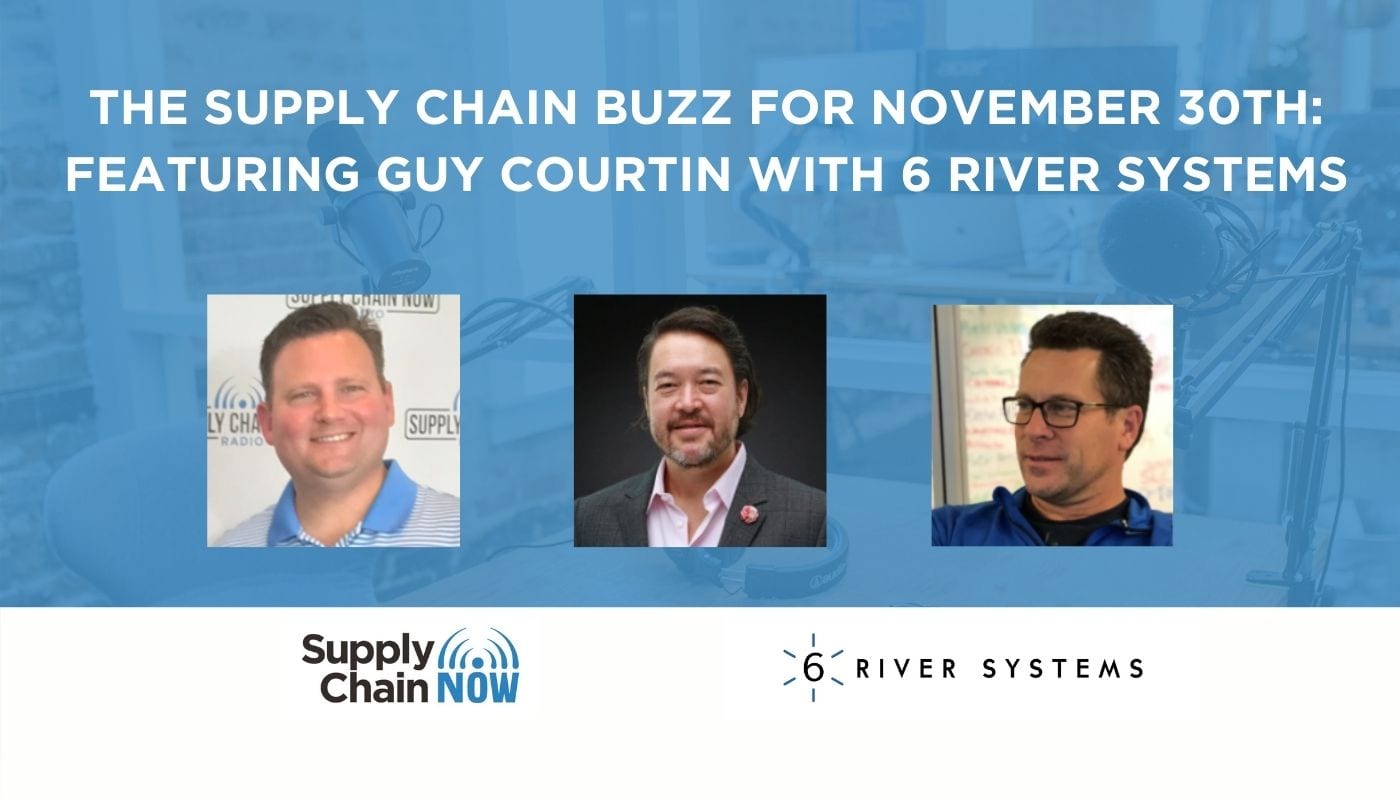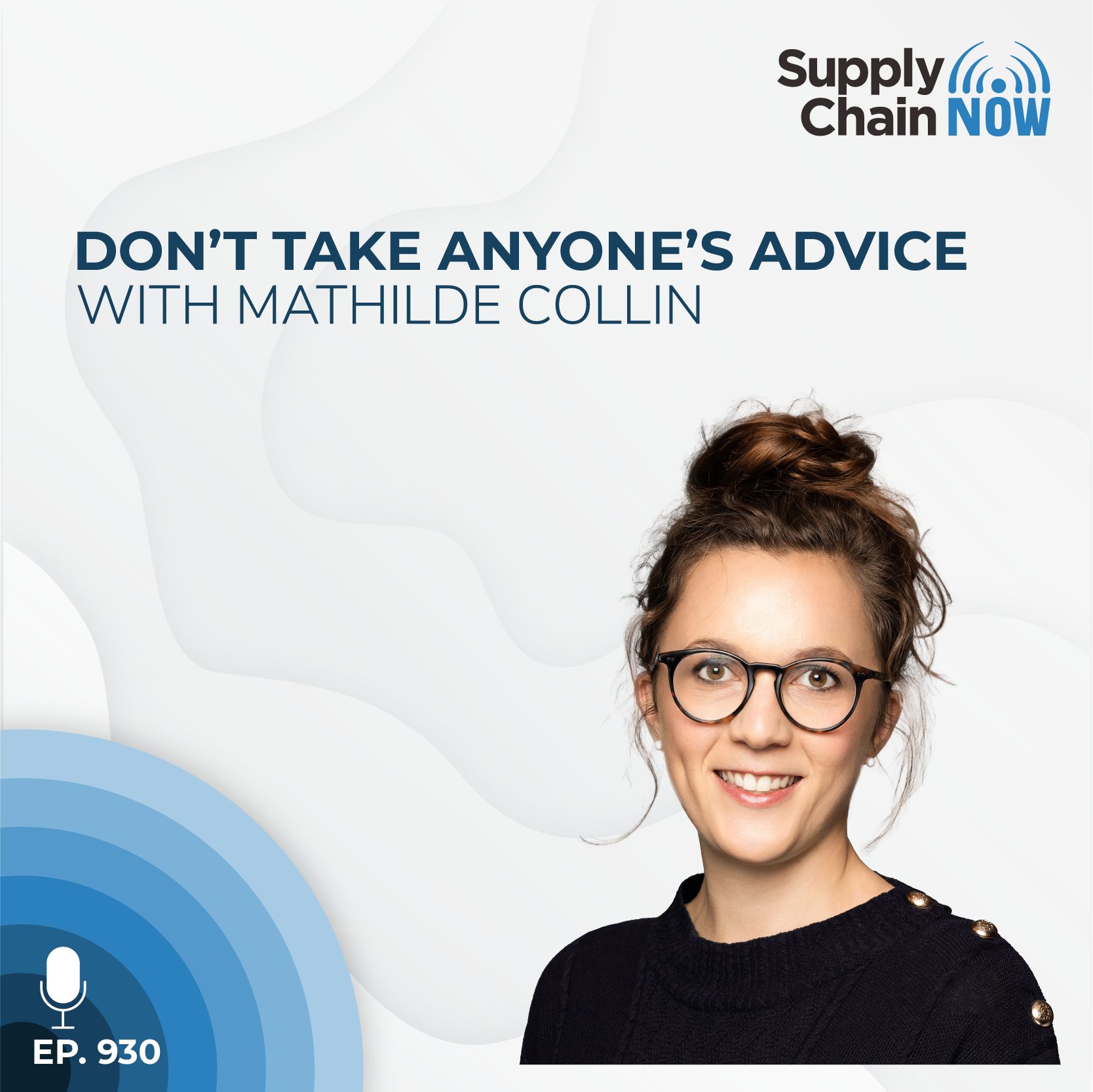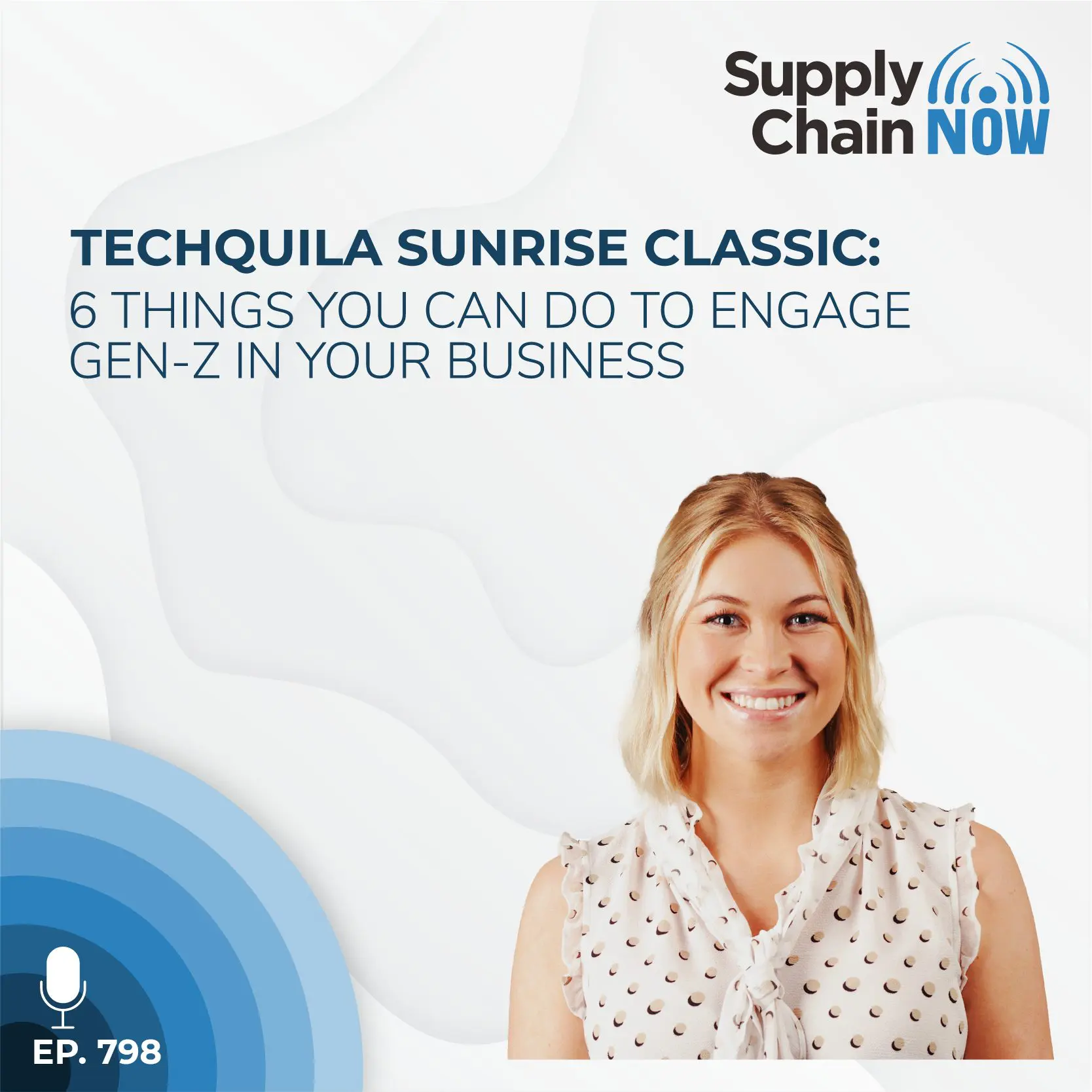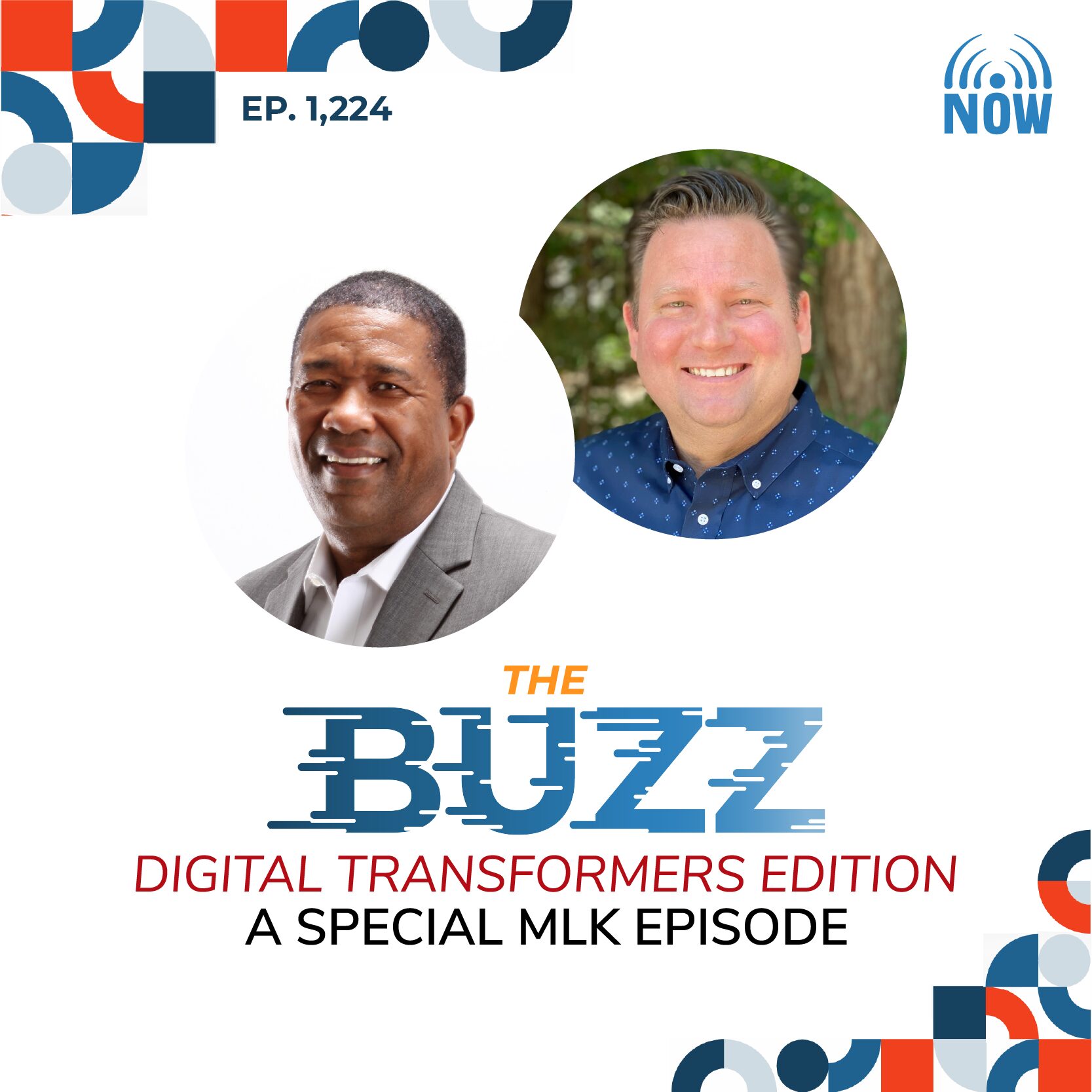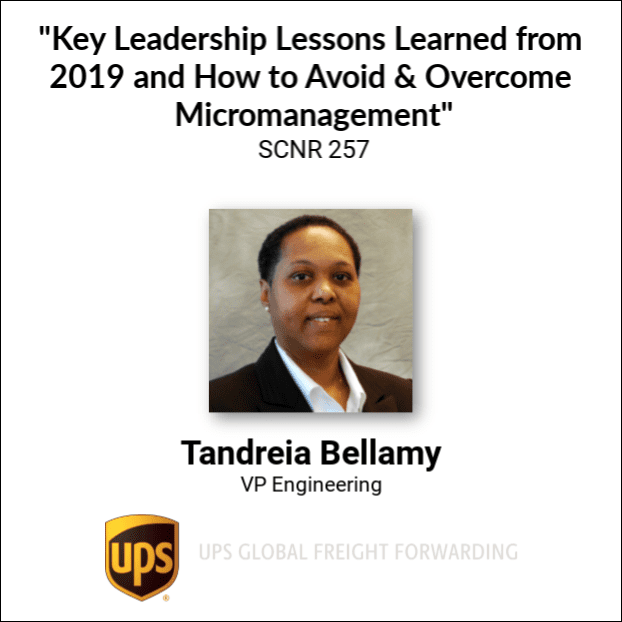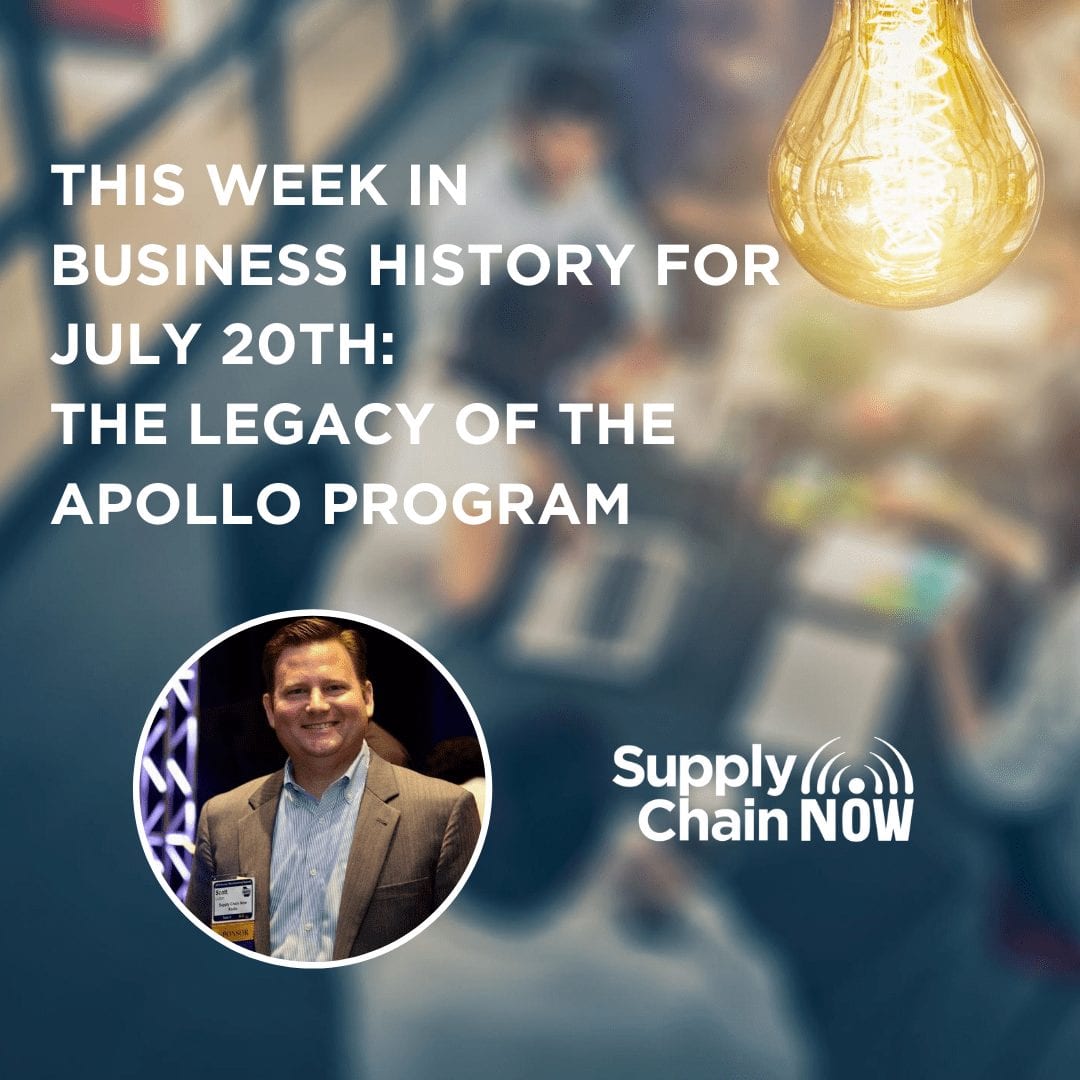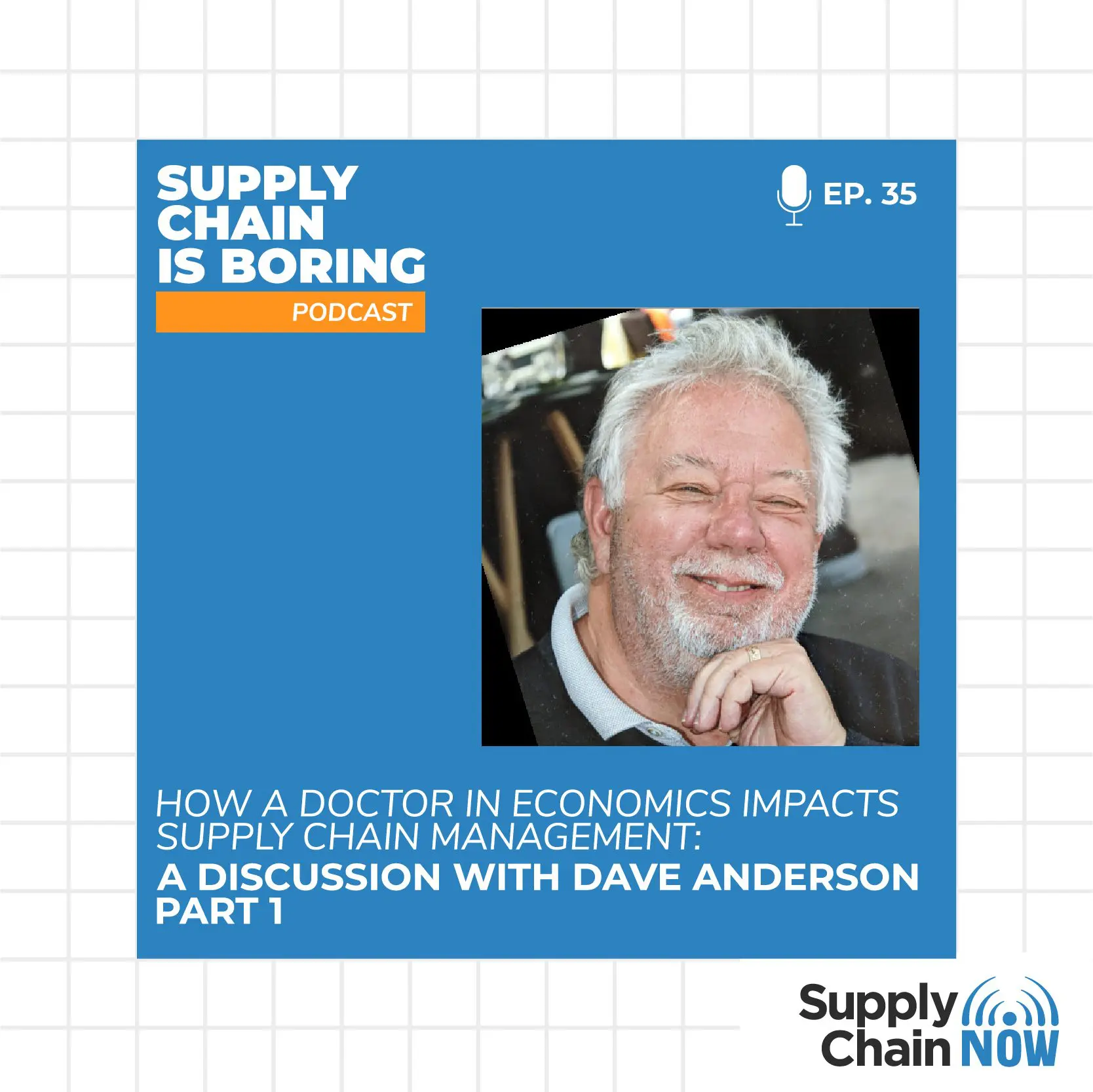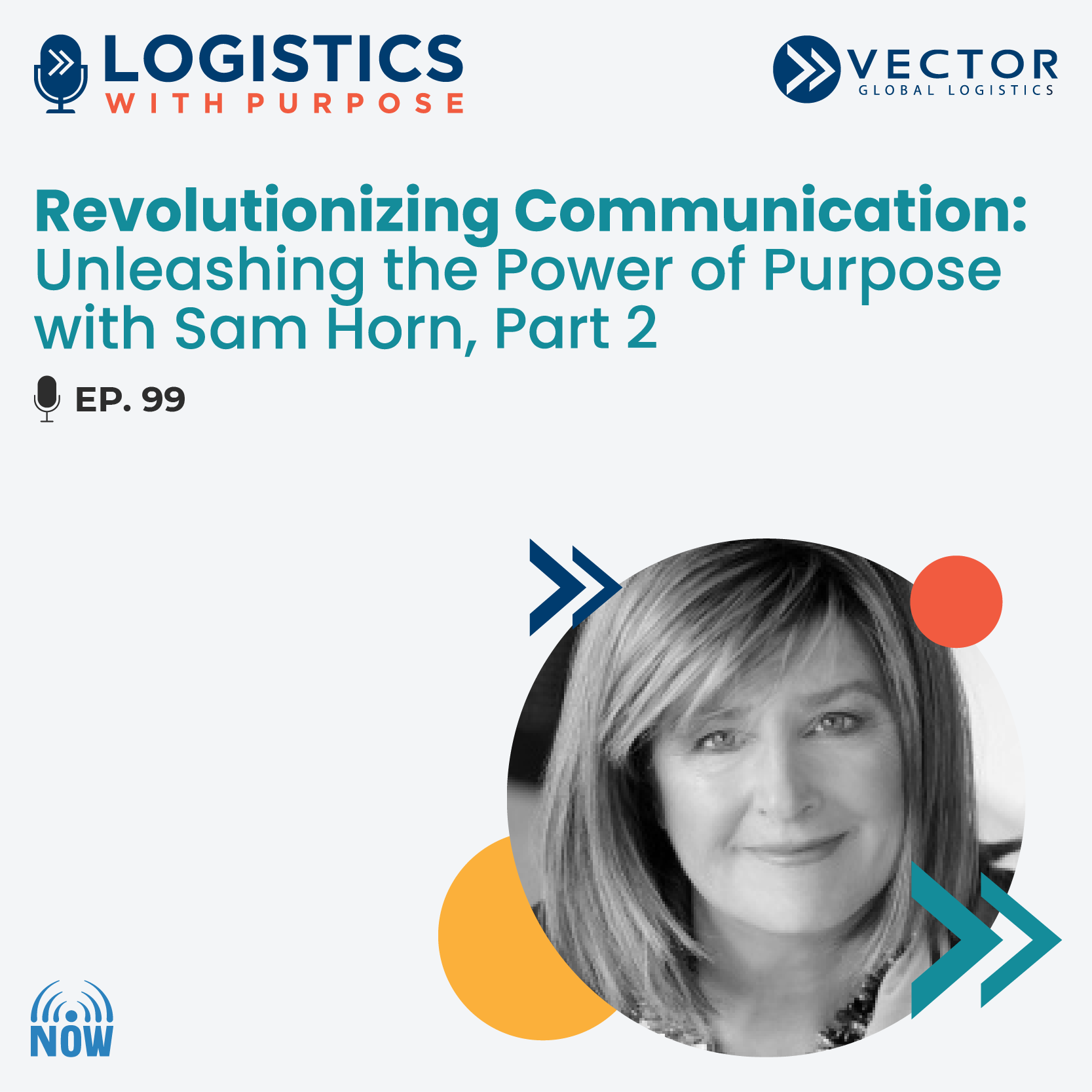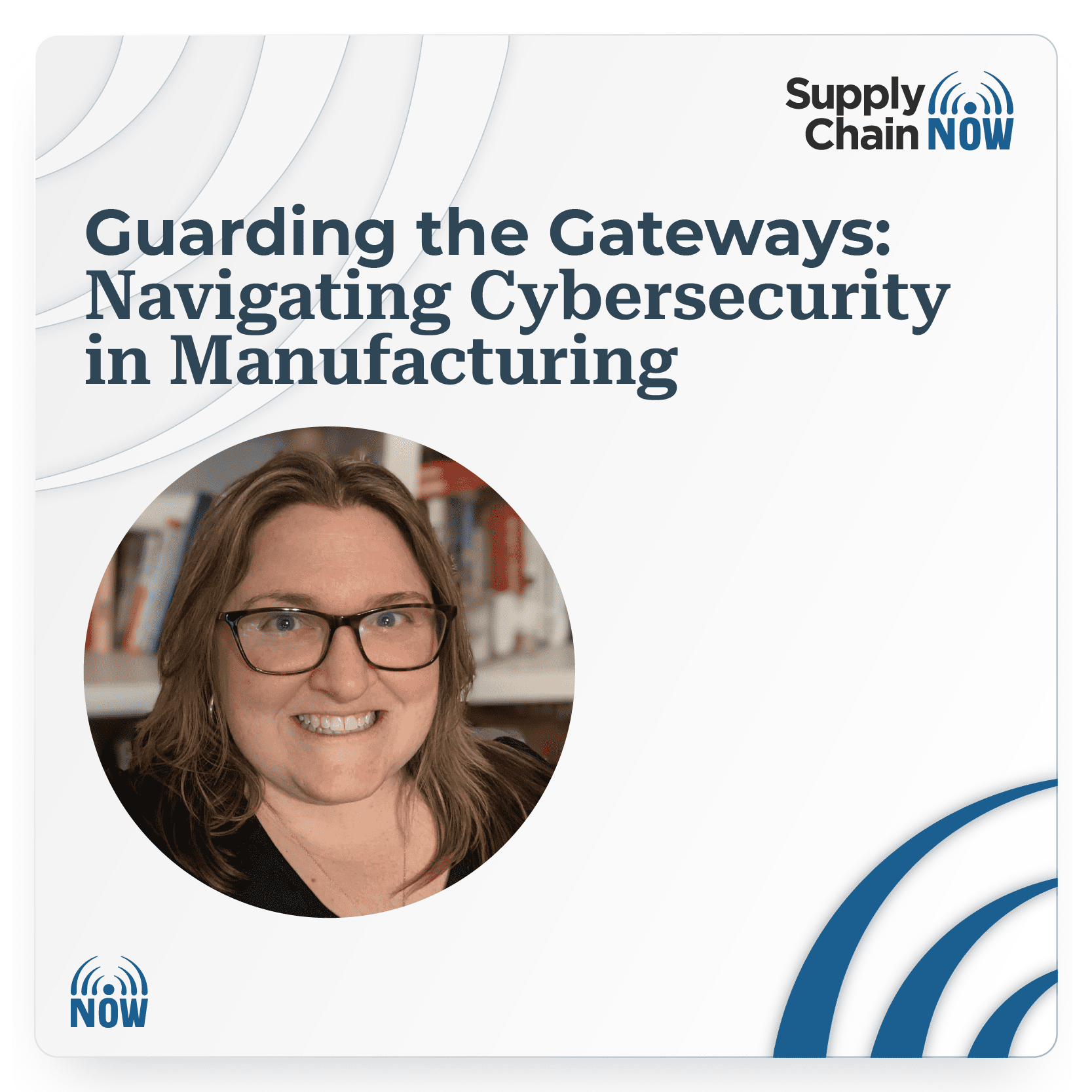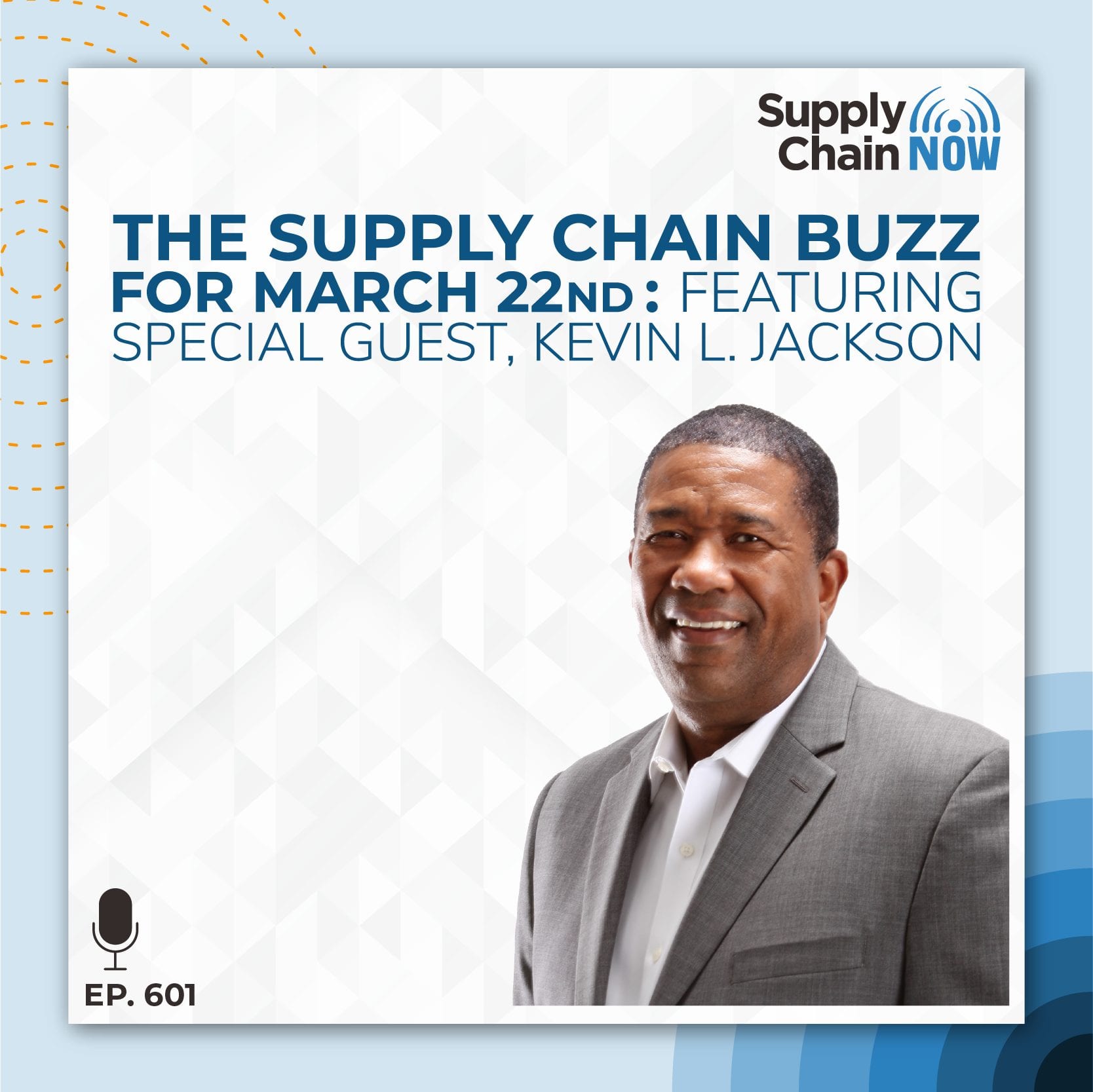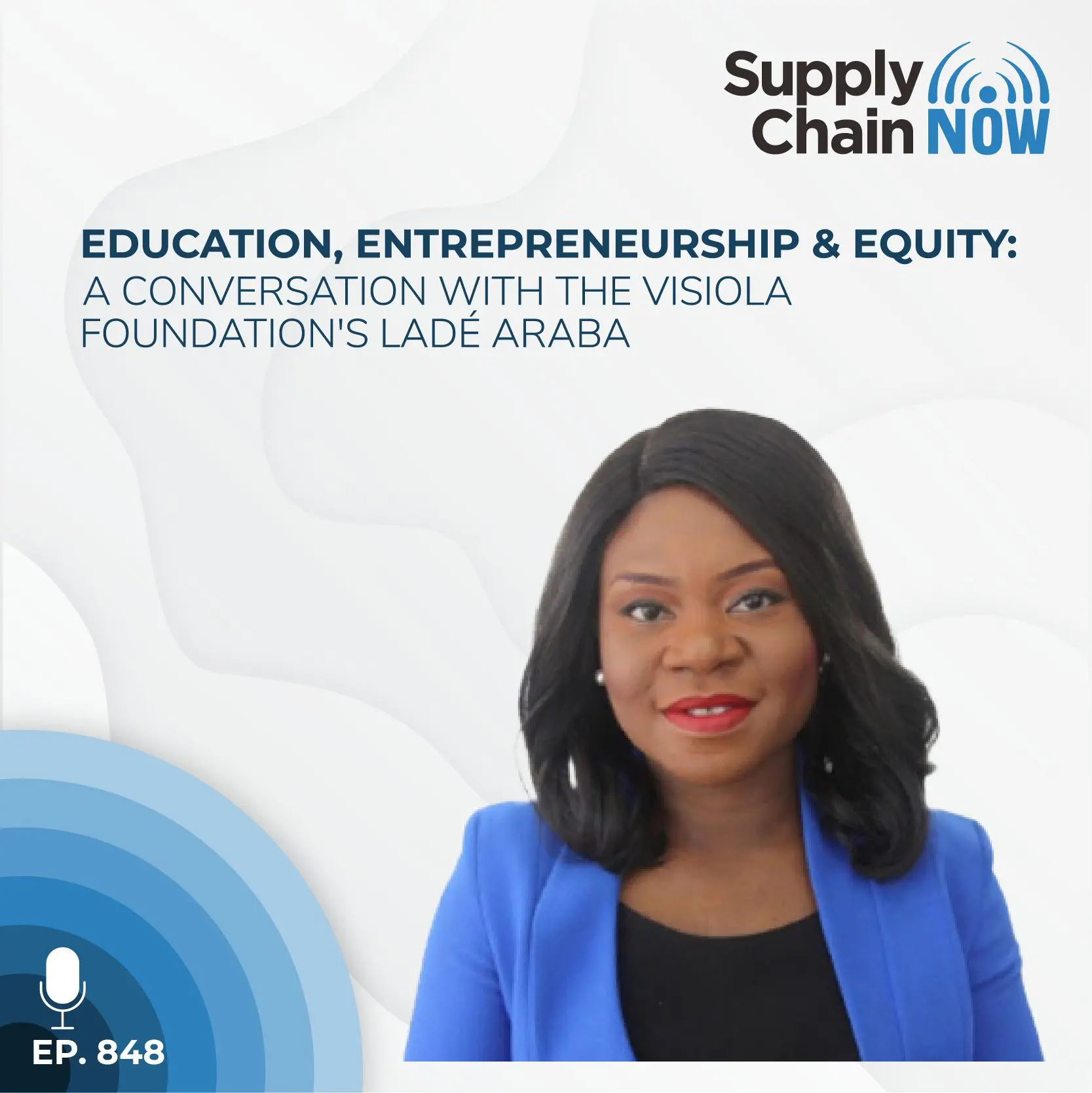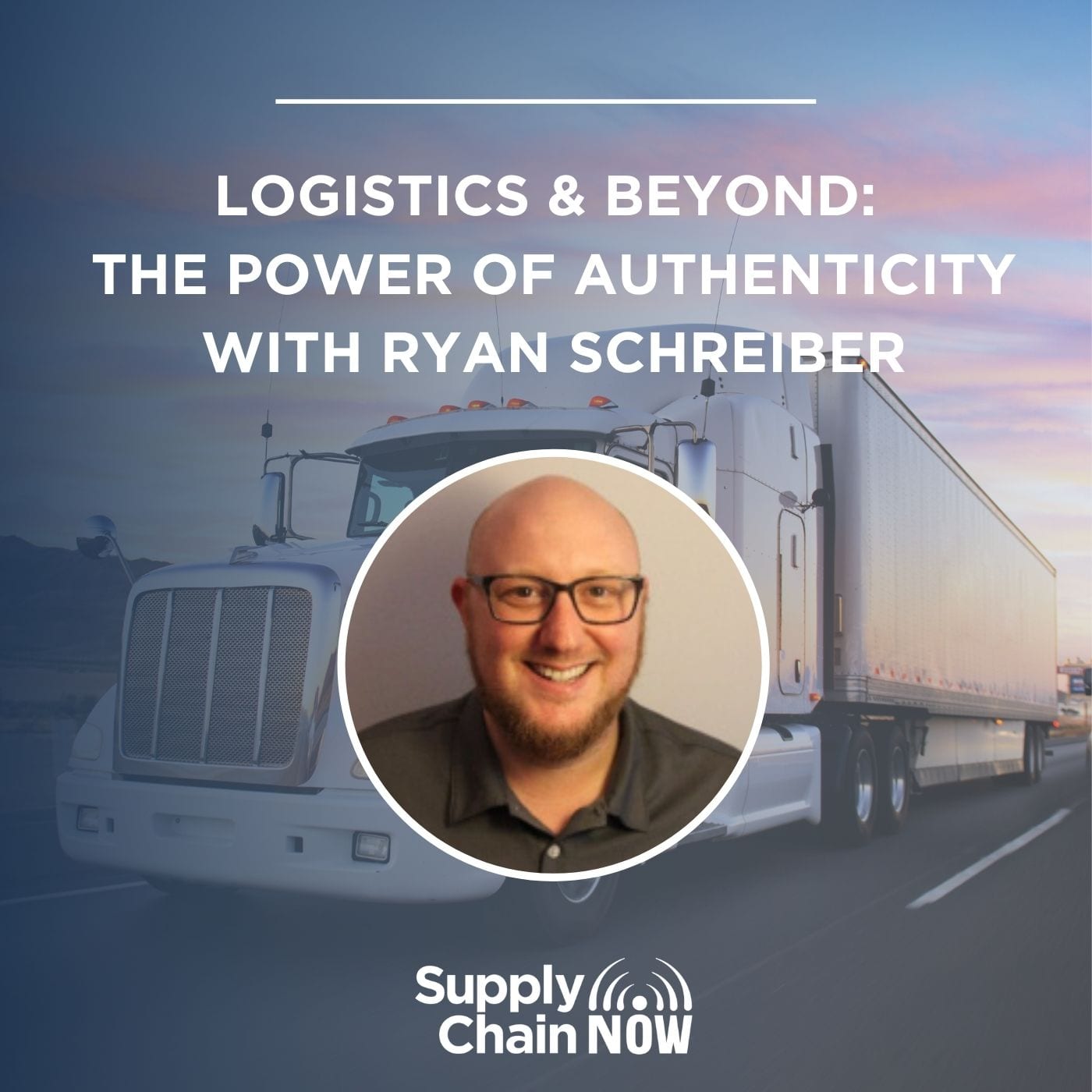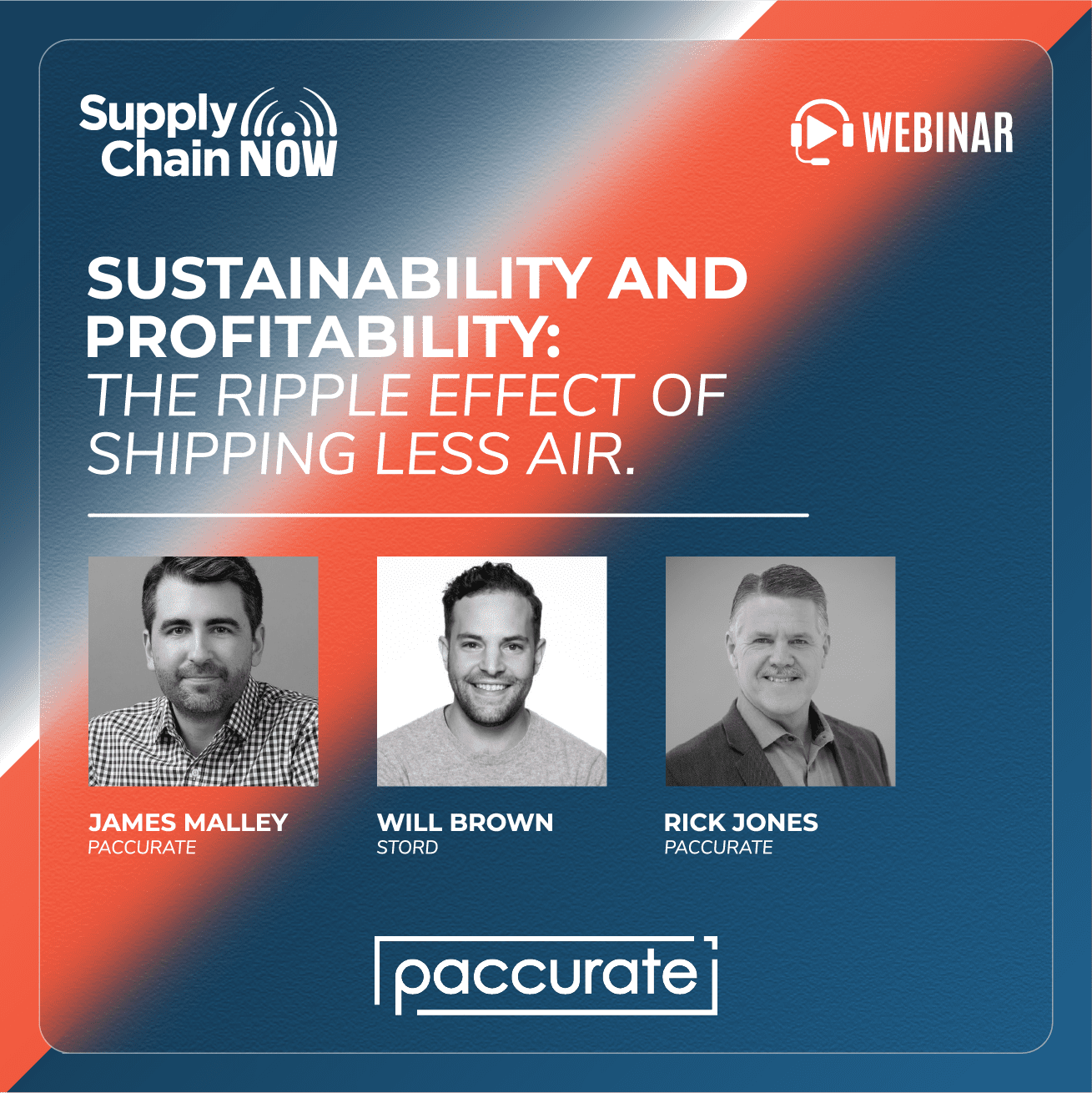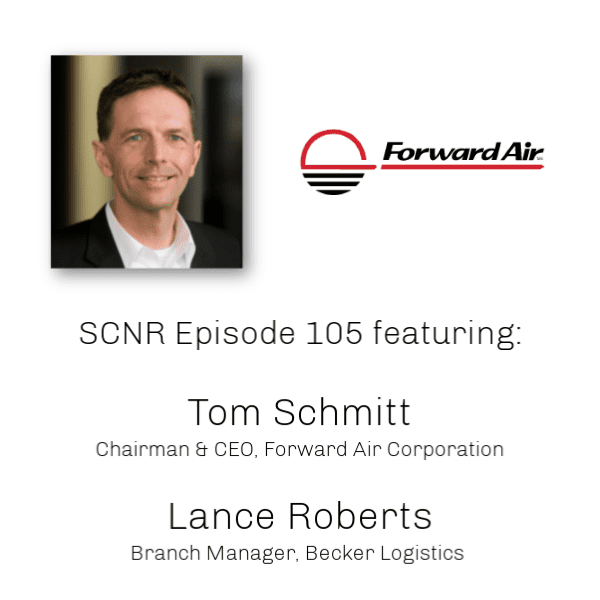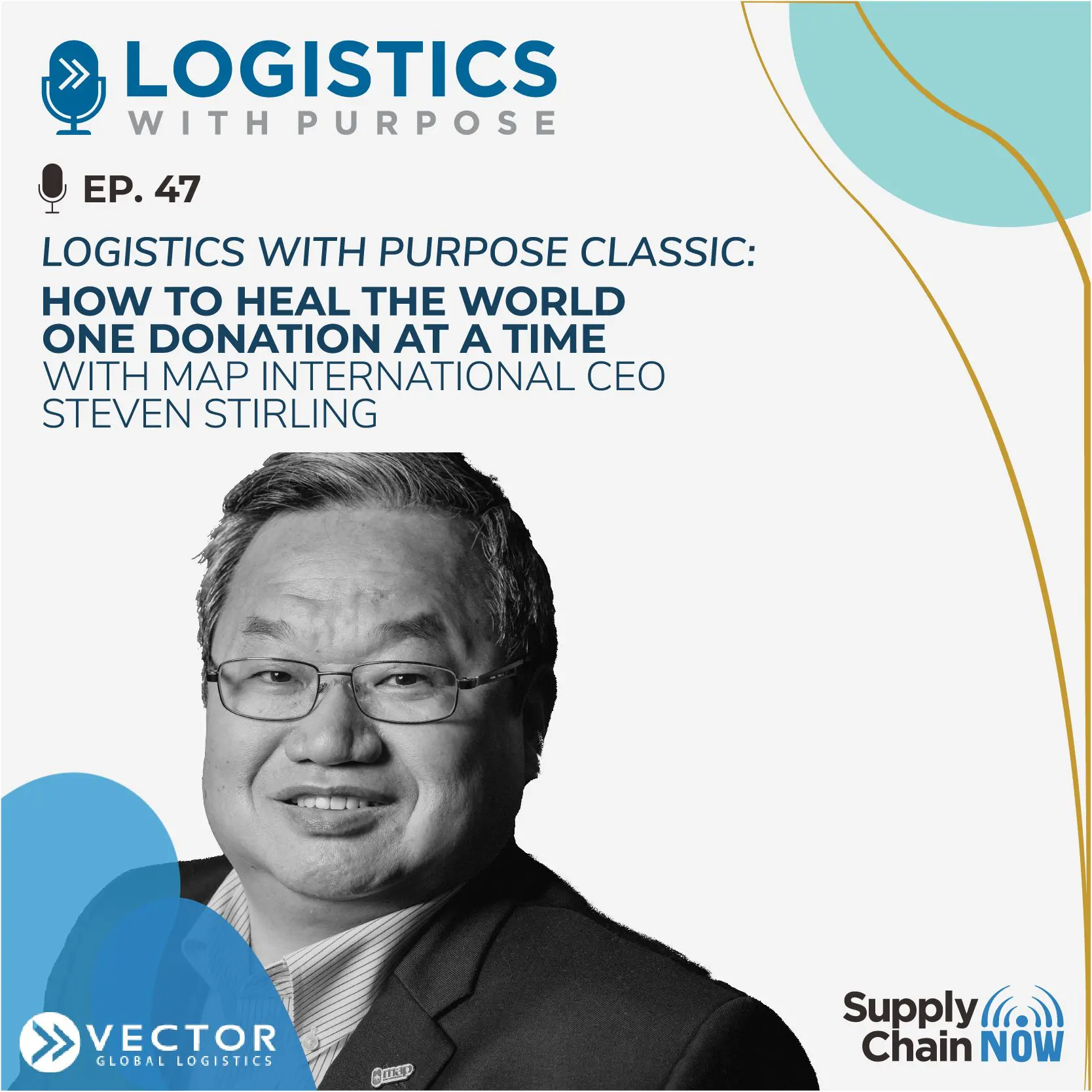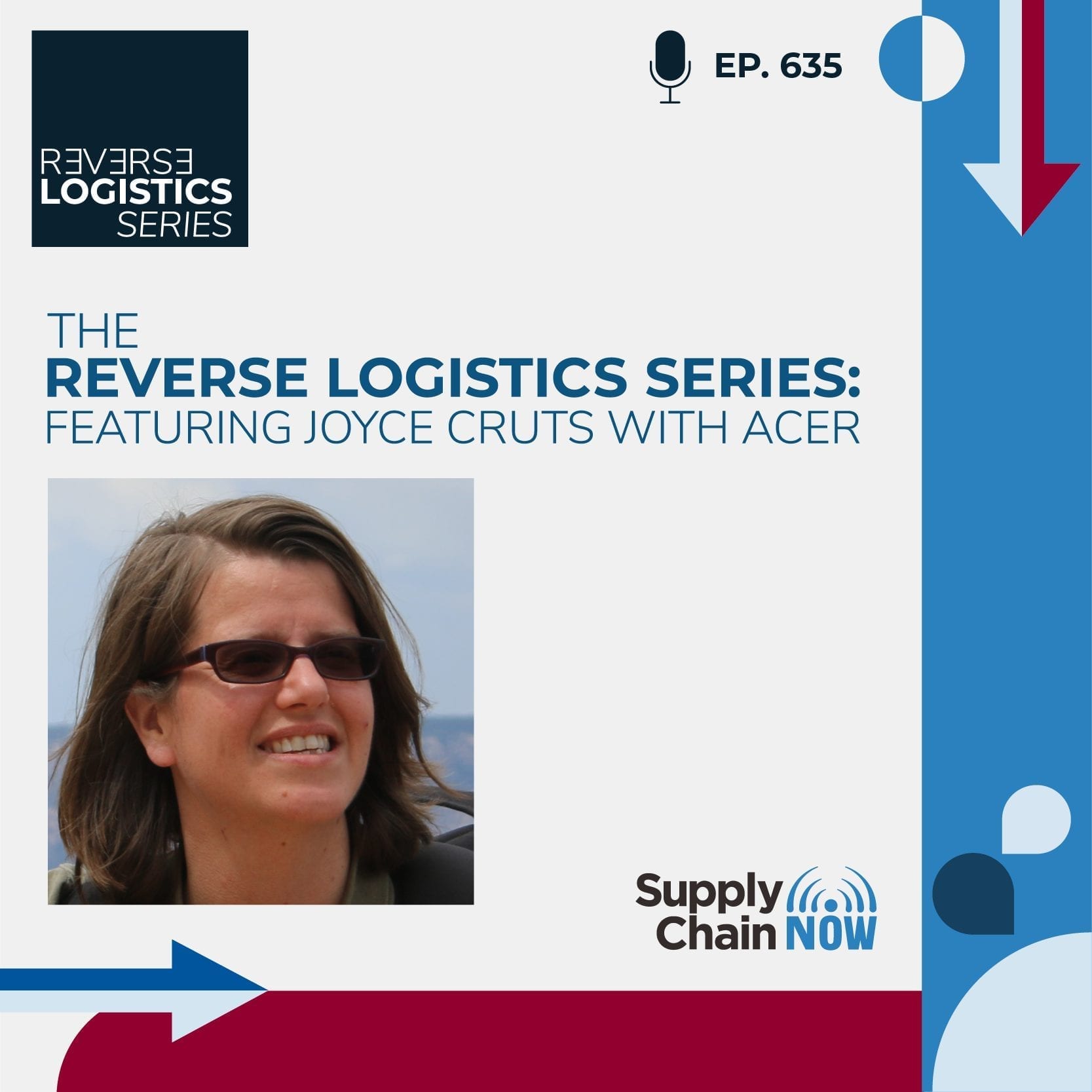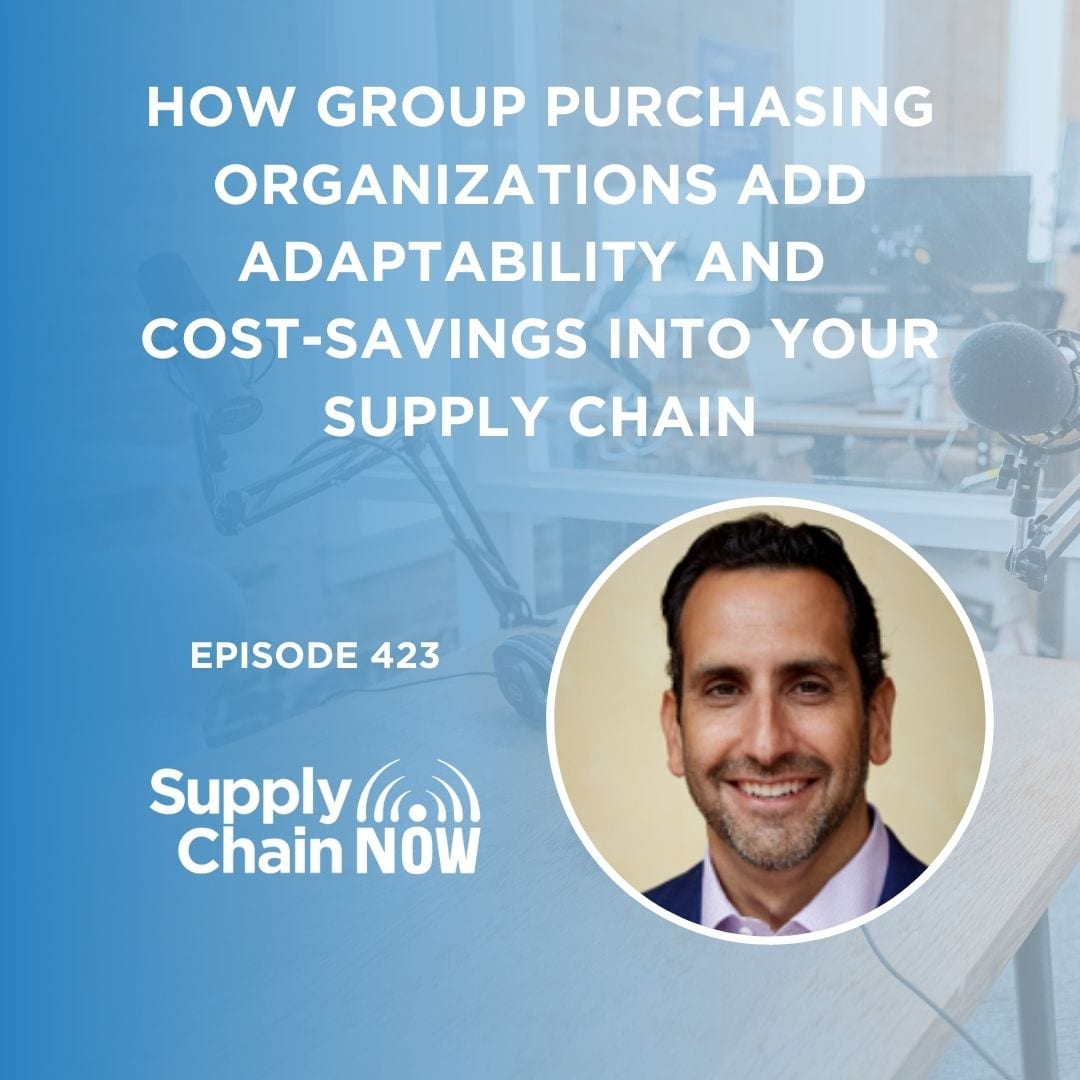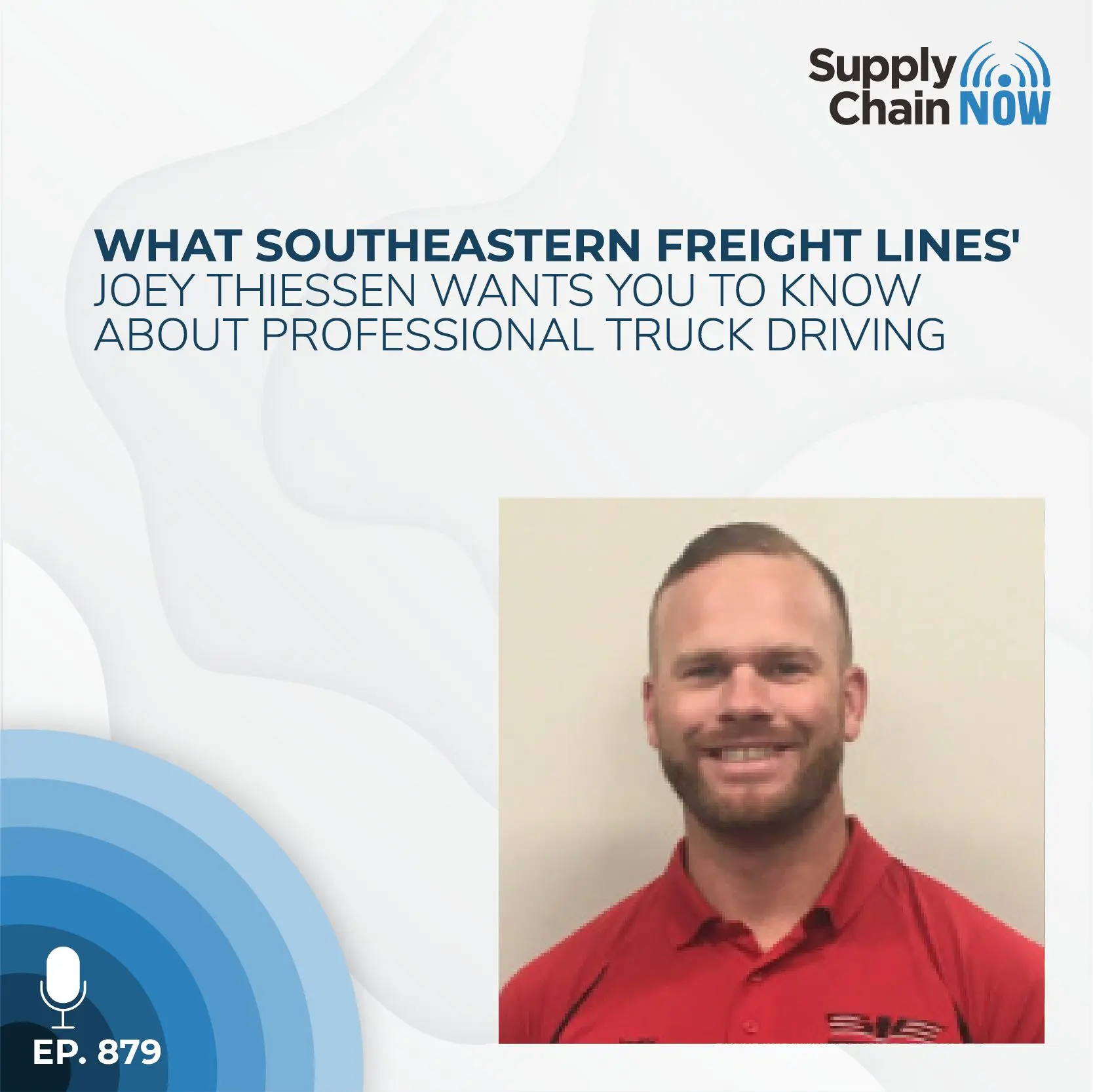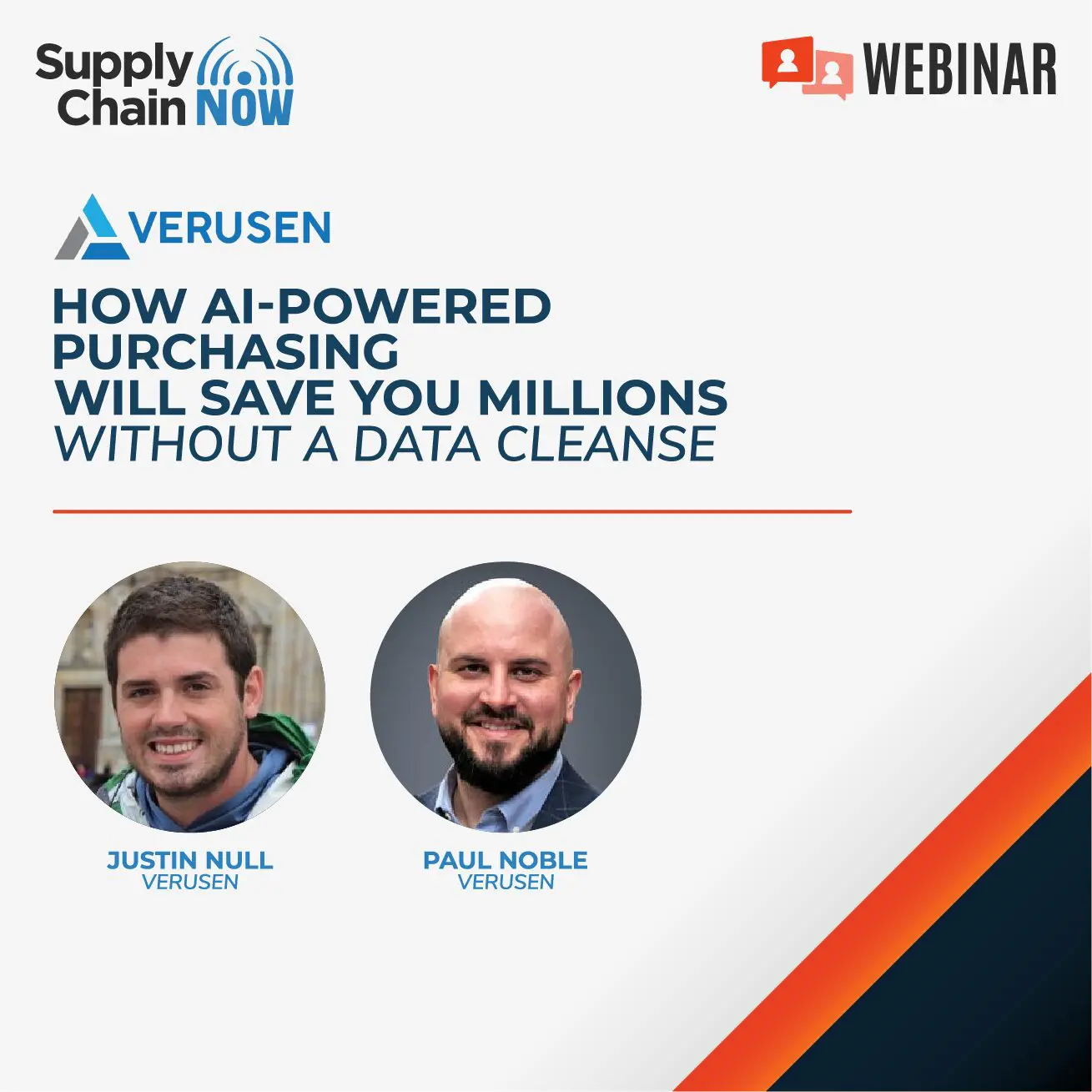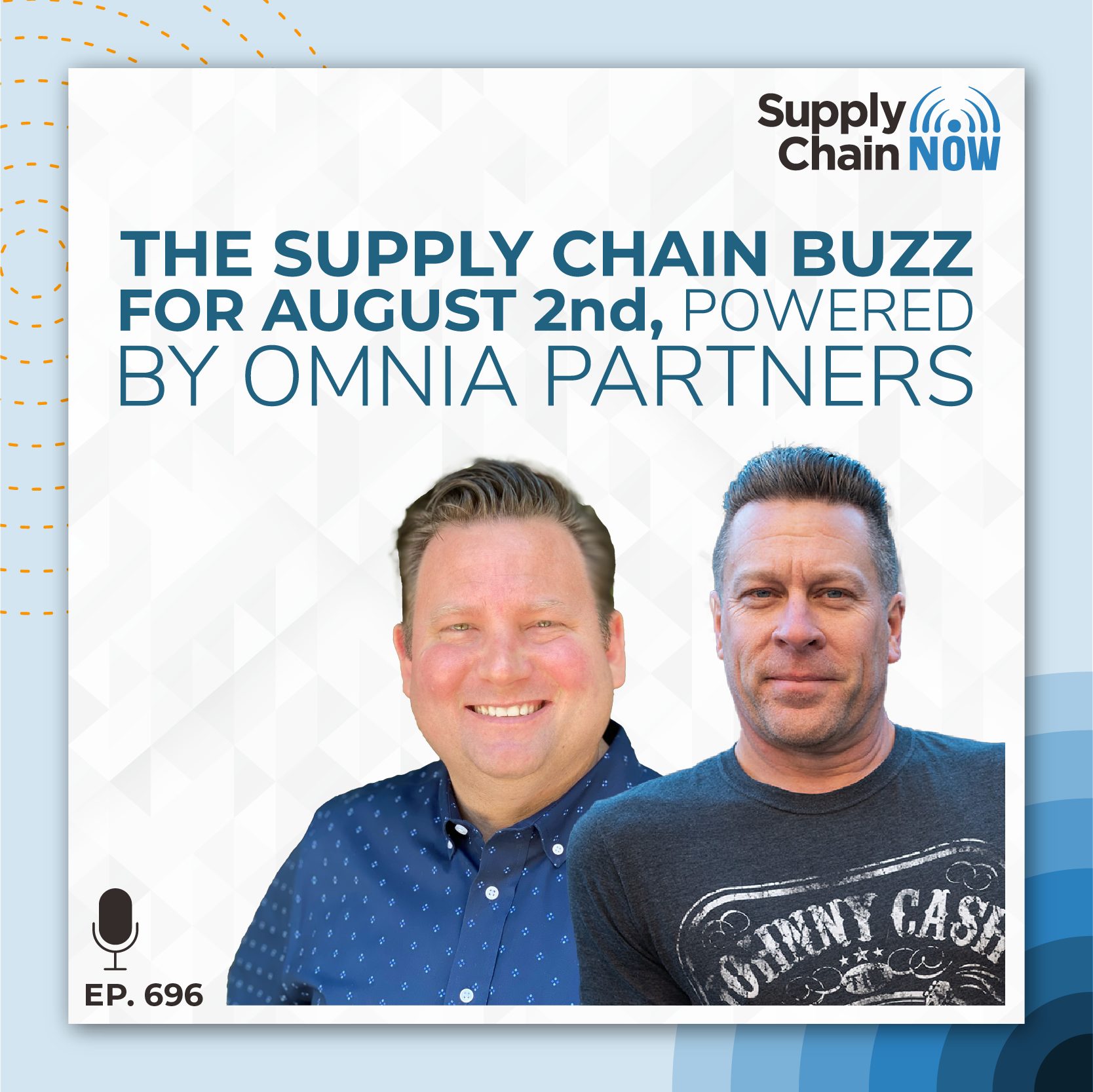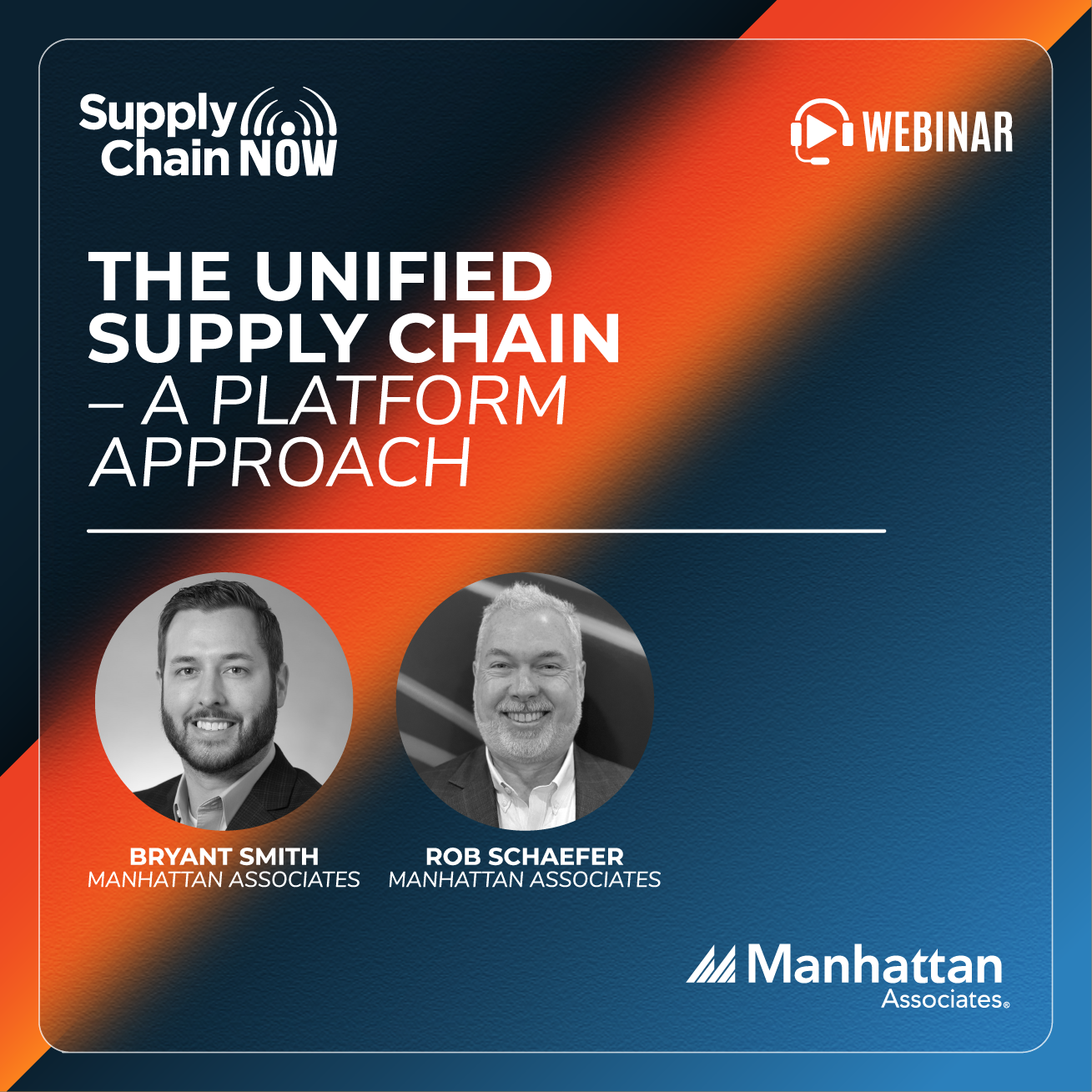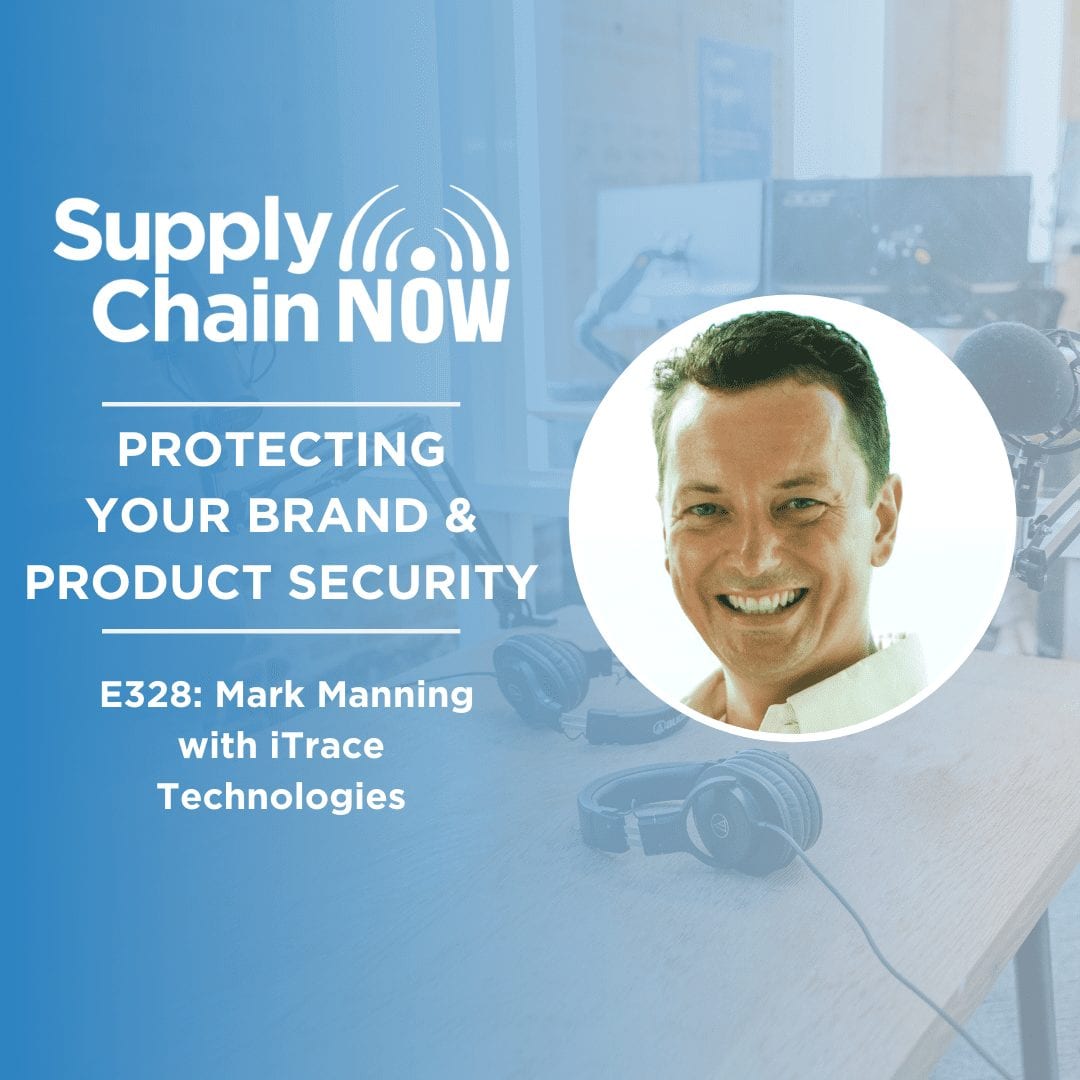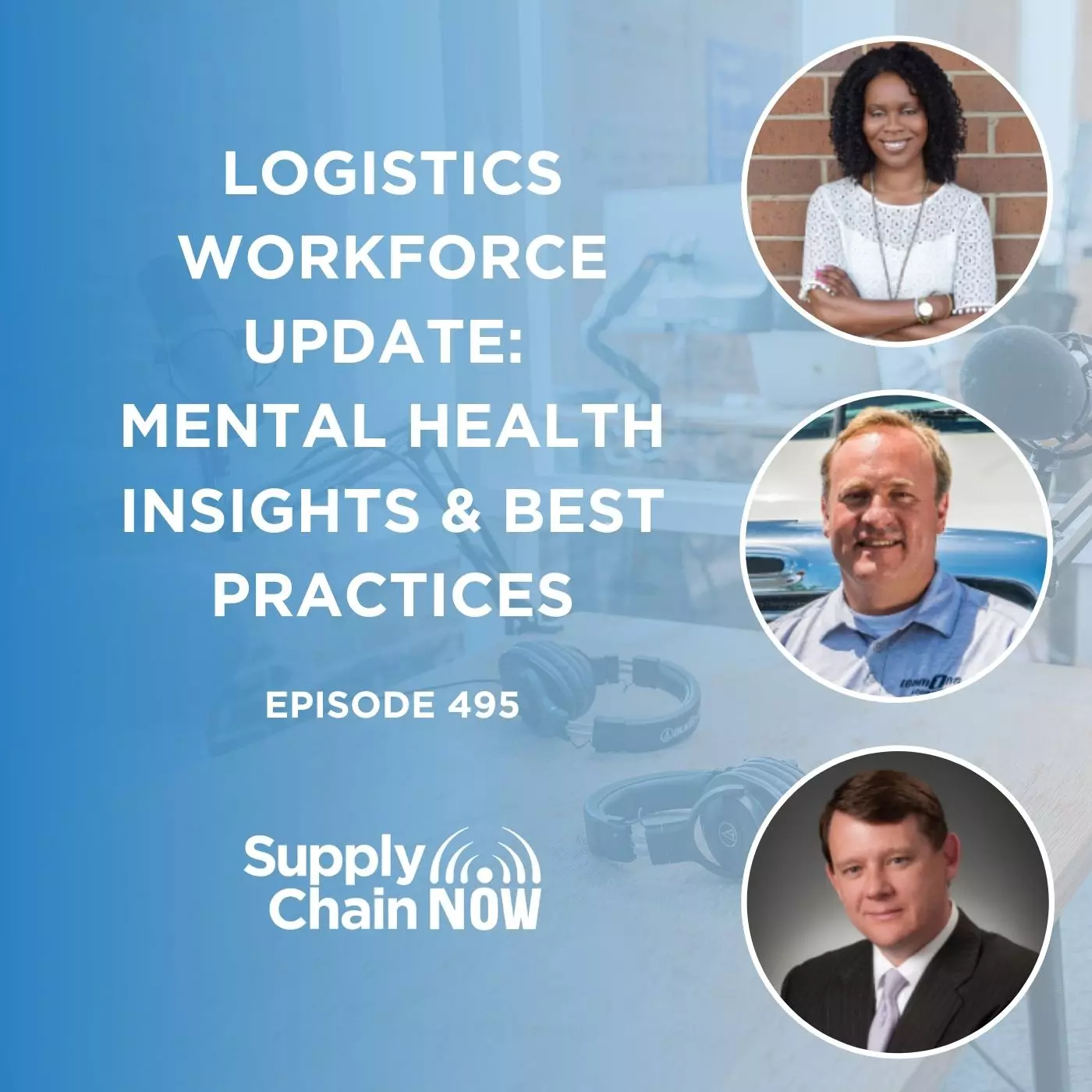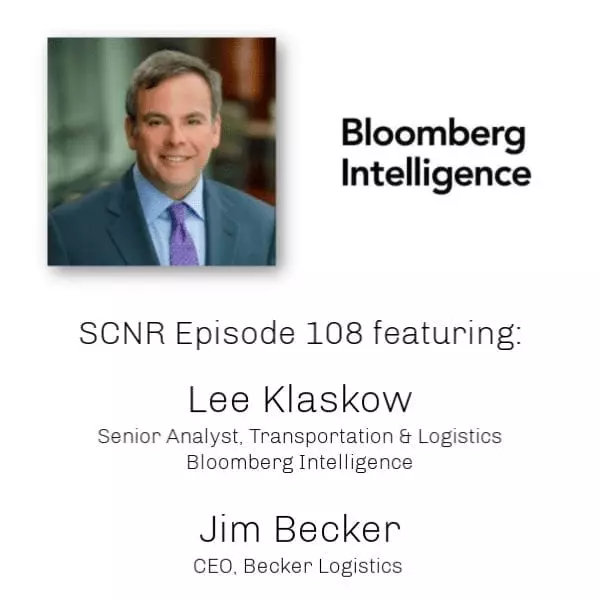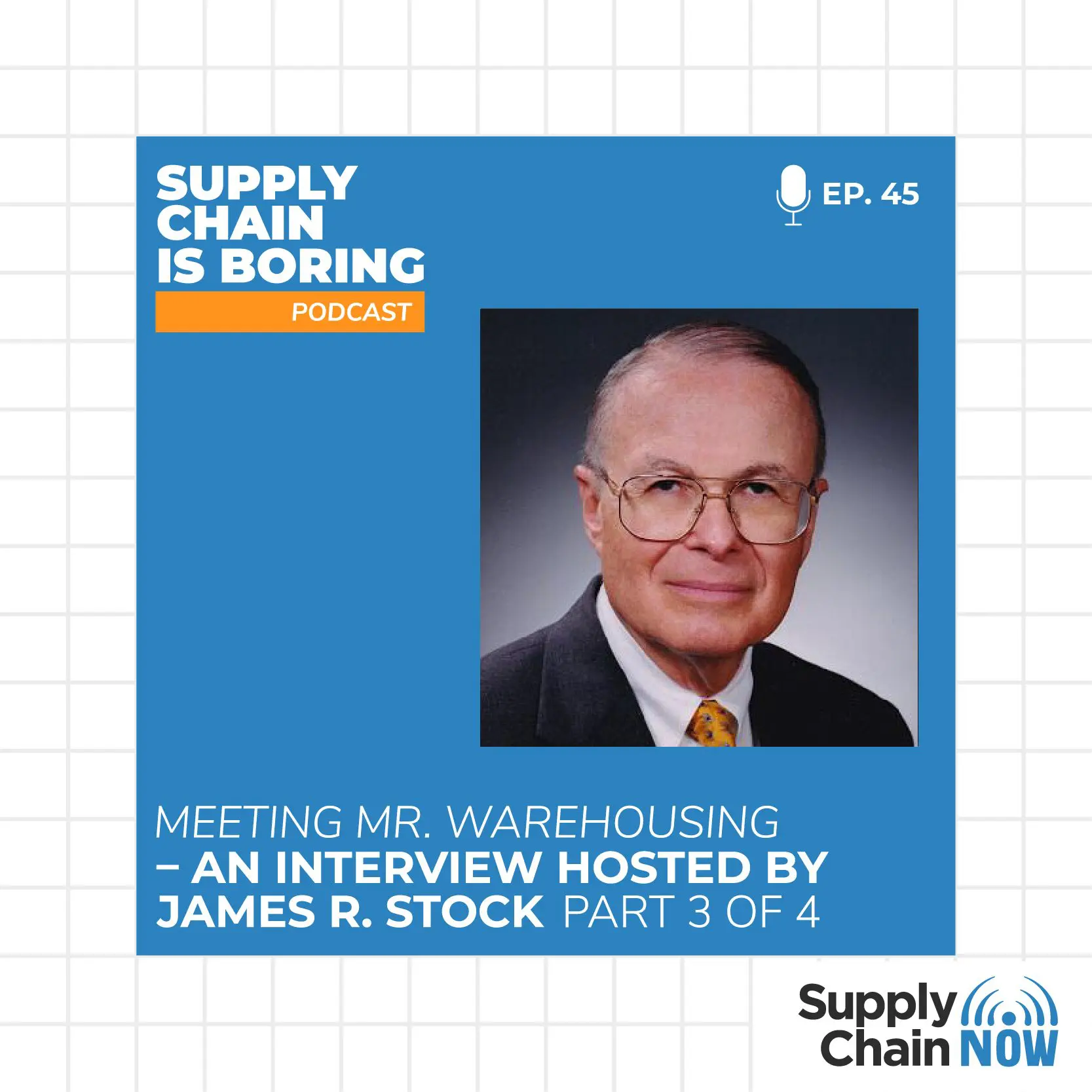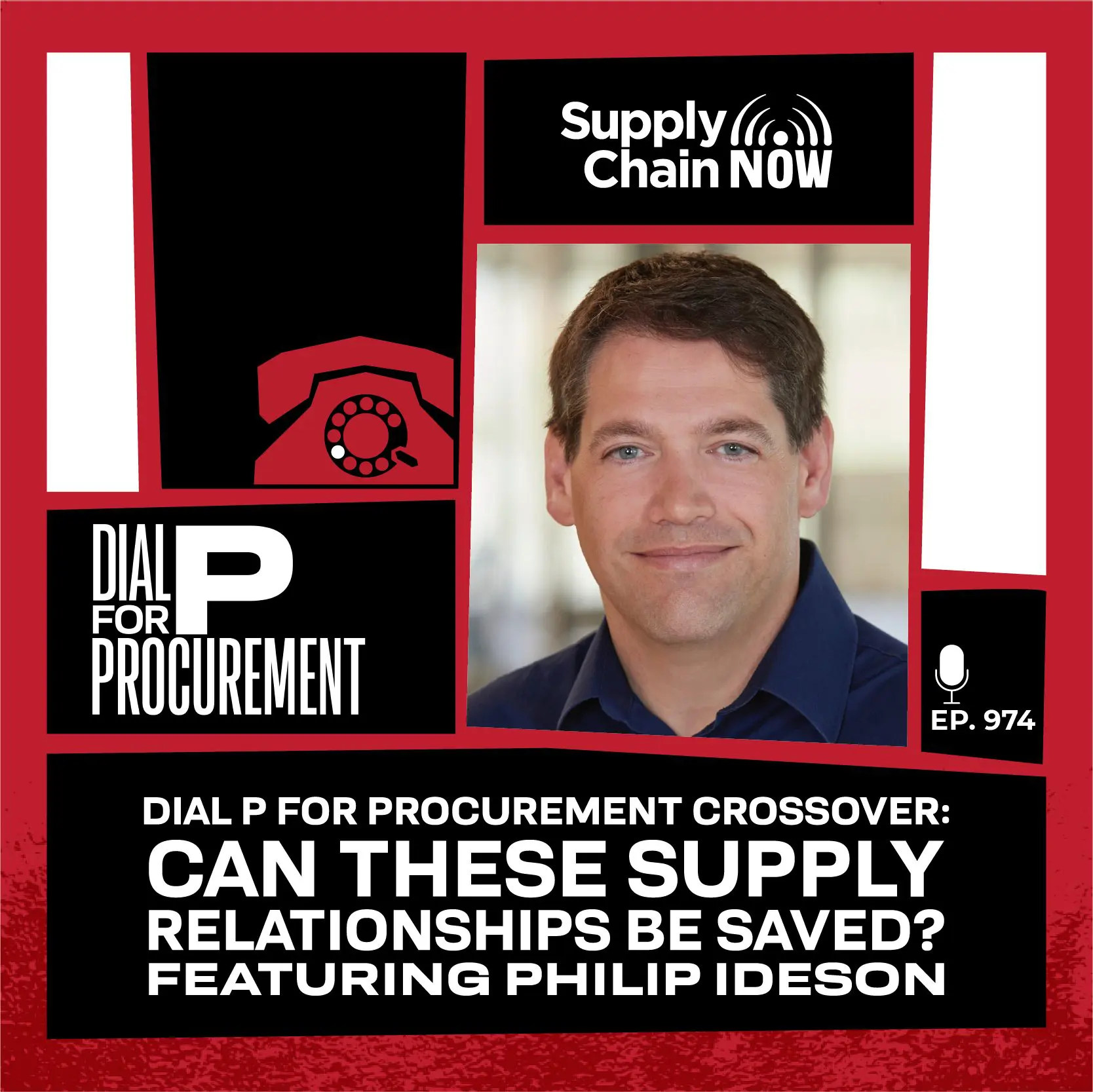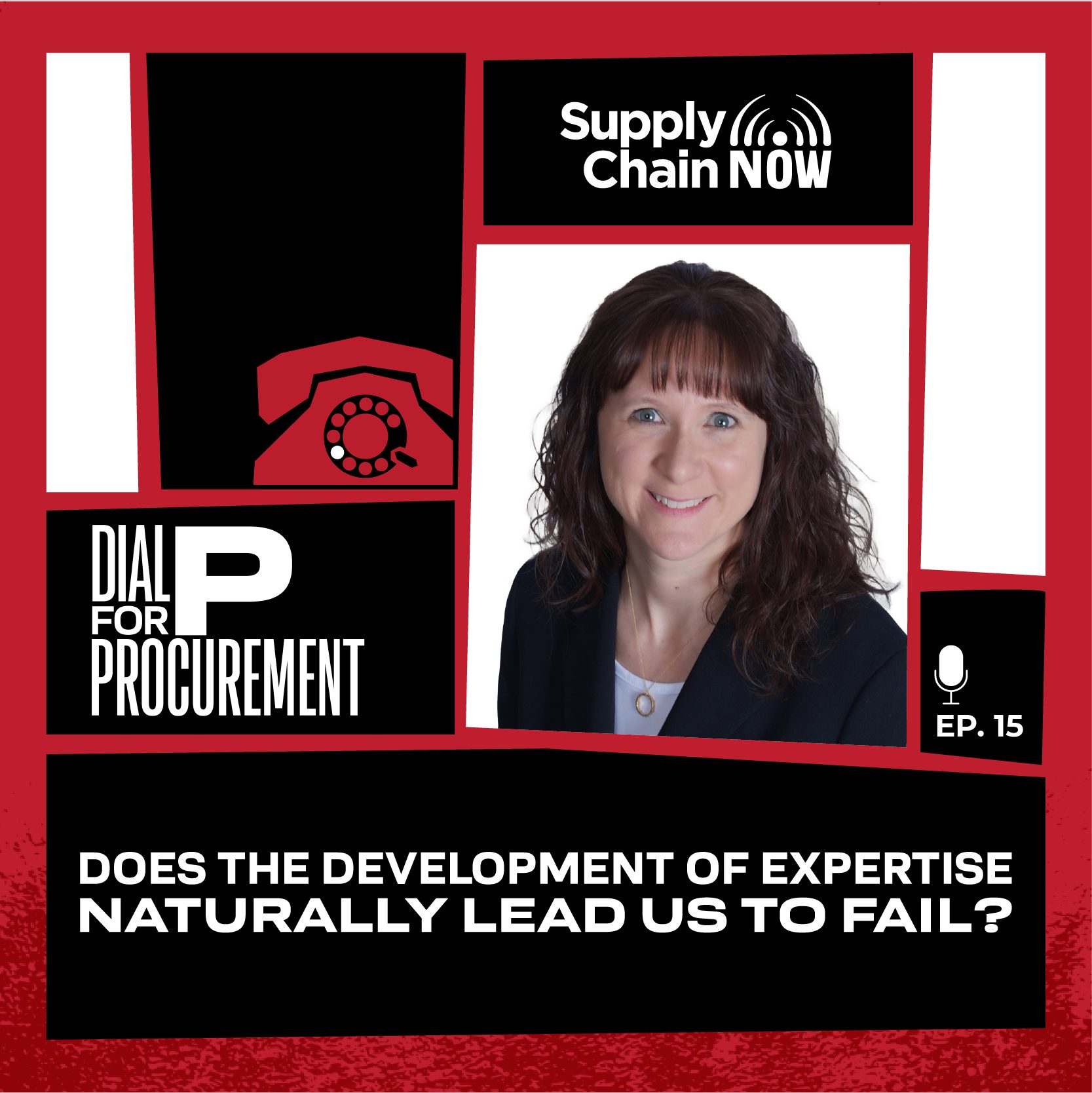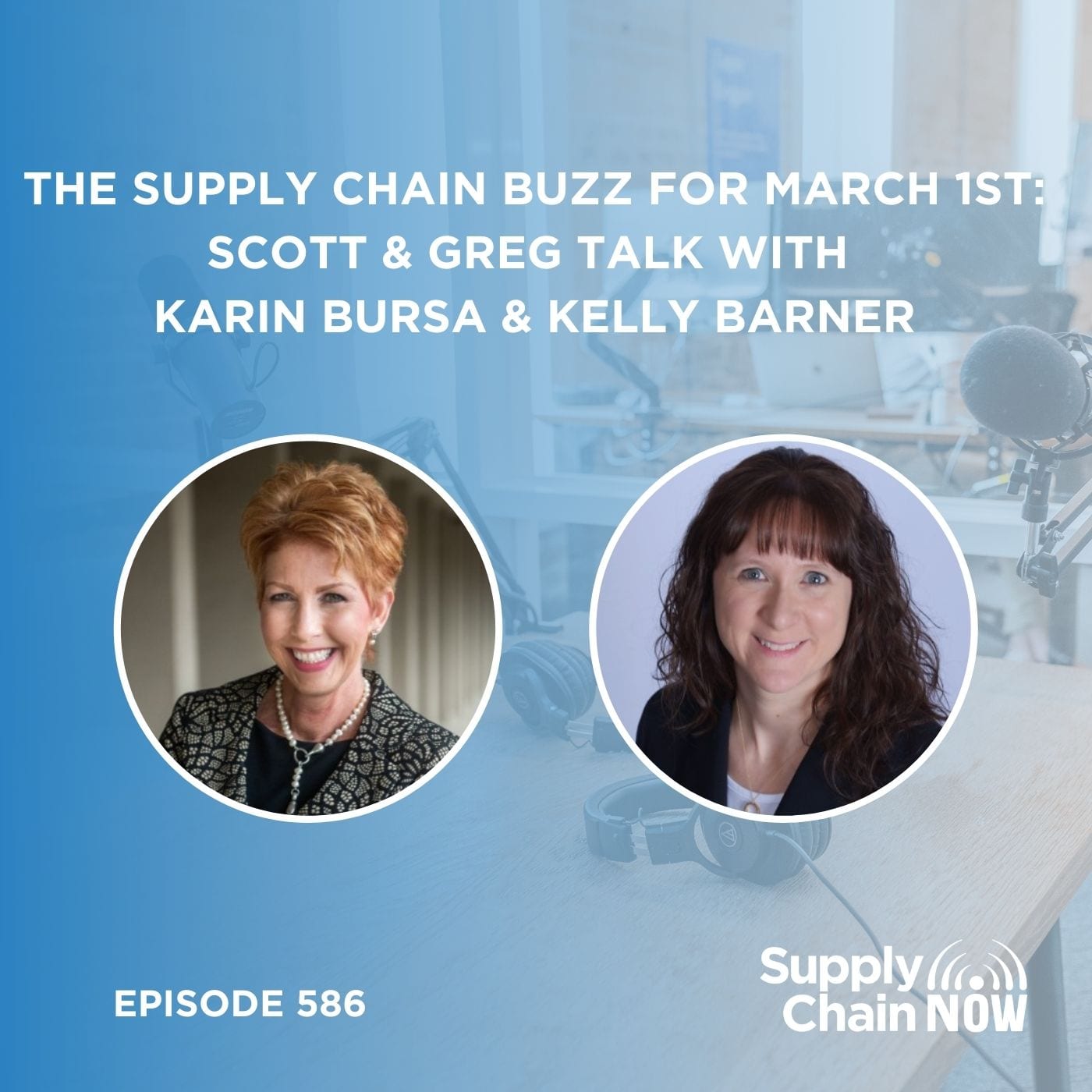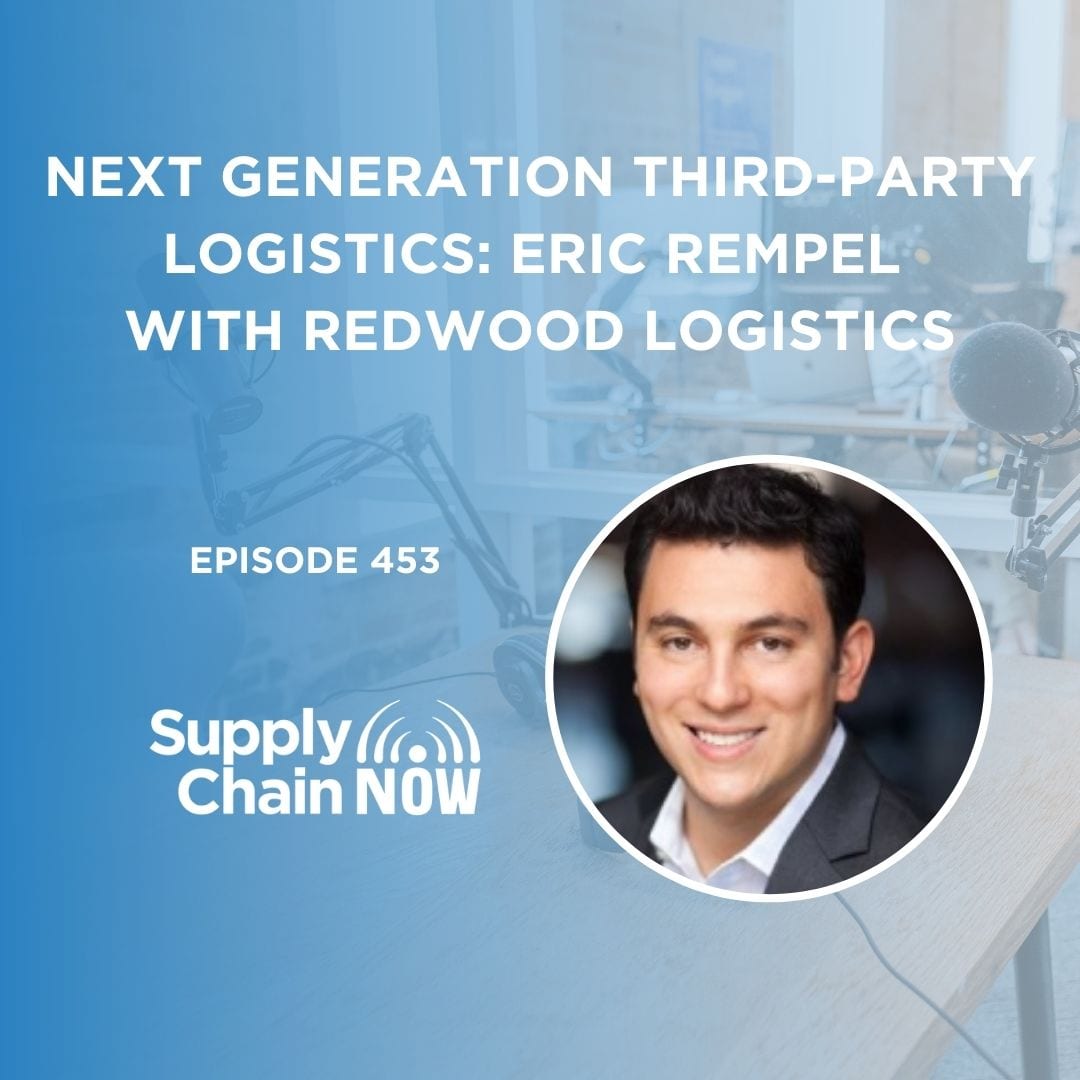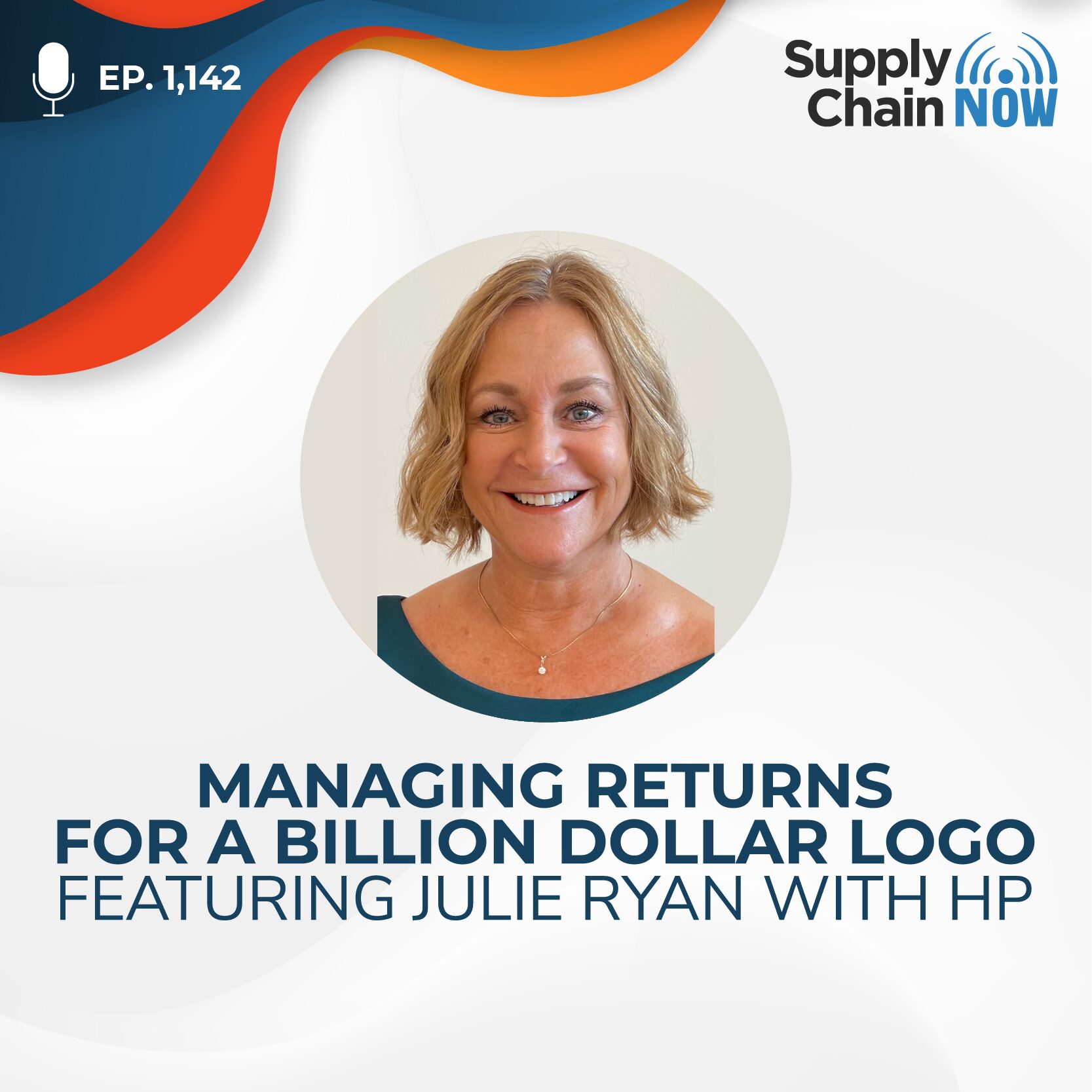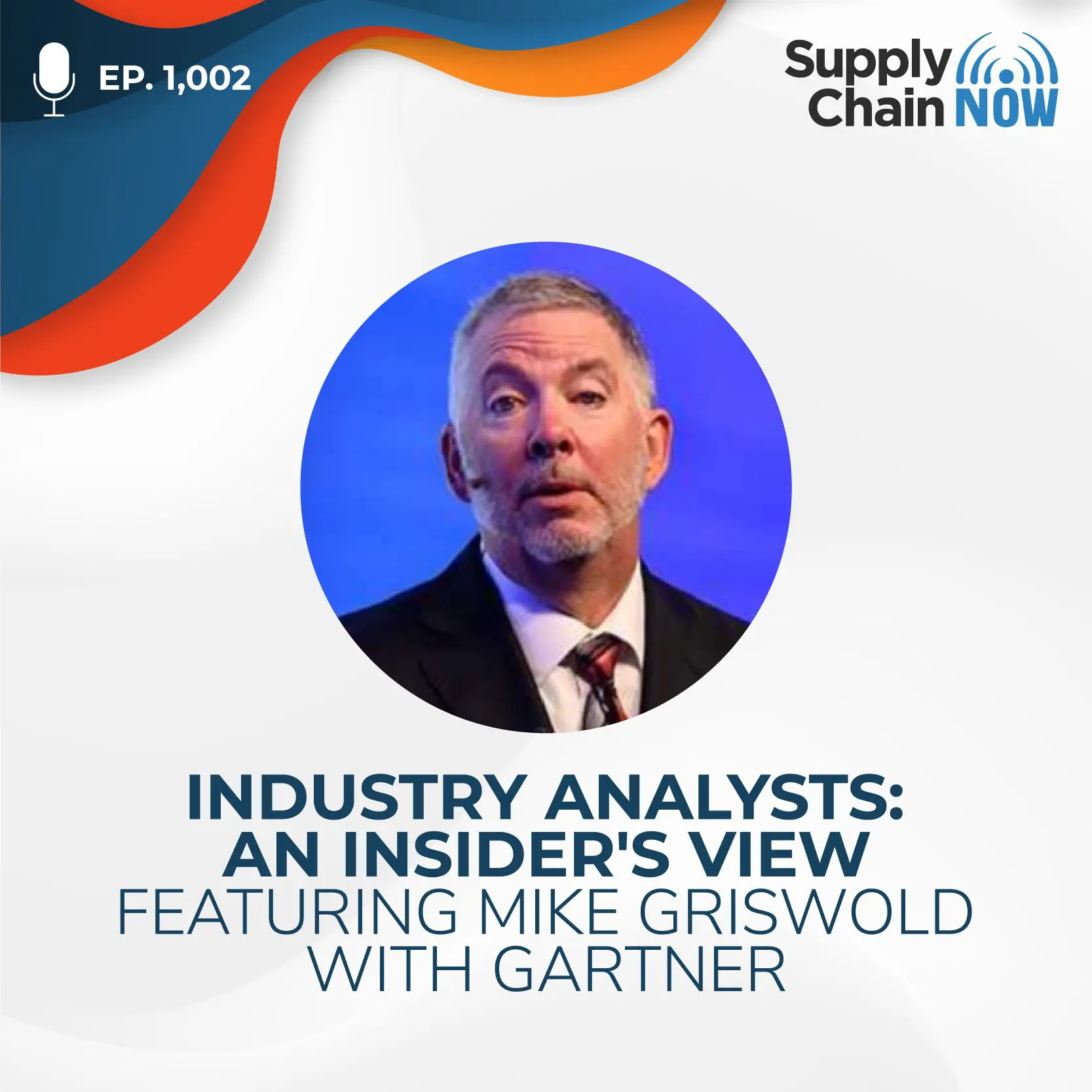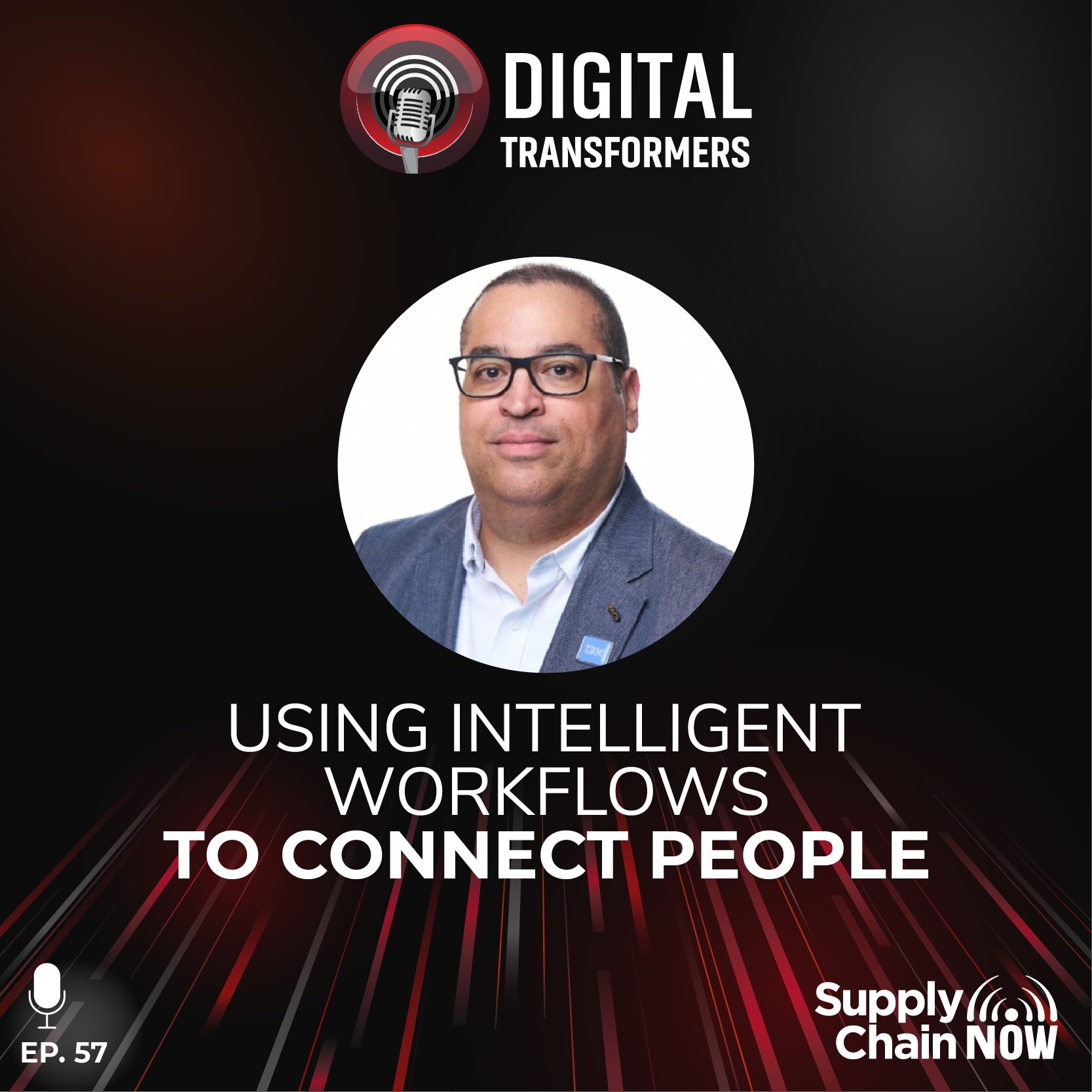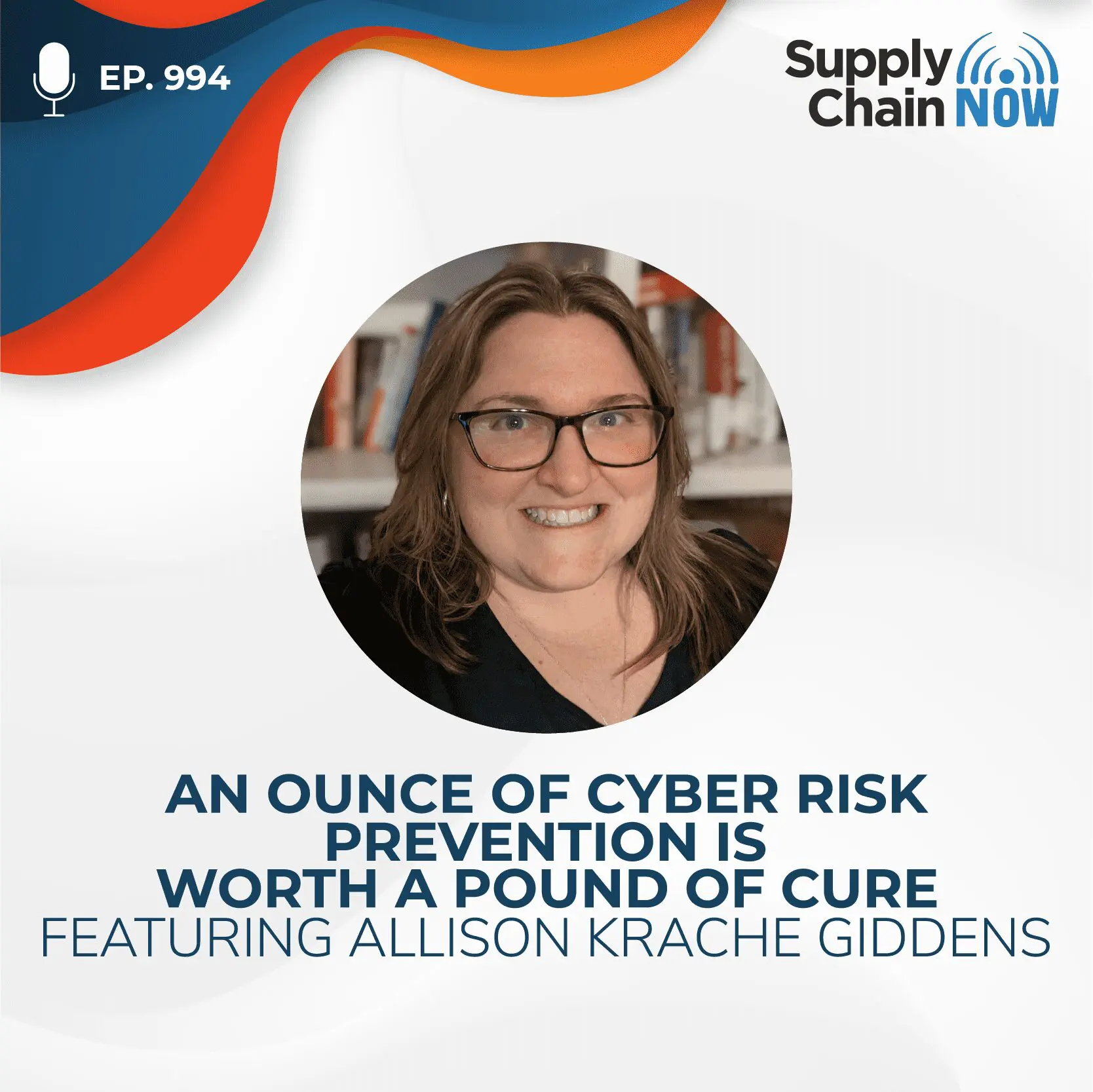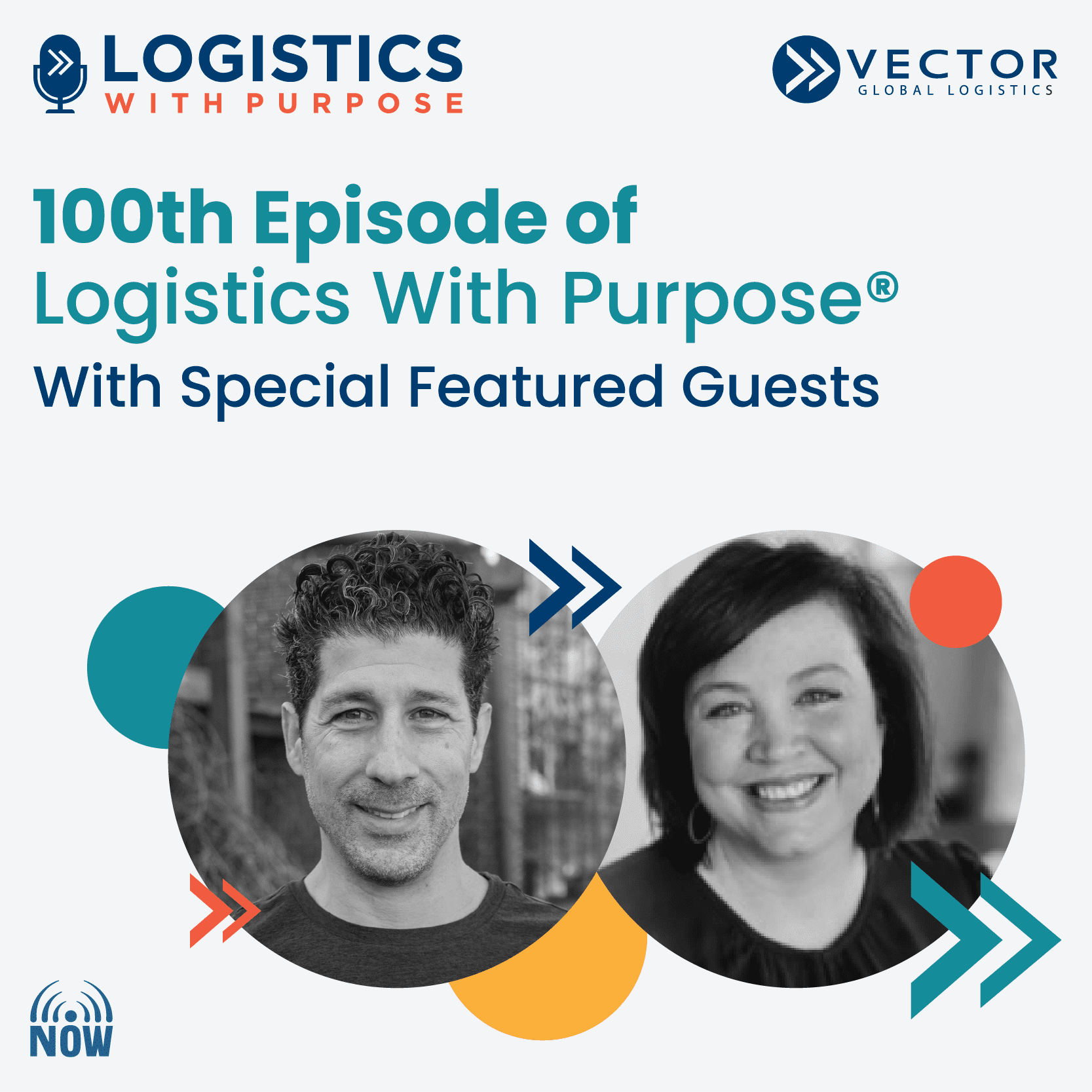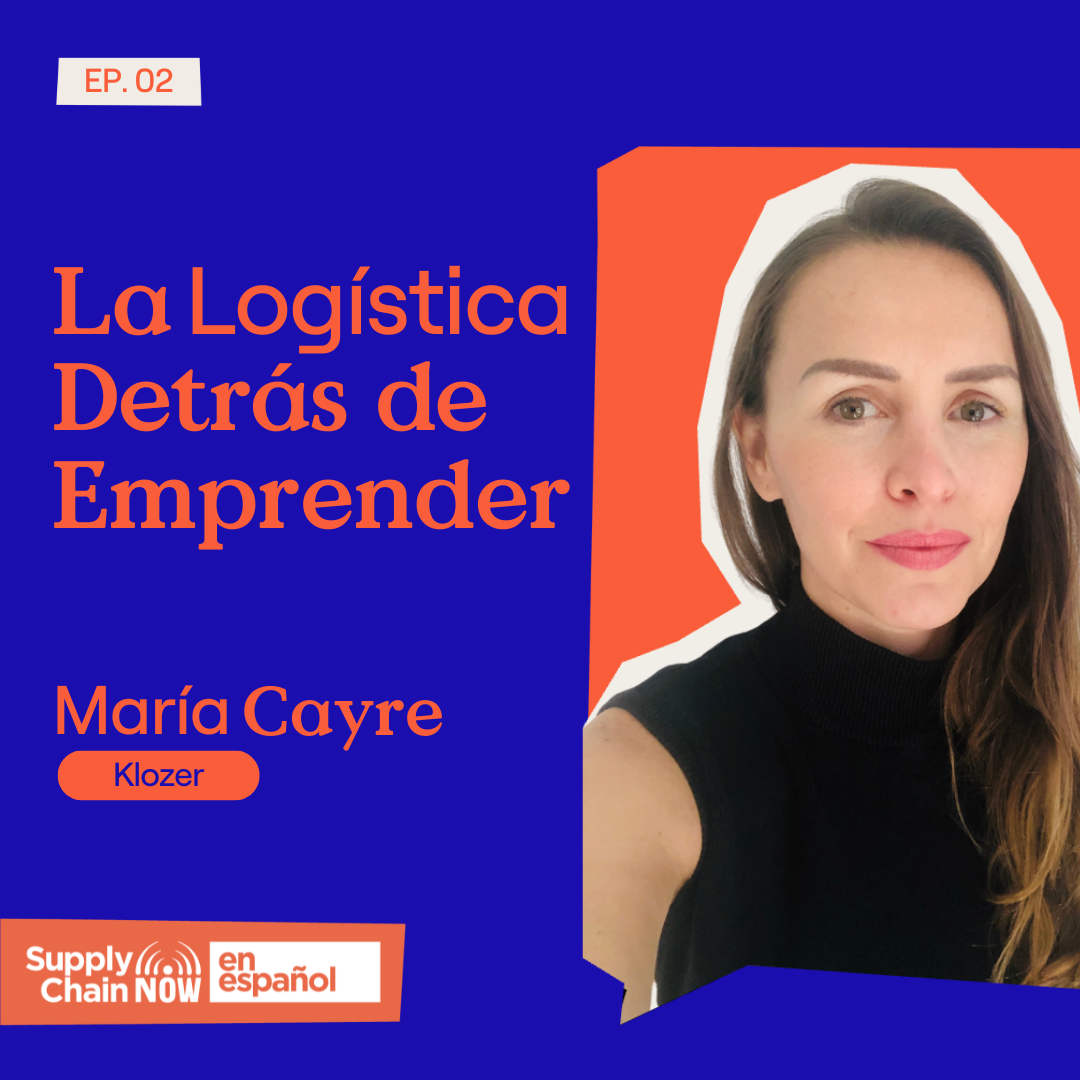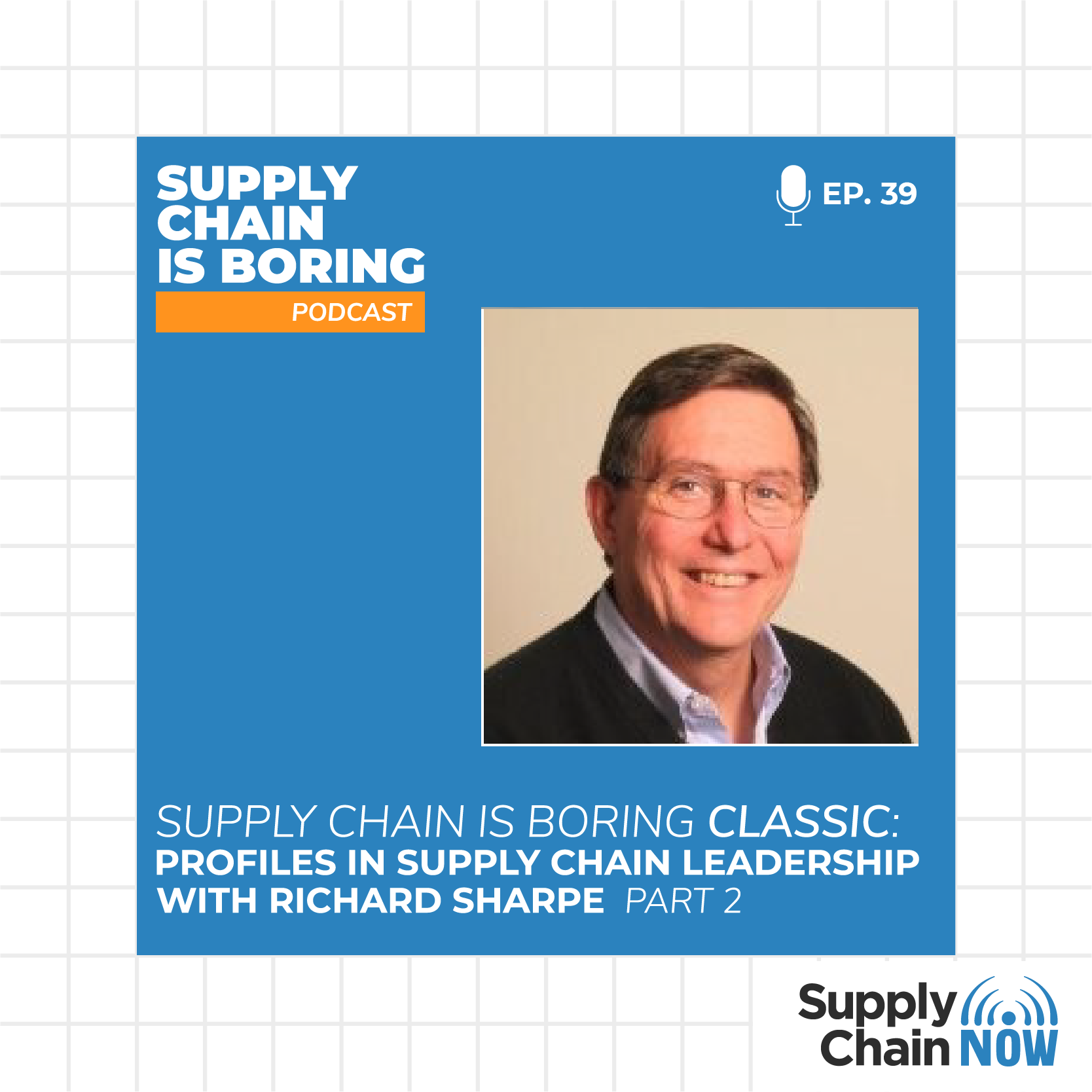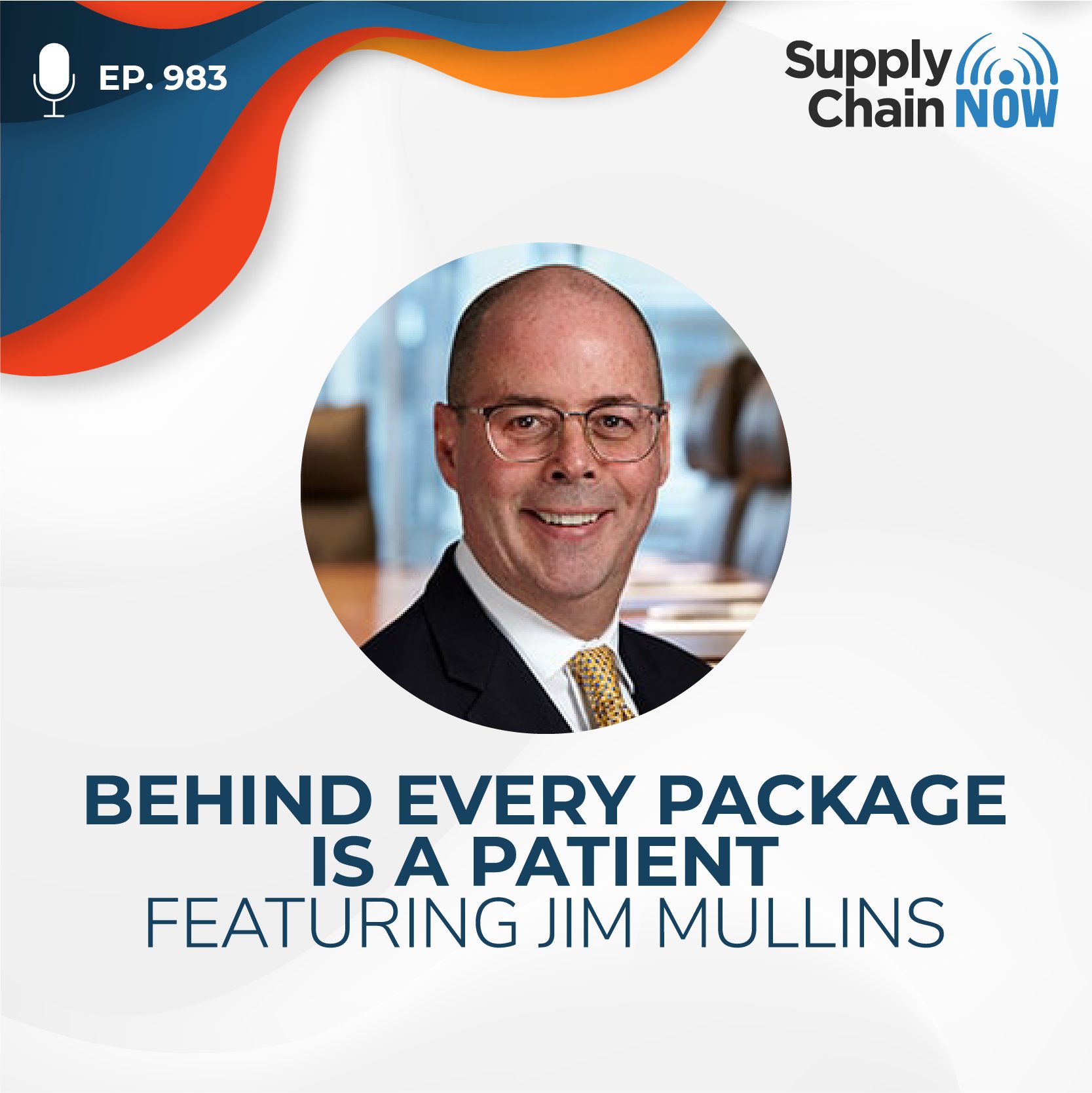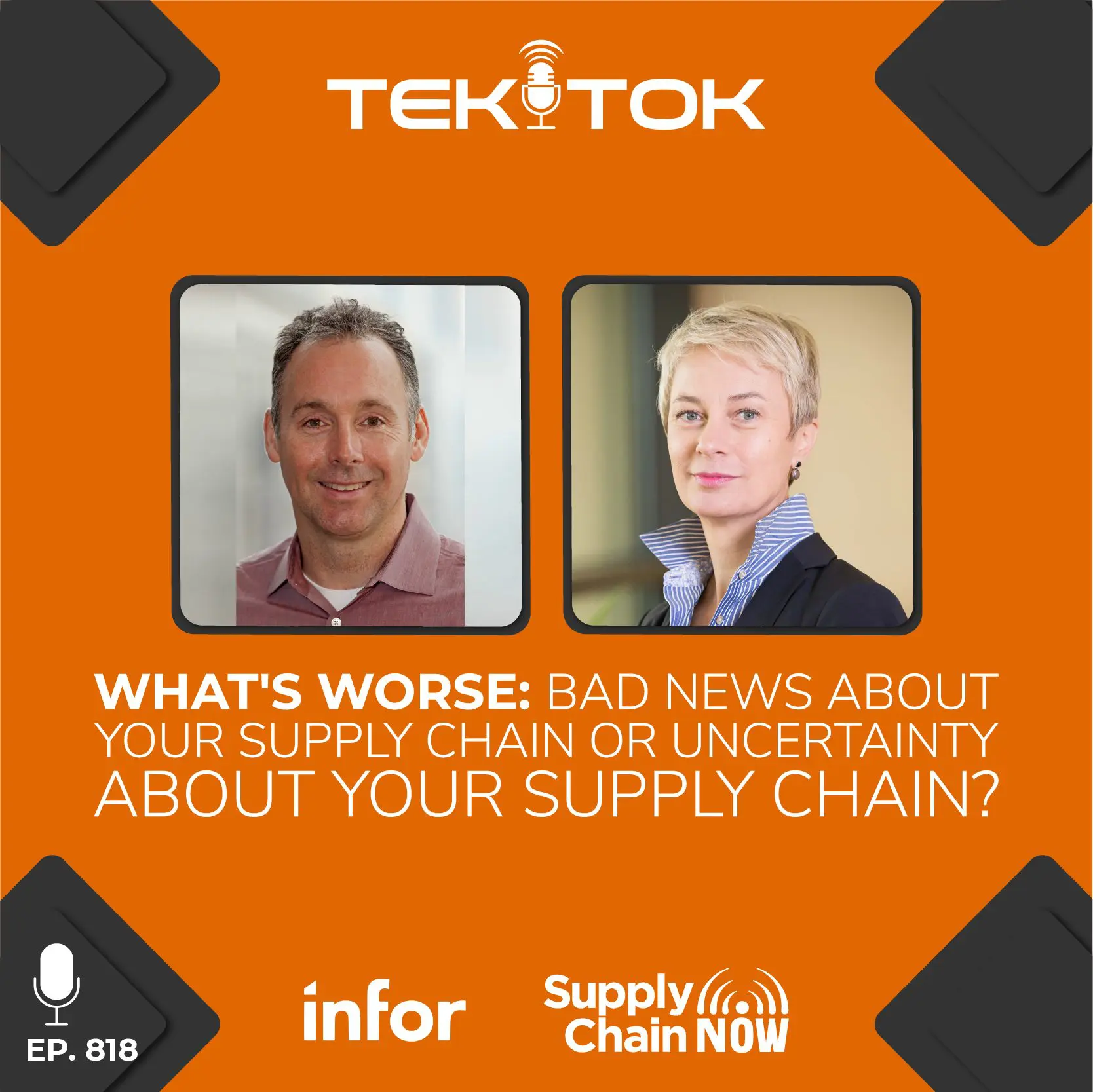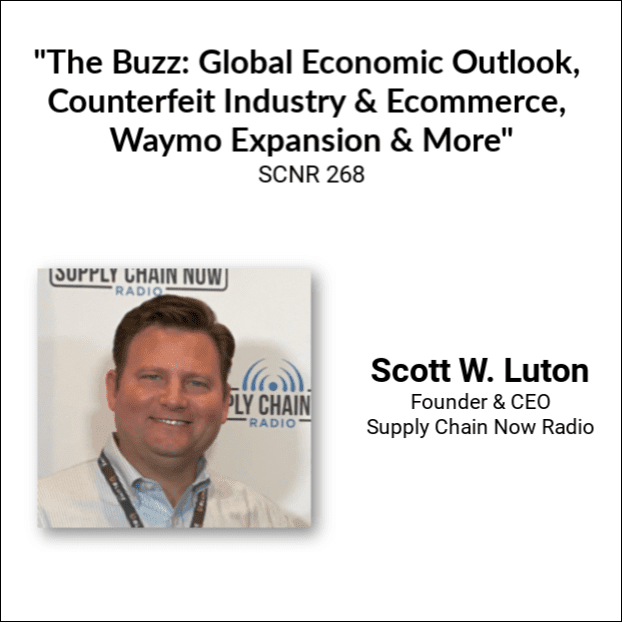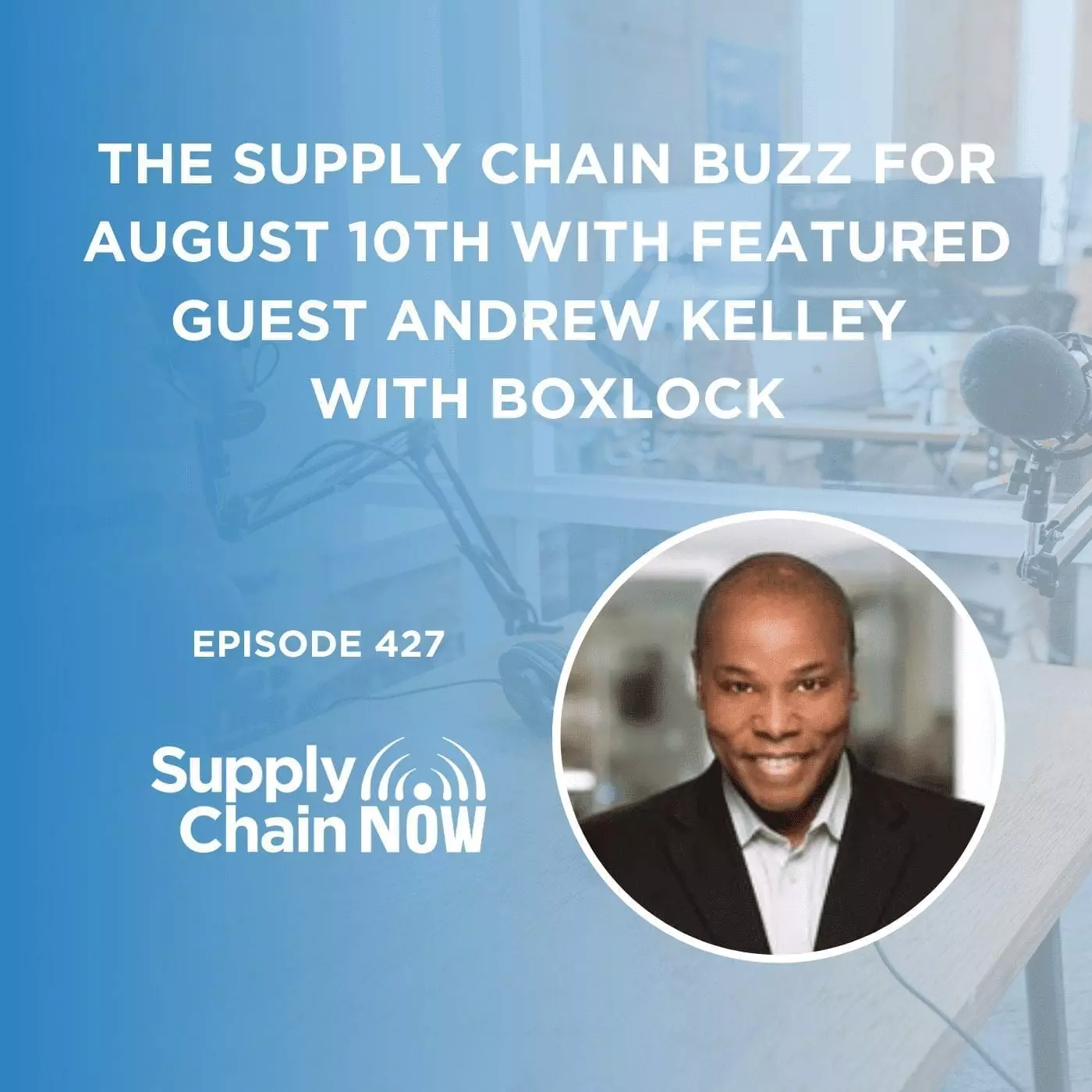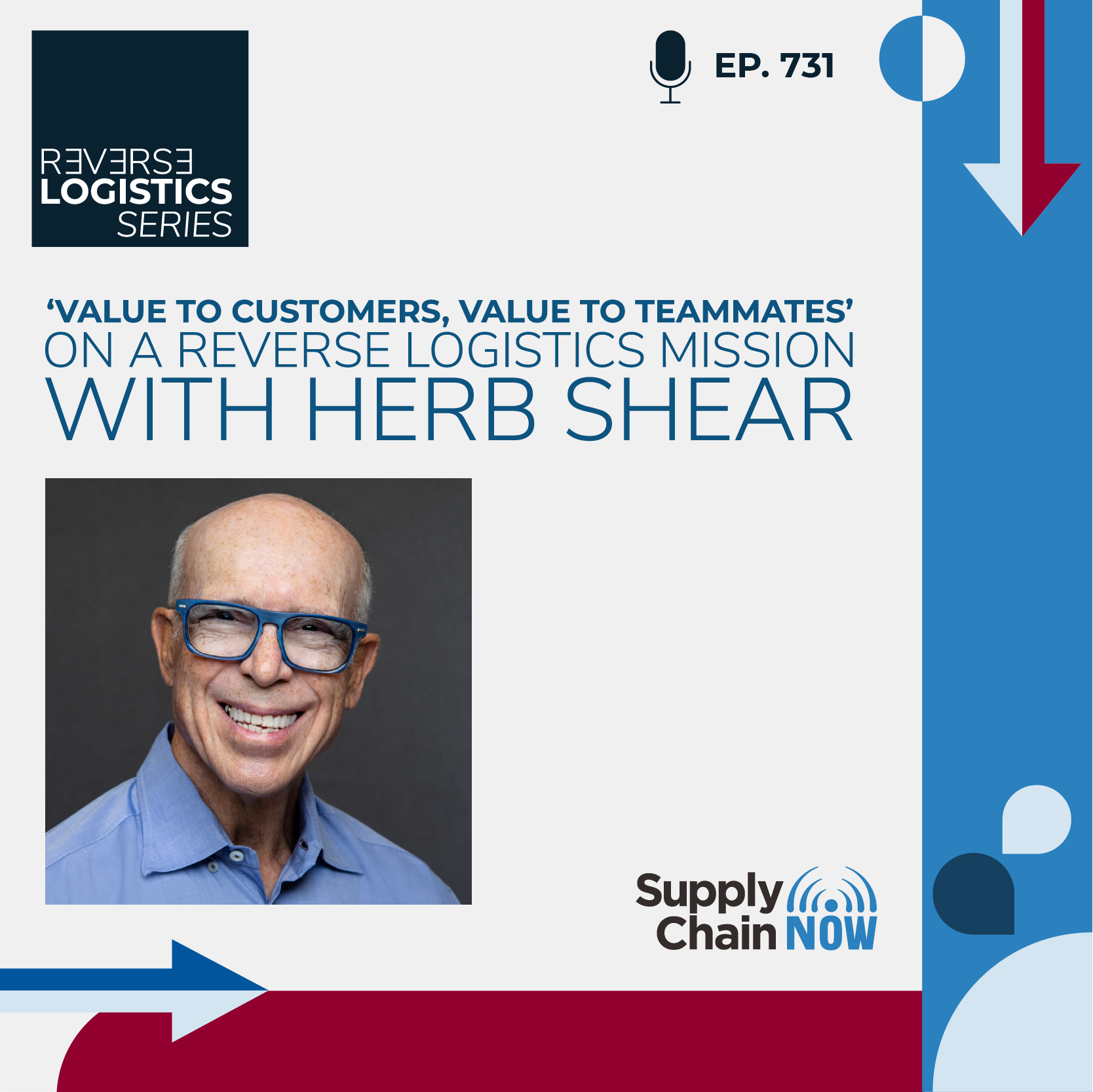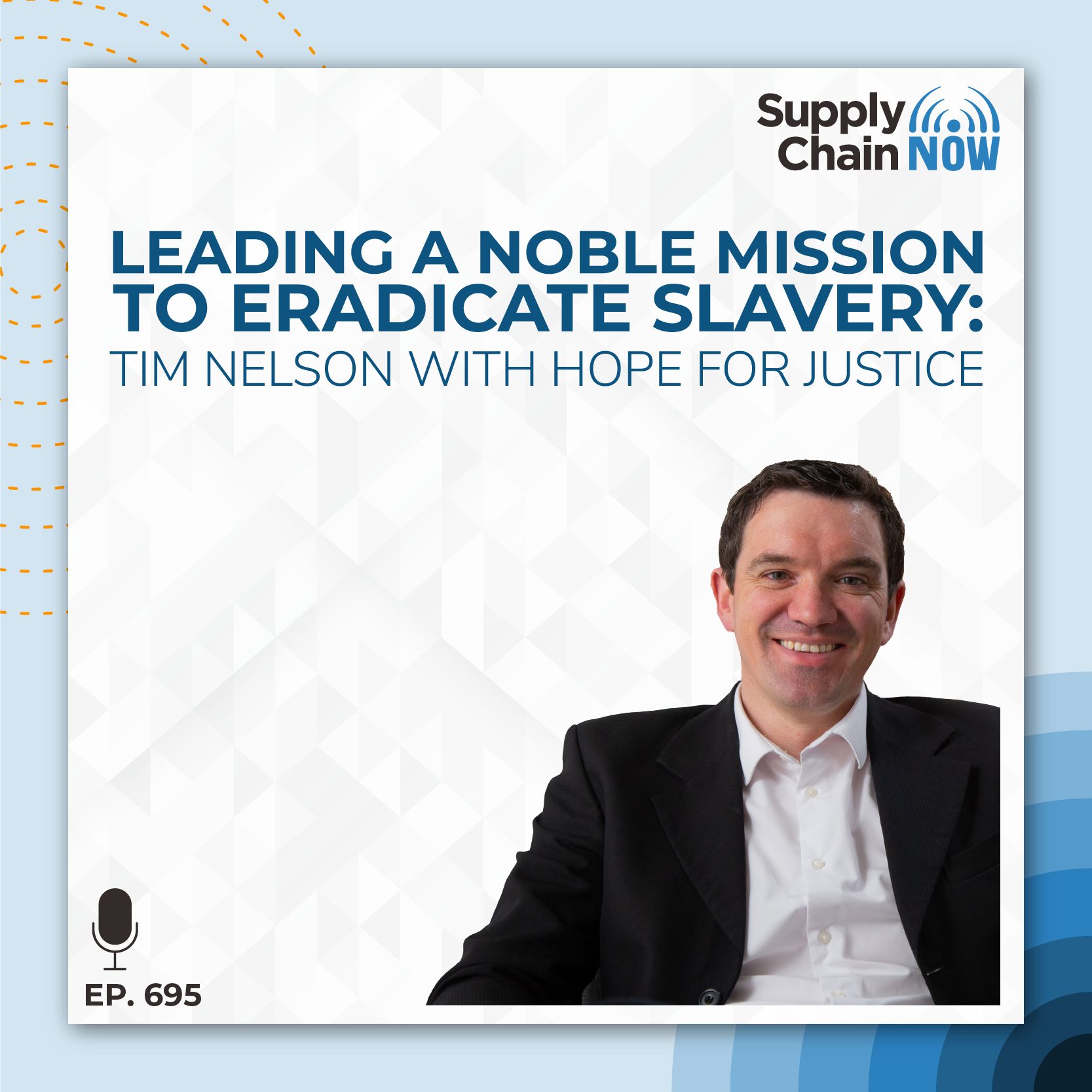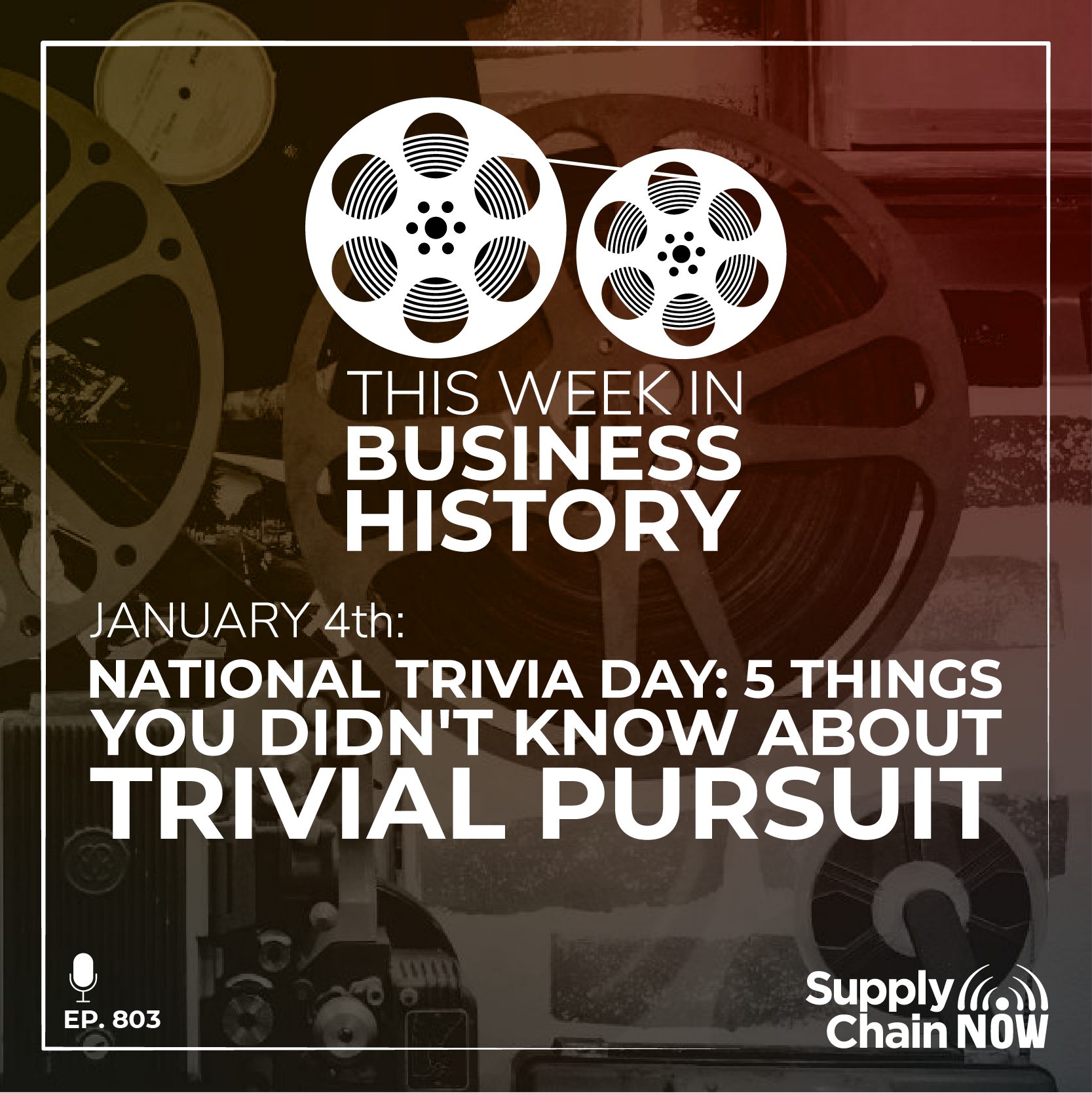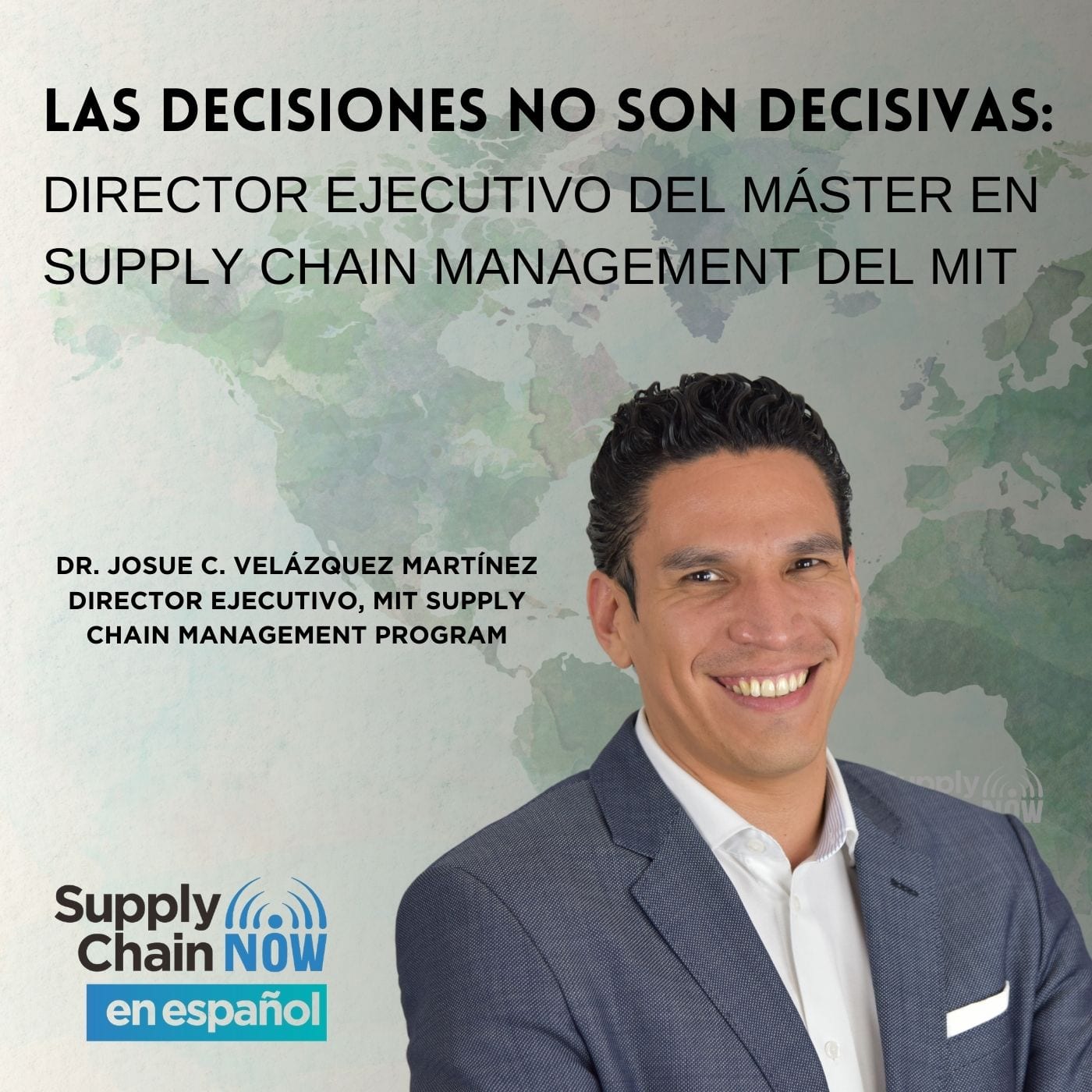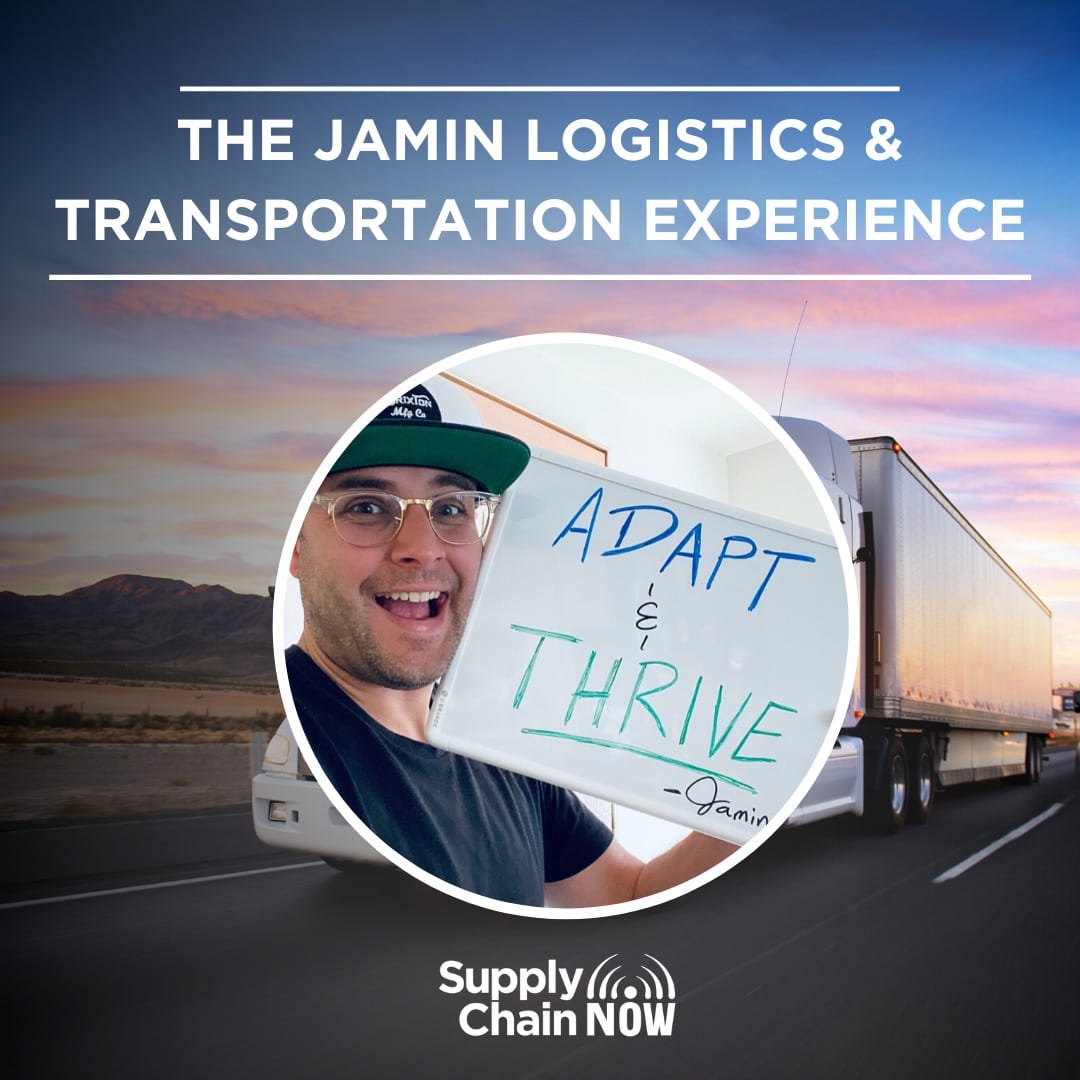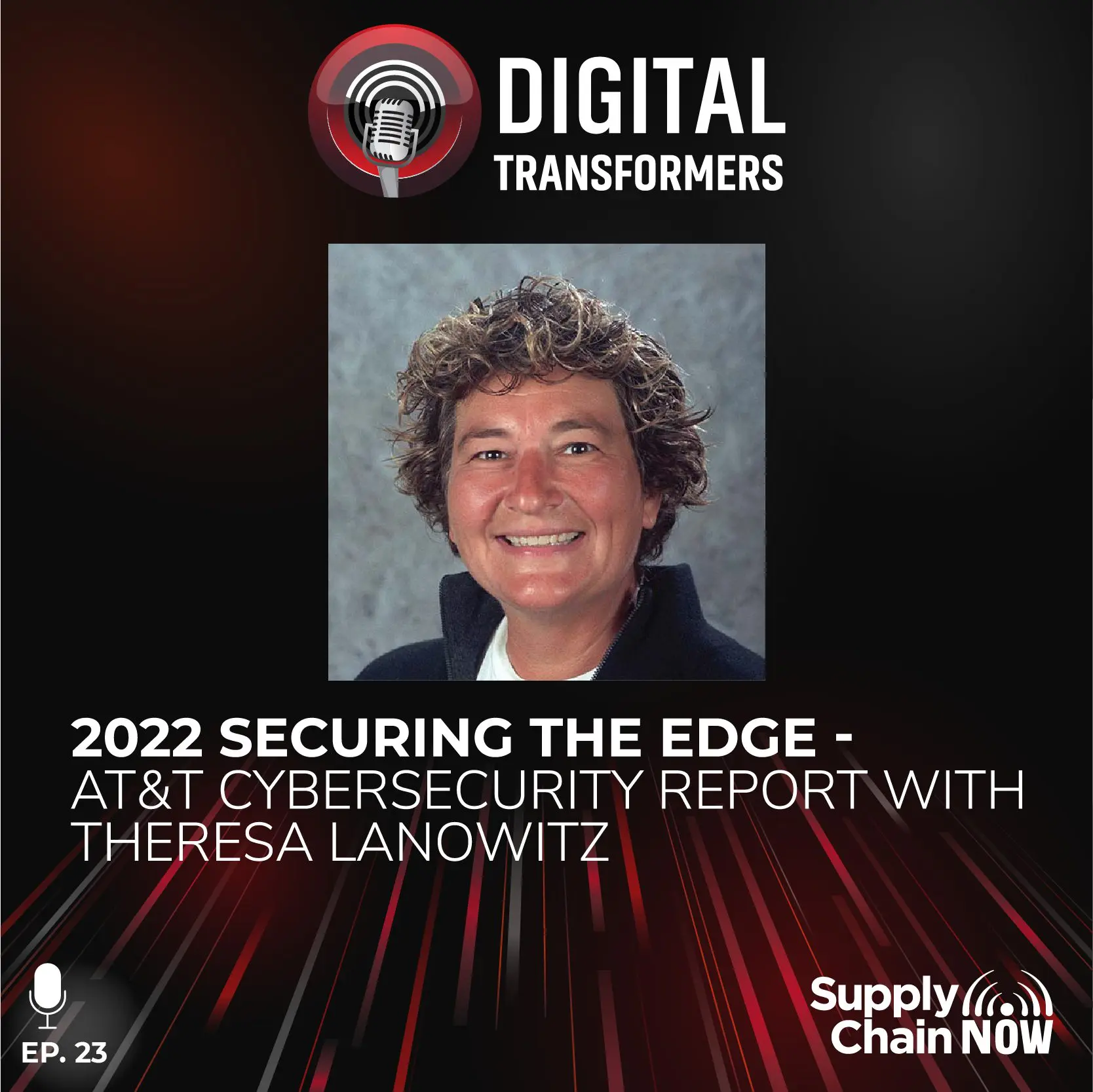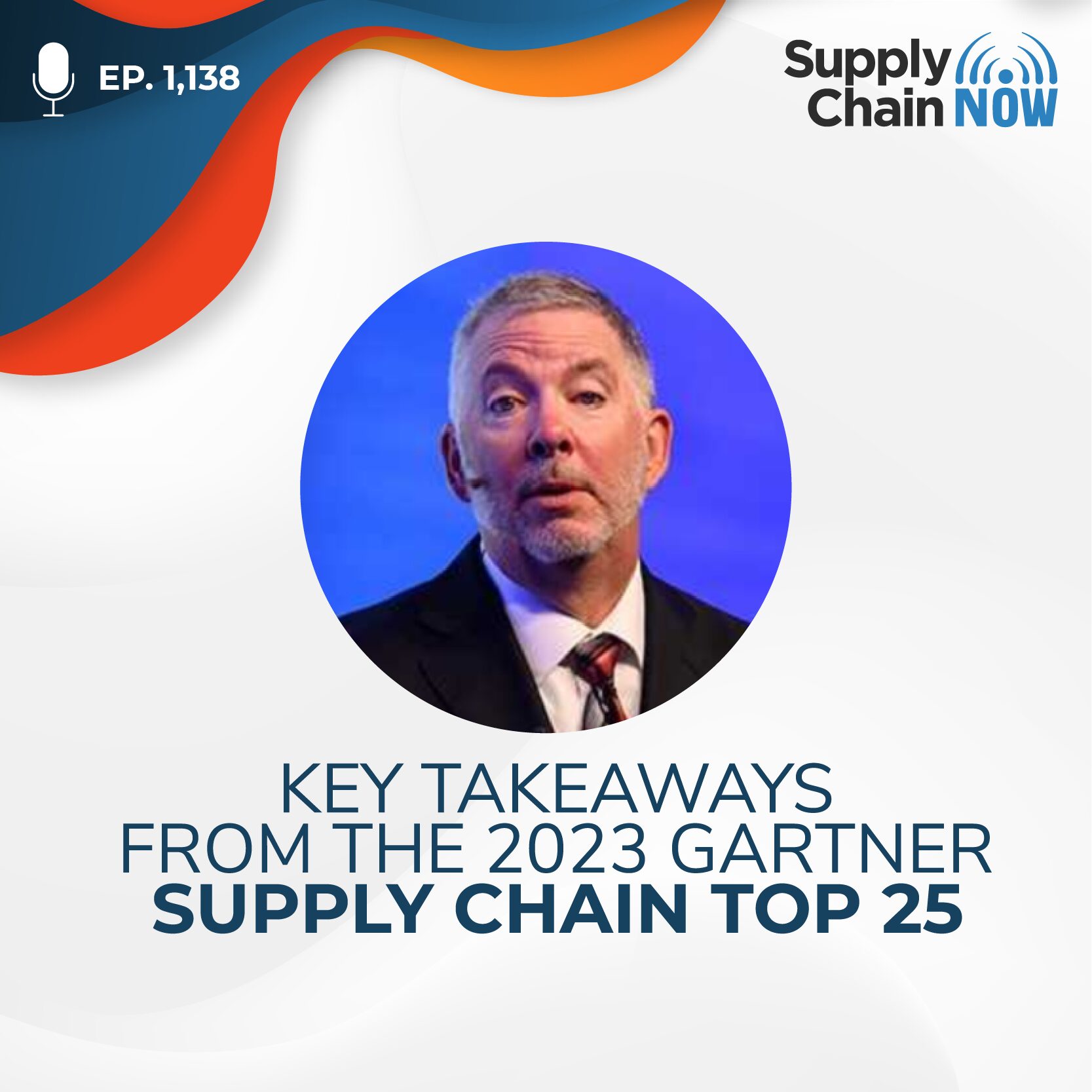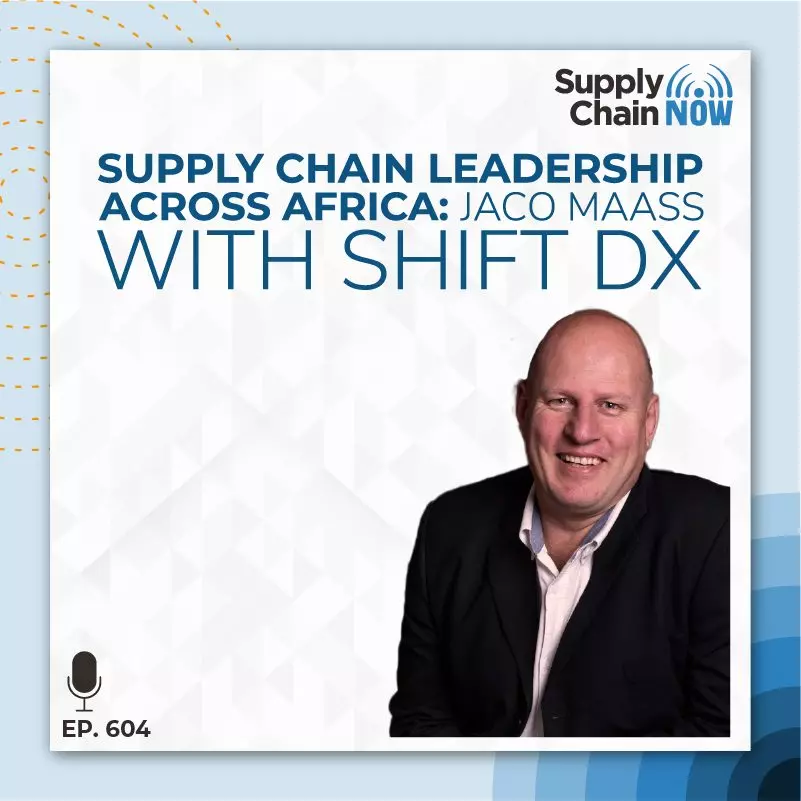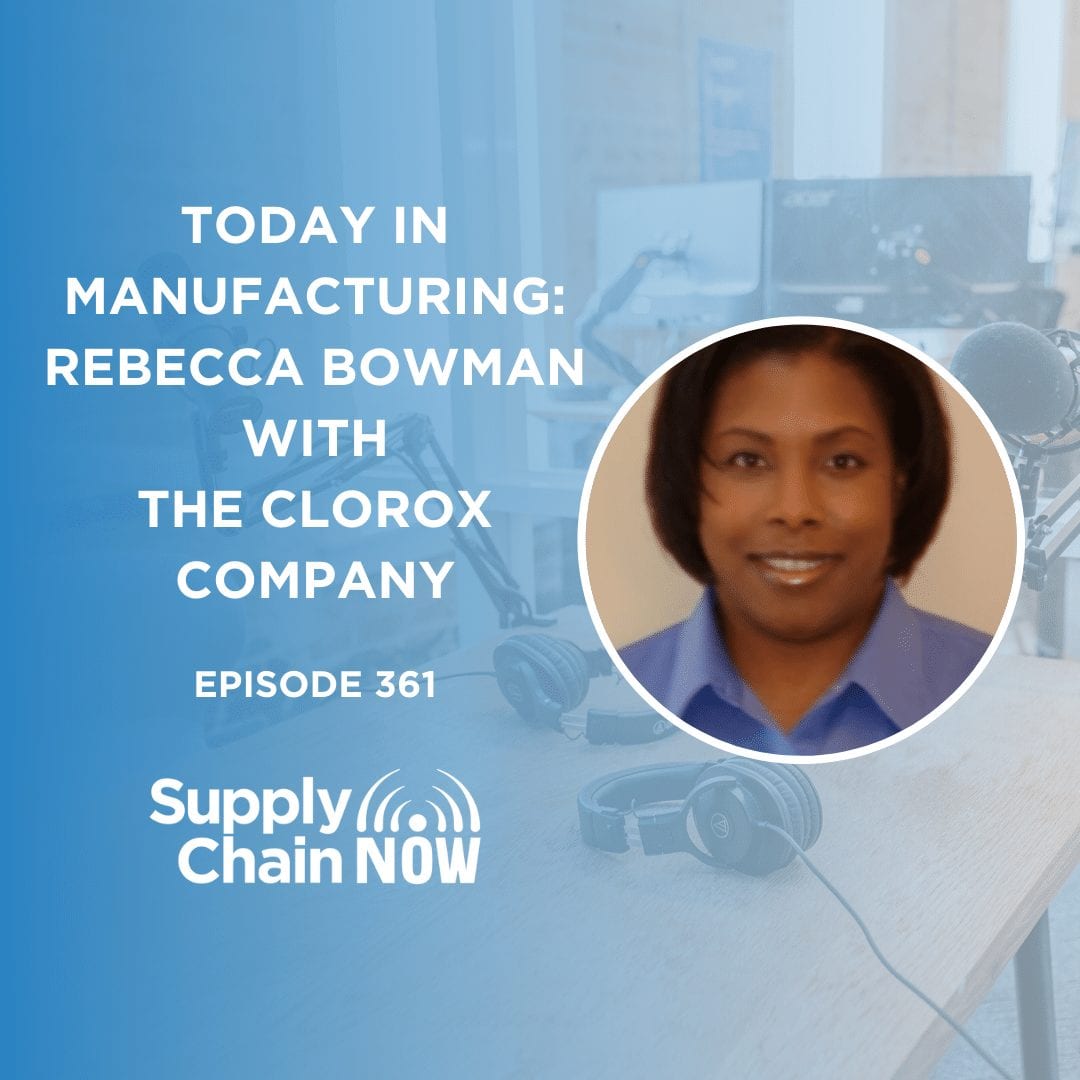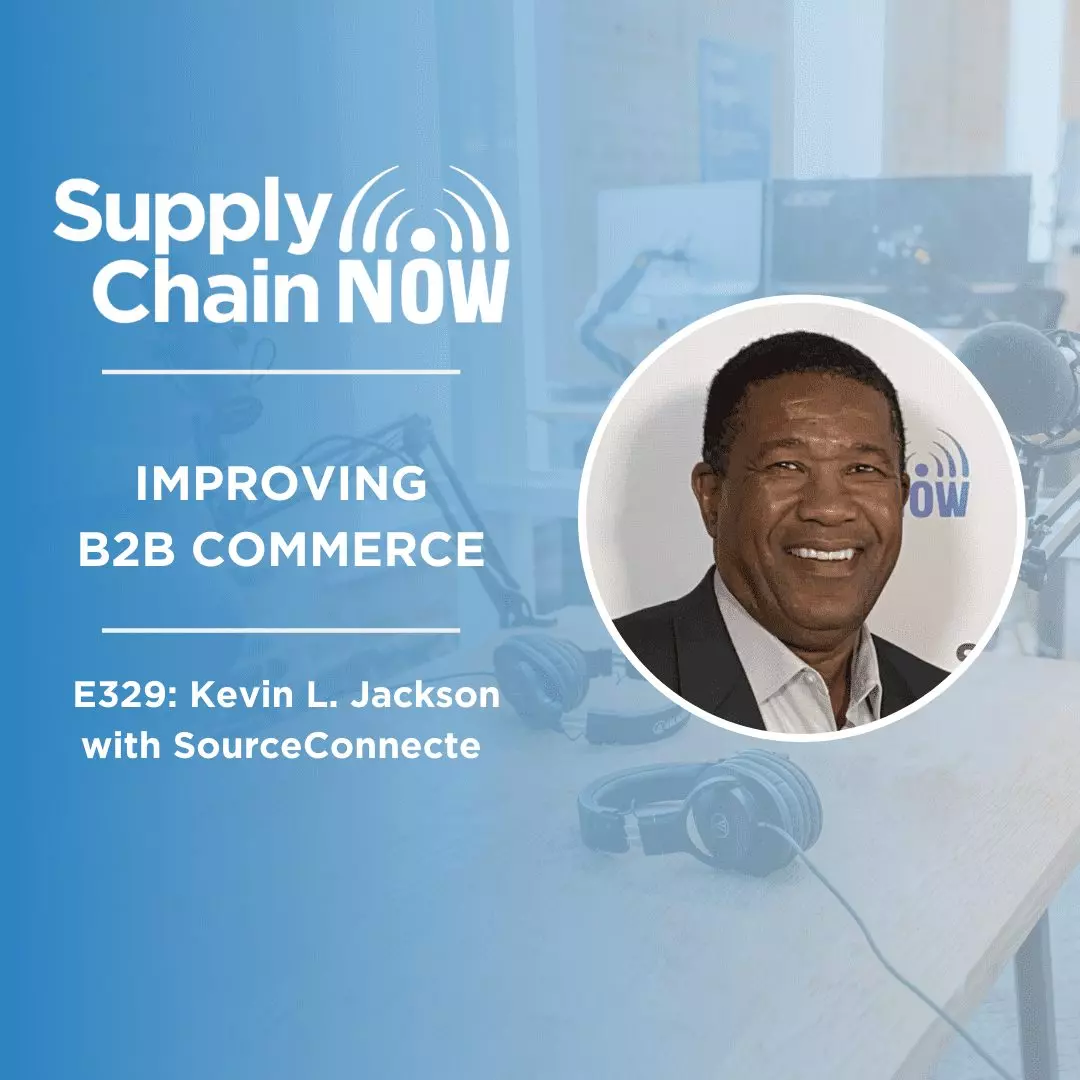Intro/Outro (00:00:05):
It’s time for supply chain. Now broadcasting live from the supply chain capital of the country. Atlanta, Georgia heard around the world. Supply chain. Now spotlights the best in all things. Supply chain, the people, the technologies, the best practices and the critical issues of the day. And now here are your hosts.
Scott Luton (00:00:40):
Hey, good afternoon, Scott lewd and Greg white with you here on supply chain. Now, Greg, how are you doing? I’m doing great feeling pretty full. How about you? Yes. We still have some leftovers. We’re still working our way through, but uh, had a wonderful time with the family across the Thanksgiving holiday and hope he did too. Yeah, it was great at our house. A little bit lighter group than usual. So my sister stayed home in San Diego. My brother stayed home in Indy and my other brother stayed home in Boston. Nice. And we’re going to bring one of his neighbors on here later, but I don’t want to spoil the surprise. Yes. Well, I’m gonna go ahead and spoil it. We’ve got a great guest today. We’re going to be featuring a geek with six river systems, a friend of the show, a lot of good, good stuff we’re going to be diving into, as you might imagine, especially from an e-commerce standpoint.
Scott Luton (00:01:31):
So stay tuned for that about 1225, but the rest of the time, it’s all about supply chain buzz, where Greg and I touch on some of the most meaningful, impactful developments across global supply chain. Uh, we, uh, broadcast live every Monday at 12 noon. Greg, hard to believe, you know, let’s talk about, let’s say, um, um, uh, clay and Amanda who’s who makes it all happen? A little curve ball. I wonder how many episodes we’ve got under our belt dating back to the first iteration of the supply chain buzz. Whereas yeah, it’s like a 12 minute rundown. So you did the first few right. Solo and, and were they, they weren’t video, right? No, they were effectively a podcast if I recall, right. Wow. Not nearly as fun, but, and to that point, speaking of fun, be our whole fun group, right. That’s right. Of course.
Scott Luton (00:02:26):
We’ve got Chris Barnes here with us. We’ve got Jeff Miller, Tom Raftery says, Hey, for once he’s early. And we’re like, that’s all part of the game, Tom. That is right. Uh, in boy, hello to all suppliers. He says, uh, let’s see, Gary Smith is with us. Uh, it’s raining up there in long Island. Gary hope this finds you well, uh karthika is with us good day to you. Uh, T squared is with us as well. He’s holding down YouTube, holding down the Fort over at YouTube. Great. Yeah, of course, Prateek. Great to have you back with this. Pray teak via LinkedIn and hello, and good morning to everyone else. One final one. I have, I have not spoken a snake. Hope this finds you. Well, it’s been a little while since we last connected. Great to have you back as part of our live stream here. Um, all right. So Greg, one quick programming note, before we dive into the lead off story here, if you enjoyed the live stream, check out our podcast, wherever you get your podcasts from today, we published as a replay of, of, uh, Mike Griswold with Gartner his last appearance here on a live stream. And as always Greg yeah.
Greg White (00:03:34):
Mike brings it right? Yeah. It’s actually good for me to go back and, you know, cause we’re doing the show, right. So it’s really good for me to go back and just listen, not have to, you know, focus on what’s the next logical thing to say. And man, he does bring it big time,
Scott Luton (00:03:53):
Tom, every time Chris wants to know how about then chiefs? Uh, they pulled one off against a, a talented Tampa Bay bucks team. Yeah.
Greg White (00:04:03):
Yesterday, right? Yeah. Yeah. Forced to picks by Tom Brady. That’s not unusual. Honestly, the chiefs have had Brady’s number for a lot of years.
Scott Luton (00:04:13):
Yeah, that’s right. I think, uh, your quarterback is for and against Tom Brady, right?
Greg White (00:04:19):
Uh he’s now, he’s now, uh, now even with him. Okay. But that counts 2018. When Dee Ford whose name I will never speak ever again. Now that I’ve said it, um, lined up off sides when the game should have been over. Gotcha. Gotcha. But then we stomped as guts out in the super bowl when he went to San Francisco. So I’m not better,
Scott Luton (00:04:43):
Not bitter at all. And hello, Matthew from Ottawa, Canada. Great to have you back with us here today. Oh, Kim winter, man. Kim winter is up early or up late,
Greg White (00:04:56):
Late regardless. He’s with us
Scott Luton (00:04:59):
Here on the front end. And Kim enjoyed the, uh, the session you, you led at the, uh, supply chain conference, uh, in recent weeks. And then finally Sylvia Judy, uh, the jam queen of America, or I think we deem a new title for her just about every live stream she’s based in Charleston, South Carolina. And, uh, great to have you with us here, Sylvia. All right. So Greg, are you ready to get down to business? Yeah.
Greg White (00:05:30):
Yeah. Let’s talk about what’s going on in supply chain. Yes.
Scott Luton (00:05:36):
The theme today, Greg is going to be kind of black Friday breakdown. Right. We learned so much every year. It seems from one of the bigger shopping days of the year. And of course here in recent years, it’s been, it’s just basically extended with cyber Monday, but tell us, you’ve got an interesting article here from CNBC. Uh, give us some. Yeah,
Greg White (00:05:58):
I think because we just had black Friday here in the States, it’s time. It’s a good time to start working the supply chain from the consumer end and the retail end back into the supply chain because everything virtually everything that can be done to make goods available for the consumer has long ago been done. And now the dire cast, and now we all just wait or act or, um, pine for consumers to buy from us. And actually this article from CNBC opens with pretty catastrophic number four, uh, e-commerce sales, but in store shopping drop 52%, uh, on black Friday. And, um, you know, basically what the issue is of course is this is year over year numbers, uh, from a company called sensor Maddix solutions, traffic in retail stores is expected to be down as much as 25% this year, this entire year versus last year.
Greg White (00:07:06):
And obviously this is a huge Delta, you know, we were just talking off offline before we came on, nobody diving over tables, nobody waiting in line pounding on the door, trying to get in, uh, maybe in some rare instances, that was the case. But even with social distancing, the lines looked much longer than they were. And that’s a common refrain from, from the articles that I read, uh, that were adjacent to this right jewelry and footwear. We’re down a tremendous amount. Why, uh, I dunno why jewelry, the divorce rate is way up. So maybe guys are just not apologizing anymore and nobody’s walking anywhere. So you don’t need shoes, but just to give you an idea, apparel sales were down 50%. My guess is that the 50% was about flat on tops and zero on anything you were below the waist because why, what difference does it make?
Greg White (00:08:07):
And home goods, home goods also fell 39%, but I’m not sure that that’s an indication of, of overall sales because here’s what, um, here’s what Brian field, uh, said. Um, Brian field, who I forgot which what companies from, from, I think maybe censor MADEC shoppers are spreading out their shopping throughout the holiday season. We’ve seen that because of concerns about social distancing and the pandemic e-commerce deliveries were delayed and costs increased, and the strain has not subsided really over the last eight or so months. So I think, I think we’re seeing that and anecdotal, anecdotally hearing that people are spreading out their shopping. I can tell you that I’m not. And, um, I’m going to be a large proponent of buy online curbside pickup. I have a feeling right, because, uh, some of the things that I want to buy are out of season, they’ve been difficult to find, but look, malls looked bleak, the parking lots were more empty than full.
Greg White (00:09:16):
Um, and, and this quote from field I felt like was really important. This black Friday looked more like a Saturday after black, Friday than an actual black Friday, which is the trap traffic is half or less of what a black Friday looks like. But online spending did jump almost 22% to hit a new record of over $9 billion in online purchases that makes 2020 or, or black Friday, 2020, the largest online spending day in us history. Wow. So, and get this States with gathering restrictions for the holidays. So a greater online surge. So you weren’t calling your family when you were, when you were alone at home on Thanksgiving, but maybe you were shopping for,
Scott Luton (00:10:12):
Uh, so really it’s an interesting observation.
Greg White (00:10:15):
It is fascinating, isn’t it? Yeah.
Scott Luton (00:10:17):
It, on top of all the other, uh, buying patterns and behaviors and preferences, we’ve been, we’ve been talking and discussing for months. Now, this is like, this is, this is like a grand experiment, this black Friday and cyber Monday. So I appreciate you sharing some, uh, some of the things that retailers are seeing.
Greg White (00:10:35):
Well, I think this is something we could have predicted was a lot of online activity. I’m not sure that anyone could have predicted a 52% drop in right in foot traffic in store sales. Right.
Scott Luton (00:10:48):
We’ve got some great comments here from the audience. I’m gonna zoom through here, Greg. Uh, let’s see here. Sylvia is coined today, happy month in Monday and agreed Sylvia and been, it’s been a good month on November. Uh, let’s see here, Karen Tucker, first time listener. Great to have a year. Karen, let us know where you are listening from would be interesting. Uh, [inaudible] says LA is going back and lockdown starting today, after all the black Friday shopping the numbers going up here,
Greg White (00:11:17):
People were actually out shopping in LA. That’s interesting. Yeah.
Scott Luton (00:11:23):
Uh, let’s see, David is here of course. And he says, and here we have stores having to block off non-essential items as they are no longer allowed to sell them. Wow. Um, let’s see here, Amanda. Okay. So underwear,
Greg White (00:11:37):
That means, I don’t know what that means. Exactly. I’m interested in that.
Scott Luton (00:11:40):
Even if you can elaborate a little more on what you’re seeing, that’d be great. I mean, it says she’s been spreading out her online shopping, but feel pressured to go ahead and finish my shopping now, since I’ve already experienced shipping errors and interesting, Amanda, you’ll have to, uh, give us a story or two,
Greg White (00:11:58):
Hey, quick. Oh, sorry. Go ahead. Yeah.
Scott Luton (00:12:01):
Tom says, unfortunately here in Spain, lots of news reports were talking about how the main city centers were crowded with shopper. So they appeared clean the delight, the, um, uh, downturn in foot traffic.
Greg White (00:12:15):
So go ahead. Populations are a lot more dense in Europe, obviously a lot more people in less space. So, uh, I could see where that could happen. And they had at one point, um, shop the high street initiative. So I wonder if that isn’t having, having some impact as well. Yep. Good point. That is what I wanted you to. That is exactly what I wanted you to put up there. So,
Scott Luton (00:12:39):
So Jeff, I’ll tell ya, uh, I’m looking forward to having him on a live stream soon. Cause he, he is just, he’s always owned. The guys never off Jeff says may have missed this factor in the article. Does that down number exclude BOPUS and that is a, uh, bound line pickup in store. For those of you unfamiliar with that acronym, I saw tons of store inventory tagged in a waiting pickup and otherwise empty stores. My sense is that lots of merchandise was going out the door target best buy Macy’s while in store shopping was dead.
Greg White (00:13:11):
So it makes sense, good point on this article and on other articles, because I couldn’t find the number in this article, I searched several other reports and there is no report on actual retail sales. So what they’ve reported is traffic. So that is foot traffic, Jeff. And that’s an excellent point because the numbers aren’t in on retail register sales, right. Um, and, and frankly, even the sales at online retail are an extrapolation. Uh, didn’t want to go into the depths of how that works, but it’s a, it’s an extrapolation on an extrapolation on an extrapolation, but it’ll come out fairly close, but because they haven’t reported actual dollar sales in the stores, uh, we’ll see what it looks like. And I think that there probably will be some impact of, of curbside pickup in store pickup on that. But I still think it was going to be pretty substantially down. I don’t know if everyone remembers, but back in the summer early fall, we were predicting something like a 14% decrease in retail sales. Don’t quote me on that, but it was somewhere in that range right. For holiday. So we’ll see how holiday sales shake out. Yeah.
Scott Luton (00:14:26):
A couple of final comments and we’re going to move right along. Chris says e-com shipping errors. How can it be? I think he’s ever happens sarcastic. Uh, Tom says this is going to have huge implications for small retailers who are not set up for online sales. Agreed. And that’s, that’s been biting them, uh, for four months now. Um, if not years, uh, so David hears elaborating on his point and then we’re gonna move to the story. Um, David says, we’re seeing a lot of backlash from small business owners complaining about big box reset. Retailers allow to be open for essentials like pharmaceuticals, grocery, however, they also sell non-essentials toys, games, clothing. So we have seen some box stores having to block off hours with non essential items as they can only sell essential items. Yeah. I think is what he meant to say there. So interesting.
Scott Luton (00:15:19):
Very interesting there. All right. So we’re going to keep, uh, um, just a fascinating time from a retail standpoint and, and certainly e-commerce standpoint, uh, and a lot of good, good observations shared from our audience. Let’s talk about this Amazon story, uh, sticking with e-commerce. Um, so this comes from Andy Palmer over at CNBC. Hey, th they were really bringing the goods here lately, obviously. Yeah, that’s right. Amazon is bracing for a continued surge in online orders as this article points out and along some numbers that you’re reporting Greg online sales, this holiday season are expected to be a whopping 33% higher than last year as massive given just the scope.
Greg White (00:16:04):
Um, but Scott still that doesn’t come close to the amount of billions that have been sold, uh, in person in retail. So that’s, you know, that’s a number that we’ve continually, we’ve continually had mitigated with that statement over the years. Right? Good point.
Scott Luton (00:16:20):
So, uh, Amazon is highlighting their little, given a little extra communication juice to the opportunities for its customers to pick up their orders from a variety of locations, including brick and mortar bookstores and contactless pickup points also known as Amazon hubs. A great, if you remember, we had a really convenient experiment experience way back when it feels like 10 years ago, but it was, it was about a year ago out in Austin, we had to have a piece of equipment. We, we took a van all the way out, Austin, Texas for supply chain conference and was missing a key, um, Caitlin exactly what it was, but we had Amazon send it to the Amazon hub right in front of the gas store next to the hotel we were. Yeah. And it worked just like a, a charm. Yeah. Um, so anyway, they’re really encouraging a lot more of that. Um, and of course that may be, even though they deny it, they may be looking for a few advantages related to customer pickup, namely avoiding that labor intensive and costly final mile delivery of course.
Greg White (00:17:28):
And, and they know as it gets closer to Christmas that that it will become more difficult for them to fulfill that delivery promise. And I think we’ve gone a bit back to the old days in e-commerce where they’re saying it’s going to take seven days, but it really takes five. I mean, you see a lot fewer one day delivery items. Now, not that I’m shopping for anybody right now.
Scott Luton (00:17:56):
So
Greg White (00:17:58):
You do see a lot more extended and, and have for about a month seeing a lot more extended delivery times.
Scott Luton (00:18:04):
So the company says don’t fret, but Amazon supply chain infrastructure is ready. They point to increased transportation capacity, ramped up warehouse staffing and optimized fulfillment center footprints. But still, if you look past Amazon, you look at what FedEx and ups is warning, right? Folks need to order early. And, and, and they’re talking about, you know, just to how big of a challenge that this own lown surge is going to be. So, so mixed signals. But you know, I was going to wrap up that segment by asking you Greg, if you and Vicki have all your orders in, but you’ve already kind of,
Greg White (00:18:39):
Well, we have, well, we haven’t got all of them in, but we have got many of them in. And let me assure you that we’re aware of, of what our options are. And by the way, to go back a couple points in that article, don’t think that Amazon, I mean, let let’s, let’s talk about ups and FedEx and the postal service. The entire reason that Amazon has a logistics department that has their fulfillment fulfilled by Amazon is because they have been so widely failed by the big carriers. Since 2014, in 2014, they said, enough’s enough. They started creating their own fulfillment and warehousing and distribution network. And off they go. But no, the wording here, they’re saying you can count on Amazon. Now, those other guys we don’t know. And you know that a lot of their goods are still shipped by FedEx, not so much by ups anymore, but they’re still should ship by FedEx. So they’re, they’re applying a little plausible deniability and in advance of a issue.
Scott Luton (00:19:45):
All right. So good. A lot of good stuff there. Fascinating. The, the communication behind the is always interesting. Let’s share a couple of quick comments here. Michael Ava says, and Mike hope this finds you. Well, I would imagine sales are up because ordering online has extra orders, uh, different colors or sizes that would not occur in the interim
Greg White (00:20:07):
And experience bracketing right. Buying the next size up and the next size down. Yeah.
Scott Luton (00:20:14):
Uh, Amanda is elaborating on her experiences. She has, uh, seen, she had, she’s had two orders with incorrect and altered tracking information with delivery confirmations that were in fact not delivered. So fake news there, I’m now still waiting on the actual delivery after arguing with customer service via chat and getting the order reshipped, Amazon, however has delivered earlier than estimated delivery dates. Interesting. Tom says, he’s also seen Amazon doing early deliveries to, I suspect they’re under promising and over.
Greg White (00:20:48):
I bet that’s exactly what’s happening is they’ve adjusted that
Scott Luton (00:20:52):
Yeah. Says this is perfectly timed. I just got pickup requests from Amazon for two of my packages just yesterday. Yeah.
Greg White (00:20:59):
You’re welcome to stay hot. Whatever we can do to increase performance in the supply chain, we’re here for you.
Scott Luton (00:21:06):
[inaudible] and the other thing the opposite with Amazon two day delivery has been taking three and sometimes four days,
Greg White (00:21:12):
Wasn’t Korean at the beach for Thanksgiving. So really that’s a little bit more difficult and it’s hard to have. It’s hard to have sympathy for Korean if she’s at the beach
Scott Luton (00:21:25):
And, and gorgeous pictures, she’s she passed along one over to us. Uh, let’s see here. Nairobi says that she’s been a victim of Amazon delivering earlier too. Some people would think that is good when Amazon delivers before, but not when it’s at birthday gift and you want it to be delivered the exact date. Outstanding. All right. So we’re going to, so clearly lots of passion and sentiment, uh, around, uh, these deliveries as to be expected. So we’ll keep the conversation moving. And by the way, we’re getting a little bit of feedback from folks that the video is frozen. I’m hoping it’s not related Greg to our adjusting to go to full 10 ADP, but it could be, that might be, uh, um, uh,
Greg White (00:22:07):
That’s right. We’re brought to you in 10 ADP and maybe, well, just let me, let me just make a public statement here. Scott is you can always count on the supply chain network to be there for you, Comcast and those other guys, and I’ll know.
Scott Luton (00:22:24):
Well, I hope it, I hope it’s just a small glitch and that, uh, it gets back to normal. So y’all let us know. Uh, we apologize for any inconveniences there. Um, all right. So really quick, we’re going to have to hit this story in super speed, but clay has come back. The research team has come back. This is the 34th episode of the new buzz and the 54 overall episode. So good, great, great, great work there, clay
Greg White (00:22:51):
Over a year total, right. And over half a year on video.
Scott Luton (00:22:57):
Pretty cool. Um, all right, so I’m gonna hit this really quick, so fast company. I love fast company. If, if, um, you know, you’re looking for a new source of great information across industry, including leadership and especially the tech, you I’ll check them out. This comes from Elizabeth SeaGrant or fast company, and I’m gonna give just, uh, the gist of this Newell brands, which you may know, Sharpie paper, mate, mr. Coffee, Elmer’s glue Rubbermaid. They just moved their headquarters back to Atlanta, by the way, hashtag supply chain city, their team of 300 designers is leveraging, uh, fresh eyes through students over at art center, college of design in Pasadena, California, and the main thrust or they’re using these outside eyes is to help them design products with less plastic. Right? But moving those efforts of taking of attacking the 300 tons, 300 tons of plastic that we produce each year, um, and taking it out of the design completely.
Scott Luton (00:23:52):
So you don’t have to worry about recycling, you know, uh, you move upstream and, and how do we, how can we design it out of the product? So they use 24 students and six teams from a variety of backgrounds. The students redesigned a variety of their key products, and this go around Newell, didn’t buy the IP related to any of the zines. Although they came really close with a redesign of the air refresher, but most more importantly, and I’ll wrap with this, uh, Nate young, who is our senior vice president of design over Newell. He said, quote, millennial and gen Z consumers think differently from older generations. They expect sustainability to be baked in from the start. What’s wonderful about working with these designers is that they are also consumers and they bring that mindset to the projects they do for our brands. So, you know, even though that didn’t lead to a successful redesign that Newell Balt and students made a little bit of money for their, their expertise, it will eventually and better yet. I just love the approach. Uh, we need to be doing a lot more of that. I hope more and more corporations take the page out of Newell’s book and, and, you know, reach out to these bright young minds. Um, you know, Greg, we’ve seen it here in the Atlanta area with, uh, the Savannah college of art and design, I believe. Right?
Greg White (00:25:10):
Yeah. Uh, and so many organizations trying to do the right thing. Right. Right. I think if there’s anything that awareness brought to the supply chain is, is a boon. Strangely Scott, we were talking about the changes of product mixes and that sort of thing over the, over the holiday. And one of the top, I mean, uh, violent, uh, discussions was taco bell and their selection, their decision to opt out of certain products. And the way people have responded to the loss of, I think Mexican pizza, they’re arguing being, it took too much packaging. And then subsequently one of my daughters brought home taco bell, and I thought, how much more packaging could it be than this? Um, so there’s still a long way to go. And we do. I don’t know if everyone else does, but we have taken to examining how things are shipped and packed in our deliveries. And it’s a constant, it’s constant. Um, this point of discussion here in the morning, hold anyway.
Scott Luton (00:26:22):
Well, a lot of good stuff there. I love the approach. Love students love the, uh, the, the bottom line impact they can have. It’s a great way of leveraging that huge resource. Okay. So Greg moving right along. Yes. We’ve got a featured guests. We’re bringing into the stream, right?
Greg White (00:26:37):
Yes. Geek. [inaudible] the head of global alliances for six river systems from the 11th around
Guy Courtin (00:26:44):
The smell of Paris. Wow. Right. Hey, oppressive. I was practicing that in my head the whole time.
Scott Luton (00:26:56):
I love it. G good afternoon. How are you doing
Guy Courtin (00:27:00):
Well? Good to see you guys. Yeah.
Scott Luton (00:27:03):
So really quick, before we dive in last time, we, we, uh, connected at least face to face was mode X back in March, 2020. It feels like eight years ago. Uh, but we did a little, little five minutes snippet with G I always love his, his thought leadership and his point of view. And it’s great to share some of that with our audience here on our, uh, the supply chain buzz, standing lab strength,
Guy Courtin (00:27:28):
Scott, thanks for having me here. Really great. And yeah, last time we saw each other, it wasn’t a lifetime ago. I think it was pre apocalypse. And, but, uh, I’m really looking forward to it. And again, you know, uh, just so you guys mirror what you say, you know, which are very happy cyber Monday, hope you had a great Thanksgiving. And we certainly did here kept social distance and kept to ourselves. So, uh, so enjoyed it and then looking forward to back to normal times next Thanksgiving.
Scott Luton (00:27:53):
That is right. All right. So quick question for a passive Baton to Greg and we tackle a few headlines. You’ve been tracking first up, uh, give us one good thing. One, one highlight from your weekend.
Guy Courtin (00:28:06):
Uh, just staying safe and spend time with, uh, with, with my girlfriend here and our dog and see my kid last week. And, you know, we, we, we twisted Thanksgiving around that you guys talked about not having our family here. Same thing, you know, my parents stayed home. Uh, but it was, it was, you know, we did, we could, we, my girlfriend had a great Thanksgiving spread, so certainly enjoyed it. And, and like, you guys are still eating the leftovers. Uh, and I think we will for a couple more days, uh, I think she cooked, like it was a traditional Southern Thanksgiving. We’d have all the family here, you know, 2030 of us. Uh, there’s only three of us. So still in my Snoop coat though, I surprisingly, I thought I would pop out of it today, but it’s good. You get your steps in around the, around the home.
Guy Courtin (00:28:47):
Right. Exactly. Exactly. Love it. Love it. All right. So we’ve got to get into work, so great. Yeah. So I know you were, you were in the green room, but I’m sure you got to listen black Friday and holiday shopping. And that sort of thing is the topic of the day. So as we do that, let’s talk about this, uh, wall street journal article and what you’re seeing. And maybe if you have any thoughts on what we had previously talked about, if you got to see that. Yeah, no, and I think there’s a lot of great points being made, right. And I think it touches upon some of the articles that we’re going to talk about. I think this one is sort of a good kickoff from that standpoint, sort of encapsulates a lot of what you guys are talking about about the fact that, uh, you know, online sales are actually growing like crazy on black Friday.
Guy Courtin (00:29:30):
So all of a sudden the cyber Monday County more, right, is everybody just moving everything and shifting, I think that speaks to a point that we’re seeing where I’m seeing, which is, you know, this notion of peak and promotions. Um, you know, we just have to look back, you know, guys talk about Amazon, Amazon prime day. That’s a big peak moment. Look at Alibaba in China with singles day. That’s a big peak. Uh, so do we even have peaks, you know, is black Friday count anymore? Uh, the cyber mining County more, you know, we, we all have access. We all are pushed by retailers, consumer product companies to think of promotions happening all the time. And I think that’s really interesting. And I think what this article points out to is an underlying current, which is with COVID, you know, a lot of companies adjusted their inventory strategy and took a lot of inventory out of their supply chain.
Guy Courtin (00:30:16):
So basically why because no one was shopping everyone’s quarantining for the past few months. So let’s scale back the inventory. So now we don’t have a glut of inventory to discount for a black Friday type situation. So now what’s happening is retailers like Abercrombie and Fitch and others are holding their line on pricing. And I need to see in a couple of weeks, we’re already in the year, how that impacts their revenues. Um, obviously from an inventory standpoint, it’s probably helping because they’re, they’re flushing out the working capital and they’re charging regular price for protecting margin, but does it also impact the top number? And now they’ll be interesting to see, I think the other two key points in this article, which I think you guys kind of touched upon. Well, I just talked about too, but the last one I think is really interesting, which I think we all will also look, need to look at is this notion of sort of a, a tale of two cities, if you will, right?
Guy Courtin (00:31:02):
There’s a, there’s a whole bunch of us, which unfortunately have lost their jobs, uh, working for the stimulus check. This is still, you know, late to come. So obviously they go back their spending, then there’s another group which are seeing, Hey, the stock market’s going up, their house pricing is going up. They feel flush with cash. And all of a sudden they’re saying, Hey, you know, things are good. Let’s go out and spend. And I think it’s really interesting to see how that’s going to impact, you know, sales. You guys mentioned some of the categories of, of what’s doing well, and what’s not, you’ll be religion to see how that plays out the rest of this month and into next year.
Scott Luton (00:31:32):
Yeah. Great point. Yeah. I got, I did like that, that element of the first article where you kind of went line by line, so to speak, uh, and, and the different trends there.
Guy Courtin (00:31:43):
Well, I, I think, you know, we have to acknowledge that some of what GE is talking about, we’re already seeing, I mean, 71, 71% of online purchaser purchases are made by mobile and nowadays, instead of having to make a list and then go shopping, when someone gives you that brilliant idea for their Christmas gift, you just go to your phone and you, you try to find it and, and you shop right then and you have it either shipped to your house or their house or, or whatever. And I think we are going to see a lot more of that at the same time we did, we still do have peaks in e-com and we do have the, you know, I’m sure there was more, um, your, your area G in the Northeast, much more heightened, um, restrictions in terms of gatherings. So it, it did see a significantly
Greg White (00:32:40):
Greater amount of online shopping than even here in the South where we have a much more lenient, um, gathering requirements. Yep.
Guy Courtin (00:32:50):
Absolutely. But I think what’s also interesting. And we’ll talk about this sort of leads into this headline. I think Greg you’ve mentioned those two and then someone at some of the people mentioned this too, is the whole notion of OPAC and Bocas right. And I think that absolutely, um, you know, going to play a big role. And I think it’ll be interesting to measure those numbers, right? It is. Yes. I’m buying my stuff to your point, Greg, I’m looking at my phone, I’m finding the best price I’m going to buy it. Am I going to the store to pick it up? Am I having it sent to a locker or another meeting spot to pick it up, but then what are some of the ancillary purchases I make based on that. Right. I always look at sort of an interesting example with Kohl’s right. And Arby’s thought they were crazy doing returns for Amazon, but they’re showing good numbers where people yeah.
Guy Courtin (00:33:32):
I’m returning stuff from Amazon. Oh. And I need to buy this I’m at, so I’ll just buy some coals anyways. So I think that we’re going to see the potential sort of knock on effect from some of those Bo pack and BOPUS to see, Hey, is there more ancillary, secondary sales that come from it because I’m ordering something on my phone, I’m going to pick it up and I’m there. And all of a sudden I’m like, Oh, you know, I forgot AA batteries. I’m going to walk in the store and get it. Uh, and then, Hey, we’re all creatures of, you know, we’re, we’re all, five-year-olds we see a shiny object. We buy the batteries and we see, Oh, there’s something else I’m gonna grab that too. Um, and I think that leads us to the second article, which I think really you guys mentioned already, which I think is spot on, is this whole notion of the ability to fulfill right.
Guy Courtin (00:34:12):
The ability to deliver. And that’s the part. And we mentioned Amazon, but I think there’s plenty of other players out there that are trying to meet this. And I think it’s really interesting, sort of the, uh, underlying story this tells us, which is I’ve always argued. This released recently argued this a lot, which is the fulfillment aspect is just as part of the experience as the price, as the, the options as the color and all that, how you fulfill the order becomes an integral part of that experience. And if you can’t do it properly, then you’re going to lose that customer. Or you’re going to lose the customer’s attention, you’re lose a customer’s wallet. And whether that means I can tell you, Hey, it’s gonna be delivered in two days, or you can pick up the store or it’s available the promise, whatever that may be, right.
Guy Courtin (00:34:57):
These retailers and brands need to do this. And you guys mentioned this and you’re spot on, yes, FedEx ups, USPS, DHL, they’re being taxed. Obviously folks like Amazon have their own fulfillment networks, but I think the sea is much more of, of this hyperlocalized fulfillment last mile. Right? You talk about folks like Roni, bring centuro, you know, helping empower that. And I think you’re going to see a lot more of that here in North America. You’re seeing a lot of it in Europe. Why? Because it’s, it’s, there’s not the big carriers there. Uh, and I think that’s going to be huge, which is, I think this article really talks about, which is don’t forget that, right? Don’t forget the ability to fulfill that order. Because if you, if you, you know, Scott and go online, see the stuff, have the right price, have the right size, really happy, hit the buy button. And I’m like, Scott, you didn’t get this in two days. And guess what? Four days later, it’s still not there. And I don’t think it is right. It’s not even, it’s not. There you go online and say, where is this? I’m like, Hey, Scott, I don’t know where it is. It’s between here in Topeka. And you’re like, what the hell? Like, that’s not acceptable.
Scott Luton (00:36:00):
Well, two quick comments here. Um, you mentioned Roddy road has got a great tie in here to Atlanta. And this is mentioned in this article, fascinating business model. And some of the partnerships are doing like with the deltas of the world. And then secondly, uh, God bless any of our community members that are looking for any kind of replacement for parts for their appliances, because you want to talk about some, uh, or the breakdown in supply chains really taking place is in these replacement parts. Holy cow, we had a dishwasher offline with three little kids for two months. And, uh, you know, when I first, you know, when Amanda first told me it was down, I’m like, well that won’t be too bad. You know, it’s worse problems to have Holy cow, it’s a life changer. But anyway, the service parts industry has been disrupted dramatically. What, um, you know, when you, when you, you know, based on these two articles and really the overall discussion we’re having here today, uh, and, and you think about what lies ahead when it comes to peak and this, as we talk about this historic, uh, amount of demand that we’re seeing, um, what else really stands out to you? What else do you think may be? Um, we’ll be talking about, say a month from now.
Guy Courtin (00:37:14):
Yeah, I think it’s, I think I talked one about one of the aspects of this hyperlocalized last mile delivery. I think the other aspect, and I think this is what I’m seeing in my current role is, is the use of more automation within the fulfillment network? Uh, now obviously, well, not obviously, but for us it’s six river, right? It’s all about within the warehouse, but I just want to look at it across a fulfillment network. So in the warehouse last mile, I think you’re seeing folks like FedEx and DHL in Europe, testing out drones or autonomous vehicles to deliver that last mile. Um, I think we’re going to see more of that. I think we’re going to see also a third aspect, which is, and I think one of your, your, your participants mentioned this, I think she talked about, you know, Hey, I wanted something in two days and they got it here earlier.
Guy Courtin (00:37:59):
That’s not necessarily a good thing, right? It’s this notion of being hypersensitive to us, to consumer as to when we want the product delivered. And I think that is going to require a certain muscle to be exercised by delivery companies, by retailers, CPG, that they’re not ready to do yet. Right. We’ve been sort of trained rightfully wrongfully. Like it’s gotta be here in two days or two hours or else it’s bad. And I always use the example, you know, my girlfriend and I, once a couple of years ago, we ordered a rug when she was still in Atlanta. And, you know, we were in a rug and we were going away for a couple of days and they were so excited. Cause like, well, we got it to you in two days. I’m like, no, we’re not home. Like I Robin you give it to me in 10 days when it home.
Guy Courtin (00:38:40):
But it just sat outside in the rain, all that. And it was fine, but still it’s one of those things about, I think we’re going to start seeing more and more of this demand upon our supply chain to be more responsive to our needs as consumers as to, Hey, when did you fulfill the order? Where do you fulfill it and how do you fulfill it? Right. I think that is something that we have to get away from this. Hey, it’s gotta be here in two hours. I think part of it, to be honest too, is we didn’t touch upon it, but, and I think we’ll actually what he did touch upon is sort of the environmental side of things, right? The sustainability side, I think it’s, we’re going to play a big role where, you know, could we say to people, Hey, can you hold off for a week to get your stuff?
Guy Courtin (00:39:16):
Because then I can consolidate that shipment. I could reduce the carbon, I’ll knock off 2% or what have you. Absolutely. I think we’re going to see more of that. So I think in a month, six months, maybe this time, next year, we’re going to look back and say, Hey, we’re seeing much more hyperlocalized delivery. We’re going to see a lot more of the automation within the fulfillment network. Now that we’re going to see much more sensitivity as to what we, as consumers want in terms of when that fulfillment happens, it won’t be a one size fits all. Like, Hey, we have to chase that two, our delivery timeframe. It’s going to be well, what do you need, mr. Rumor? What do you need? When do you need to deliver? And Oh, by the way, where’d, you need it delivered and we’ll work to make that happen.
Scott Luton (00:39:53):
Love it. And, and, you know, we could talk for hours and hours, Greg, about one of our favorite topics, which is automation in robotics. That’s really fueling the ability for supply chain to meet these surging e-commerce demands. And there’s so many fascinating use cases and really love what the six river systems team is doing to help make that happen. Uh, and geek, thank you very much. You know, uh, Greg, uh, we have a variety of guests that come on here and, and they’ll take that opportunity to go hard on a pitch biggie. I really appreciate you kept it agnostic focused on industry, despite all the cool things that your team is doing. And that is a sign, my friends of a true professional.
Guy Courtin (00:40:31):
Well, and I think a true expert, frankly, because the, I mean, the key, the point that you made essentially is that it is the consumer’s responsibility. If, if we want, um, better performance, more sustainability in the supply chain and those sorts of things, it comes from us first. And I have to tell you, I D I don’t know if you’ve seen it this way, but I think after we had the shiny object of one and two day and two hour delivery, I think people are starting to get a little bit more practical about it. Amazon tried to guide us with Amazon delivery days and, you know, in other companies that you might order from frequently do similar things, and that’s not uncommon, right? If you own a restaurant, you don’t get delivered from Cisco every single day. Right, right. Unless you’re massive, but, uh, well, Scott might be able to actually might be able to address that directly, but in any case, um, I, I think we have to, as consumers recognize that we need to really think about what kind delivery do we need, right. Because it’s, we who set the tone for, for, uh, the, the fulfillment, right? I mean, Amazon didn’t invent two day delivery. They, they acknowledged and they, uh, fulfilled, uh, a latent need and a latent desire that the consumers had. And that’s how they gained advantage. And at some point we need to be a bit more reasonable. I think,
Scott Luton (00:41:58):
Love that, love that. I mean, we should set that as a challenge, you know, chip, you know, get fewer boxes, goodness gracious. To get fewer boxes. And, you know, do you really need that pair, that six pack of socks, you know, tomorrow? I mean, really, I love that point. You’re making Greg because we, we do it ourselves in many ways. Yeah. Um, all right. So we got so much tackle. I’m really excited about this next topic. We’re going to dive into with Gabe really quick, kind of a lot of comments here that, that I can’t share all of them, but, um, but, uh, so David says, Hey, see, three kids, that’s three extra dishwashers.
Scott Luton (00:42:39):
Good. I agreed. Um, Tom, of course we will mention your, your new climate change podcasts. We’ve got link to that in the show notes. And I believe Corrine and Tom is gonna are working on a, a joint episode coming up. So look for that. Um, let’s see here, Amanda says, geek is spot on timely fulfillment leads to customer loyalty. I’m living proof a order from those with reliable delivery and won’t order from those who don’t come through. Agreed there, let’s see here. Uh, Jeff says a lot of inertia and culture to reverse even terms like Tom definite delivery are defined as, not later than instead of not earlier or later than that’s an excellent point. It is. Um, [inaudible] says two hour delivery is crazy. I see Costco has been doing it for groceries during the pandemic. Wow.
Guy Courtin (00:43:35):
Well, correct. Sorry, Scott, can I just comment? I think it’s more, I mean, I think we need to differentiate also between like your point that pack of socks. Maybe I don’t need it right away. The groceries perishables. Right. All of a sudden now there’s a time sensitivity associated. So I do think we have to be, you know, we have to be cautious about segmenting what we need delivered on time and what we needed to hours and what we can wait. And I think the grocery, and I think it’s interesting. That’s why, you know, one of the trends that I’ve been seeing too is this whole micro fulfillment side. Lot of it’s being led by grocery. Why? Because, Hey, Scott, you got your three kids, you know, they’re hungry. You got nothing to make them food also. And like, Oh man, I’m gonna make pizza. Well, you need the Dodi, the sauce and all that. I can’t wait that tomorrow kids are hungry. Right. So I needed within two hours, but maybe that GI Joe that comes constant grips with the kids. I could wait a week for it to come in. Right. So I think we can balance that. And I think it’s a great comment though, about the grocery size. I think that’s a whole other can of worms, uh, from a delivery standpoint. Agreed
Scott Luton (00:44:33):
And quick comment there. I’m sure Walmart is looking to leverage their leadership when it comes to the grocery business to get more into the, the non-grocery e-commerce business. That’s an interesting continuing case study. Um, I think this is Rhonda. I wanna, I wanna close out this segment with this comment here. I believe this is Rhonda BIM pins bump Penza Zimmerman. And I apologize, we got a little glitch with LinkedIn, but she says honest communication goes a long way, especially now that is certainly a comment. Our, our, um, a commentary that’s very relevant to e-commerce, but also I think in the grander picture. Um, all right, so let’s, let’s move right along. We’ve got, uh, we got some bad news last Friday that, um, shocked a lot of people. And we learned that, uh, Tony Shea had passed at the age of 46 and long story short from what the facts are as I slowly come out.
Scott Luton (00:45:31):
And unfortunately it was a house fire. He was injured. He was saved from the structure, but, uh, he, he succumbed to those injuries, uh, last Friday. So, um, you know, it’s amazing. We’re not going to Tony’s story and the impact has impact. And his thought is, is, um, just his incredible bright innovation, uh, innovative, transformative mind, justice, and a little bit of time we’ve got here, but geek, I know we’re kindred spirits. I know you’ve admired, uh, both Zappos and Tony from afar. I’m going, gonna read this quote and then I’d love to get your, you know, what’s one aspect of his legacy that you really find the most compelling, but really first, this quote really stands out to me. Uh, he said your personal core values define who you are and a company’s core values ultimately define the company’s character and brand for individuals. Character is destiny for organizations. Culture is destiny, uh, Tony Shea. All right. So, so geek, when, when Tony Shea and the Zappos story comes to mind, what do you, what’s one big part of his legacy that you find compelling?
Guy Courtin (00:46:43):
Yeah, first it was, you know, obviously shocking, uh, gone well before his time. I think a couple of things first, you know, the, the quote you just gave was the spotlight. Scott. I think when we look at someone like Tony, Shay, you realize, um, well, incredibly successful and, you know, quirky, but really great ideas, uh, not, not seeking the limelight, right. Not someone that we think of in the Jeff Bezos or Elon Musk world, but in my opinion, I think what he’s done or what his impact has had in terms of retail and supply chain and the way we think, uh, has been as big, if not, maybe not bigger, but it has been on part. I think he, I think he certainly has been underserved in terms of people looking at him and studying him from the standpoint of saying what he did at Zappos, truly change and redefined a lot of aspects of our supply chain.
Guy Courtin (00:47:32):
Well, you just guys just talked about is spot on. I think he was, he was at the forefront of that. It’s all about us, the customer, right? We dictate we set the pace, right. And I think at Zappos, he showed that he understood that he listened to the customer at an ultra high level. Um, I think his usage of automation in the warehouse to deliver products, I think his understanding of things such as, Hey, the call center and the warehouse shouldn’t be outsourced. Those are key components to the experience I provide, who the customer, right. Everything I can in my power and control those to make sure that the customer, when she orders a product is going to be wildly satisfied with the product and the experience that she gets in ordering a product from me. And that has reverberated across all of retail, supply chain, CPG, or businesses that day, from that standpoint, you know, he deserves all the credit in the world, if not more, uh, for what he did in terms of bringing together this business Zappos, which in my opinion is, is, is we talk about a lot, but I think again, it should get even more credit, uh, for changing the way we approach supply chain, retail, customer service, the digital consumer, right.
Guy Courtin (00:48:36):
A whole host of aspects that, that, you know, the three of us love talking about and we see every day and we kind of take for granted now. Uh, but you know, you rewind back to when Zappos came, man, it was, you know, you mean you’re gonna, like you said, Greg, you’re in a bracket and send me, you know, a size 10, a size 10 to half a size 11 shoe with three different colors and Oh, by the way, keep them as long as you want. Like, like, are you serious? What do you mean
Scott Luton (00:48:58):
Crazy? Uh, uh, guaranteed overnight delivery. Uh, we gave up a one-year return policy as long as the items were, uh, near new and have the original box. And that’s just, as we all know, we’re just scraping the tip of iceberg. Greg, what, what are some of the things that stands out to you here?
Guy Courtin (00:49:16):
Well, I, I didn’t even know who Tony Shay was until this happened, frankly, but I did have the opportunity to read about him this weekend. And I think the important thing is to me of what I took away is how much he did outside the office. He made it $310 million commitment to downtown Las Vegas, moved Zappos into the former at the time abandoned city hall of, of Las Vegas and undertook this incredible initiative to reinvigorate a portion of the city that had been virtually forgotten and abandoned. And that’s just a small portion of what he did. So, um, you know, aside from what he did from a professional standpoint, I think what’s really admirable about, about Tony is, is what he did as a, as a human being in a philanthropist. Yeah.
Scott Luton (00:50:05):
Great. Well said that that’s an important charge and responsibility you have as leader of an organization is, is finding that, that practical way, that impactful way of giving forward as you’ve coined at Greg. And that’s important to us here at supply chain now, um, one, one last thing and, and, and we’re going to have to set up, uh, just an entire livestream around that Tony’s legacy, but yeah, but one of the cool things we’re doing, uh, we built our latest episode of this week in business history was dropped today where I dove into more of a Zappos and Tony’s backstory, you know, I thought, I thought I knew Zappos, uh, geek, but, but going back and revisiting some of those things, it was, it was just a very rewarding research project over the weekend that I enjoyed. We all check that out where you get your podcast from.
Scott Luton (00:50:51):
And if you, uh, check out our, this week in business history, LinkedIn group, and we’ve got a post on there from yesterday where we’re asking for was like, just like we asked me, Hey, what’s the one aspect of Tony’s legacy that really is important to you. If you drop your comments and there we’re going to be giving away five free copies of his book, which is a great book, delivering happiness that he wrote back in 2010, uh, if you participate. So y’all check that out. Um, so G always a pleasure. This reminds me of our time at Modocs where we jumped in the good old corner booth that we had Greg way back when, and it was a, it was a rock and roll conversation. We, I think we still have a five minute snippet of some of the things you were sharing and geek, Holy cow. If we knew then what we know when we were just, we were so oblivious to, to where we’re headed, you know?
Guy Courtin (00:51:43):
Yeah. Well, I think it’s one of those things though, is as you know, supply chain vans, I think we recognize that at the end of the day, what we’re always trained for is disruption, but who could have imagined disruption at this scale? Yeah, yeah, no doubt.
Scott Luton (00:51:59):
Well, uh, I knew that we were going to enjoy the conversation we had with you. I really appreciate your approach and what you shared so much goodness there. Uh, Greg, we knew we were, we what we were up for today.
Guy Courtin (00:52:10):
Well, yeah. And I’m being, you delivered a hundred percent. I really appreciate it, Tom. Not early, not late. Yeah. Justin Todd. Yeah. And, um, and look, um, best to you and your team at six river systems and, and your family. Hopefully you get to see them sometime around the holidays, stay warm up there. Would you and your wisdom came and man trying, we had snow already, but uh, you know, it’s new England in November. What can I say? Right. I think we may be sending a little, little weather your way after, after this weekend. So keep your eyes open in your no shovel handy.
Scott Luton (00:52:52):
Hey, thanks so much ki
Guy Courtin (00:52:54):
Thanks guys. Really appreciate it. Uh, love it and stay safe. Have a great holidays for everybody. And we’ll talk soon. Hey, we forgot
Scott Luton (00:53:01):
G the, the, the train. Now the question here, how can it
Guy Courtin (00:53:04):
With you? Oh yes. Um, so, you know, follow me on Twitter. It’s at G C O U R T I N a, or you can just email me directly at six rivers. So it’s just again G C O U R T I n@thenumbersixriver.com.
Scott Luton (00:53:19):
It’s just that easy. Well, thanks so much, G I think we’ve got your LinkedIn, uh, uh, direct link in the show notes, uh, folks, uh, clay and Amanda, if we could drop some of those other ways, uh, in the, in the comments, that’d be great. All the best. We look forward to talking with you again real soon.
Greg White (00:53:34):
Likewise, love it, guys. Have a great week. Yeah, thanks. Take care. Good talking.
Scott Luton (00:53:42):
You know, Greg, each time that we wave our guest out, it occurs to me that we’re, we’re part of the 1% across the live stream community that does wave.
Greg White (00:53:52):
Uh, I was very conscious of that after. I think we had a discussion on Tuesday about that, right. There was an apparently that’s not cool. Well, I’ve got a voice for the people who thinks that’s not cool, but I probably shouldn’t do that on air.
Scott Luton (00:54:12):
Well, Hey, if Greg white does it, it’s cool that that’s the rule of thumb I’ve learned going back for years. So, but what a great conversation we, we knew, uh, I mean, gosh, uh, you can just, like you said, uh, he is a thought leader. He knows his stuff he’s been there and done it. And it emanates from him as he’s, he’s, he’s answering these questions and sharing, you know, what some of the things that should be on our radar.
Greg White (00:54:41):
Well, I think what’s really impressive as he’s thinking about this as a consumer, as, as a supply chain problem solver and not as somebody from a particular company. And I think that broad perspective is really, really valuable and frankly really rare. I mean, a lot of people think about the world based on their very linear understanding of it and to think of it from a more broad perspective, like that is really mature.
Scott Luton (00:55:09):
Yeah. That’s a great point. We’ve heard, I haven’t really thought about that as it, as it comes to some of these conversations we have here, but we, we have heard a lot about folks leading with their solution first and, and, and, uh, across industry not picking on any, I think it’s inherent. Yeah. That’s the one that has sold things in my past and the continuum. Yeah. But that, that is what we need. That’s what industry needs is, is folks that can break through that and really think, Hey, what’s the problem we’re trying to solve first, regardless of what organization they’re part of. So I love that element. That was, that was here in spades today. Okay. So let’s, um, I want to wrap on something here, Greg, uh, before we, we call it a day, cause you’ve got a big interview coming up that I believe we’re publishing Thursday on tequila, sunrise. Yeah, that’s right. And you know, Hey, tease us a little bit. What, what are we going to hear? Okay.
Greg White (00:56:07):
Yeah. So, um, talk about thought leaders in the industry, John Soccard, who is CEO of Kanaxis, which is a $5 billion valuation public supply chain technology company. You know, we’ve been talking to people who have just their companies or just brought their companies out of stealth, Sarah Barnes, Humphrey with ships, and we’ve talked to company people who’ve been in the industry for a long time like Kevin Jackson, um, from NASA and, and, and it’s, this is a great progression through the thoughtful, mindful, and experienced and talented people that we’re bringing in. John is no exception, a programmer first, believe it or not. Um, and, and just happened to fall into supply chain. And I’m pretty thankful for it. So we’ve titled this because John and I had a spirited discussion about what’s good and bad and can be, uh, uh, improved in, in supply chain tech and in supply chain in general, we were calling it violent agreement
Greg White (00:57:18):
Because really you’ve got two really opinionated folks in there. And, uh, John is no shrinking violet. If, if he has a thought, you’re going to get it and, and spot on in my experience. So it’s a two-part, uh, episode interview with John about 40 minutes each time. So for those of you who have compelled me to keep it under 45 minutes, so you can do your exercise because you don’t want to exercise more than 45 minutes at a time. Um, so, but really, yeah, please listen to tequila, sunrise this Thursday and next Thursday and every Thursday. I mean, last Thursday, I think we did a classic episode about, so you want to be in supply chain tech, which I think if you’re in supply chain tech, you’re an investor in supply chain tech, or just an interested observer. It’s a great lead in, um, as you, as you get ready to listen to this episode from John, but do listen,
Scott Luton (00:58:19):
Uh, and we make it easy. I think we’ve got the link to subscribe to tequila sunrise in the show notes, you know, so that it’ll be there waiting for you on Thursday morning, like a early holiday gift. So y’all check that out. If for some reason you can’t find what you’re looking for. Of course you can go to supply chain now.com where we are serving as the voice of supply chain to really amplify, uh, what goes on across the global supply chain industry. It’s just amazing. And, uh, it’s really neat. You know, the one silver lining of all of this Greg is, is the attention industry’s gotten here during this historically challenging year of 2020. Um, okay. One other thing I wanted to highlight, you mentioned supply chain classics, uh, supply chain. Now classes, we released a few of those over the Thanksgiving holiday. Gosh, as I was going through, cause I had to put a prefacing statement on each of them and I was going through and kind of refreshing my own memory of those episodes.
Scott Luton (00:59:16):
Holy cow, Sherrick uh, Sanders, uh, was named the two 17 hidden figure for Dallas. Talk about a rocket scientist. I mean, she, she worked at NASA, she worked on during the Columbia disaster, right where the tiles broke down on the reentry of the space shuttle. She was part of the project that was figuring out how to fix that. And as she presented her findings to the NASA team, it, she described the response that she got and she basically had a job offer waiting for her as she left the podium. I mean, just a brilliant, brilliant doesn’t even do it. Justice. She’s just an incredible individual and professional that is determined to give for that mentor gives all the, all the time she doesn’t have, right. She gives that back to mentoring girls, uh, at the, uh, elementary school, middle school and high school stage. So, uh, those are the top people we need in our industry that that society needs. Um, and you know, that we need to put on a pedestal as a role model and to sit down and spend an hour with her was very rewarding. So y’all check that out. Amanda and Clinton, if y’all could drop a link to that in the notes, but, uh, you’ll be a better person by listening to share Sanders and her, her POV, Greg. All right. So I think that’s all, that’s all I’ve got on my show notes for today’s edition of the butts. How about you?
Greg White (01:00:45):
Seems like we jammed a lot into an hour, doesn’t it? I mean, it feels like, it feels like we went black Friday, Friday shopping today. Right. I experienced firsthand firsthand. No doubt. So yeah, I mean, it’s look it’s that time of year, a lot is going to happen. As I said, the die is cast, whatever will be, will be at this point, but that’s right. Um, my suggestion is by responsibly, by, um, carefully and by now,
Scott Luton (01:01:22):
Great advice to wrap up on for sure. A couple quick comments from the audience, Rhonda, appreciate that, uh, veteran voices, uh, we’ve had some outstanding conversation as we look to, you know, spotlight, uh, the members of our veteran community as excellent there, appreciate that. Um, [inaudible] says, yes, I love the episodes with Greg, but without a shot. So no shots of tequila,
Greg White (01:01:45):
She’s not taking a shot or I am not taking a shot.
Scott Luton (01:01:48):
I think we need to fix that. Both of y’all take it Monday,
Greg White (01:01:52):
You know, Hey, just a quick thought, Kevin Jackson, when I interviewed him, he was like, Hey, how come I’m not getting, how come you didn’t offer to get me to take a shot? I’m like, you’re a military dude and you work in the government. I didn’t think he drank tequila.
Scott Luton (01:02:08):
So
Greg White (01:02:08):
I’m going to have to stop by his place in Virginia and have a show,
Scott Luton (01:02:12):
Right? We’re going to fix that. Uh, Gary, appreciate that comment there. Looking forward to your guest appearance on this week in business history, as Gary takes a deeper dive into the Wright brothers, uh, which has a big anniversary coming up in December, uh, Tom, appreciate, uh, your comments throughout the today’s live stream and congrats on your newest, uh, climate change podcast. T squared says geese offer proposition was groundbreaking. Love that. Uh, ye uh, let’s see here. I think we got, I think we’re just about caught up, uh, David really appreciated geese insights as well. I agree. I think, yeah. I love our, our 20 minute featured guests on these live streams and what they bring. Cause it’s always, it seems to be, um, complimentary perspective, Greg, but also, uh, some curve balls that they kinda, they kind of take the conversations in, in, in, um, in different tangents, you know?
Scott Luton (01:03:08):
Yeah, yeah, no doubt. I mean, I think all perspectives are welcome, right? So, um, you can you learn the most from sharing with people? So well, snap says I’m not taking a shot. You can have yours. Well, Hey snap. We’re just glad you’re back with us. We appreciate what you contribute to these live streams. And on that note, we pray that the community that shows up and shares perspective, I really wish we could share each and every observation, it’s tough to do that. And, uh, uh, you know, feature our guests and tackle news, but we do our best, you know, take our best hack at it, but doing what y’all do and what you bring to these live streams is so very rewarding. We should say hello to the DMO Perez demo. Hope this finds you well, looking forward to your, uh, appearance with our friend Enrique Alvarez very soon. Fred Tobar is where this Gregg Holy. Wow. Apparently feeling the holiday.
Scott Luton (01:04:07):
Love that, Fred. Um, okay, well, so we better call it a day. Uh, really thanks for tuning in. Thanks for joining us. Thanks for bringing your, uh, your POV and your, your perspective day. Hey, if there’s one thing you remember, uh, throughout the whole show here today, it’s our challenge to you. Not only Greg’s earlier challenge of, Hey consumer, you’re a big part of global supply chain. You make those decisions very consciously and deliberately. You know, if you don’t need it tomorrow, if you don’t need it in 10 extra boxes, you think about those things because it has a huge impact. I love that Greg great challenge. But beyond that, Hey, do good. Give forward. Be the change that’s needed to be like Tony Shea. And on that note, we’ll see you next time.
